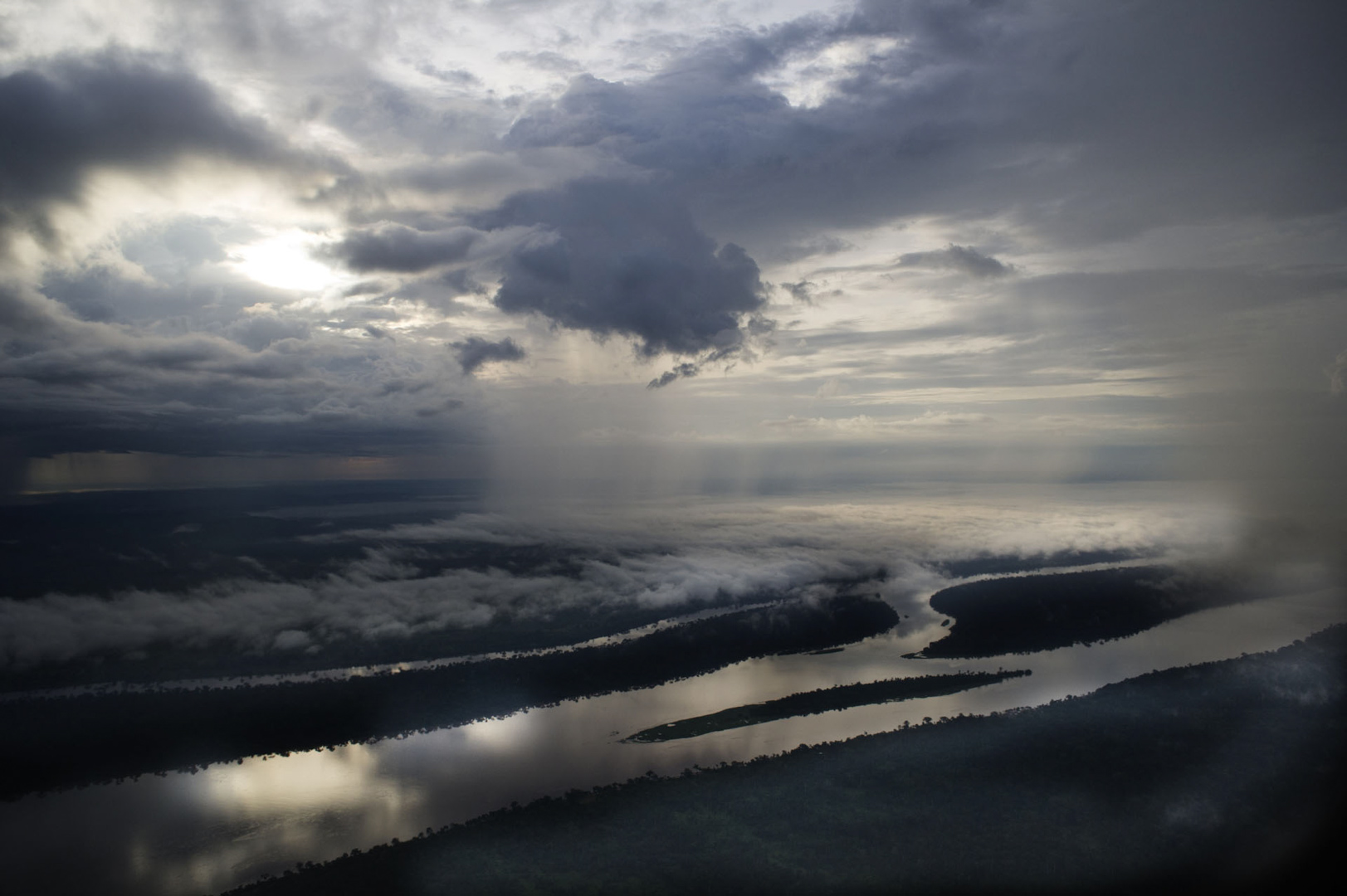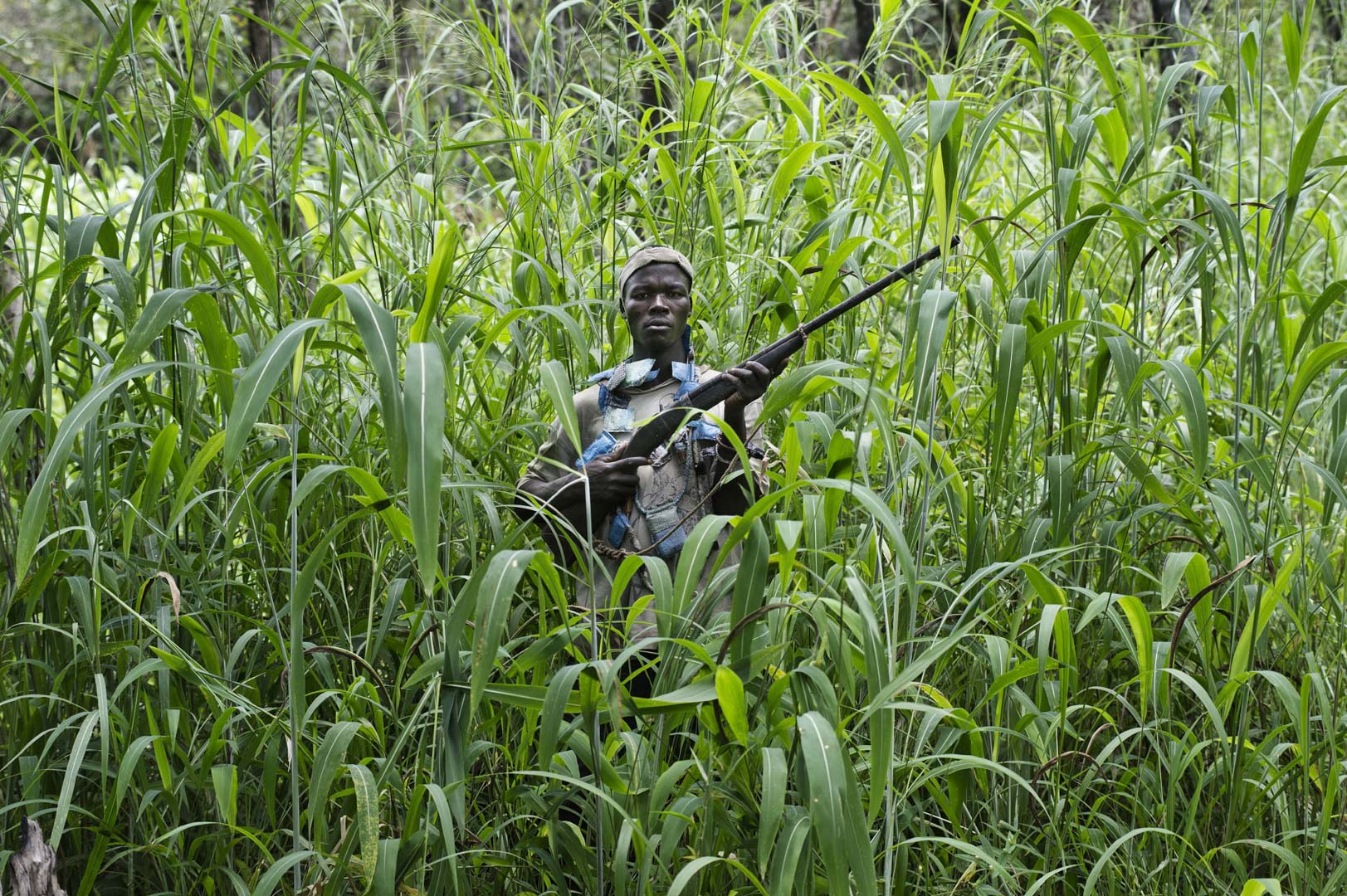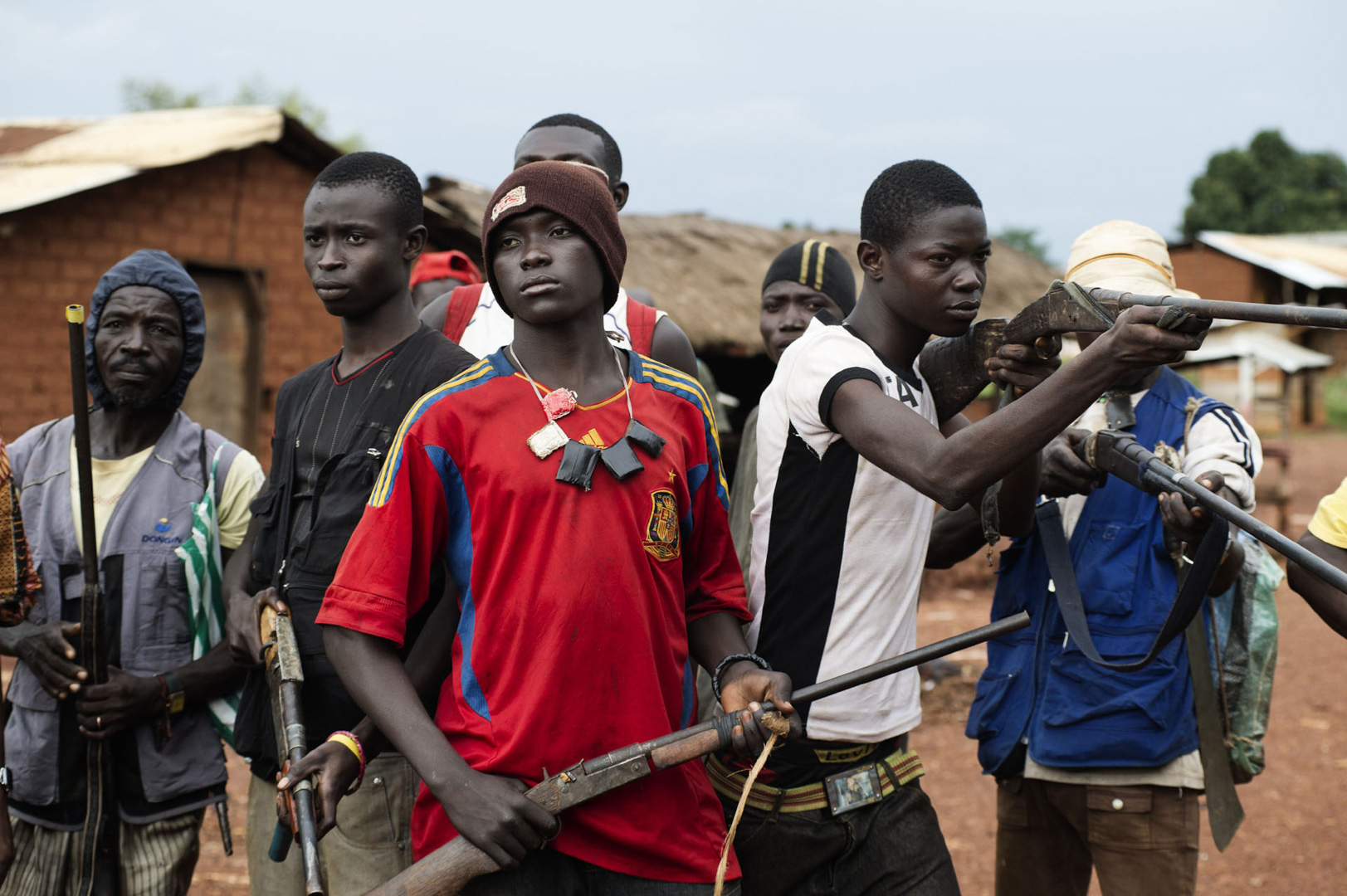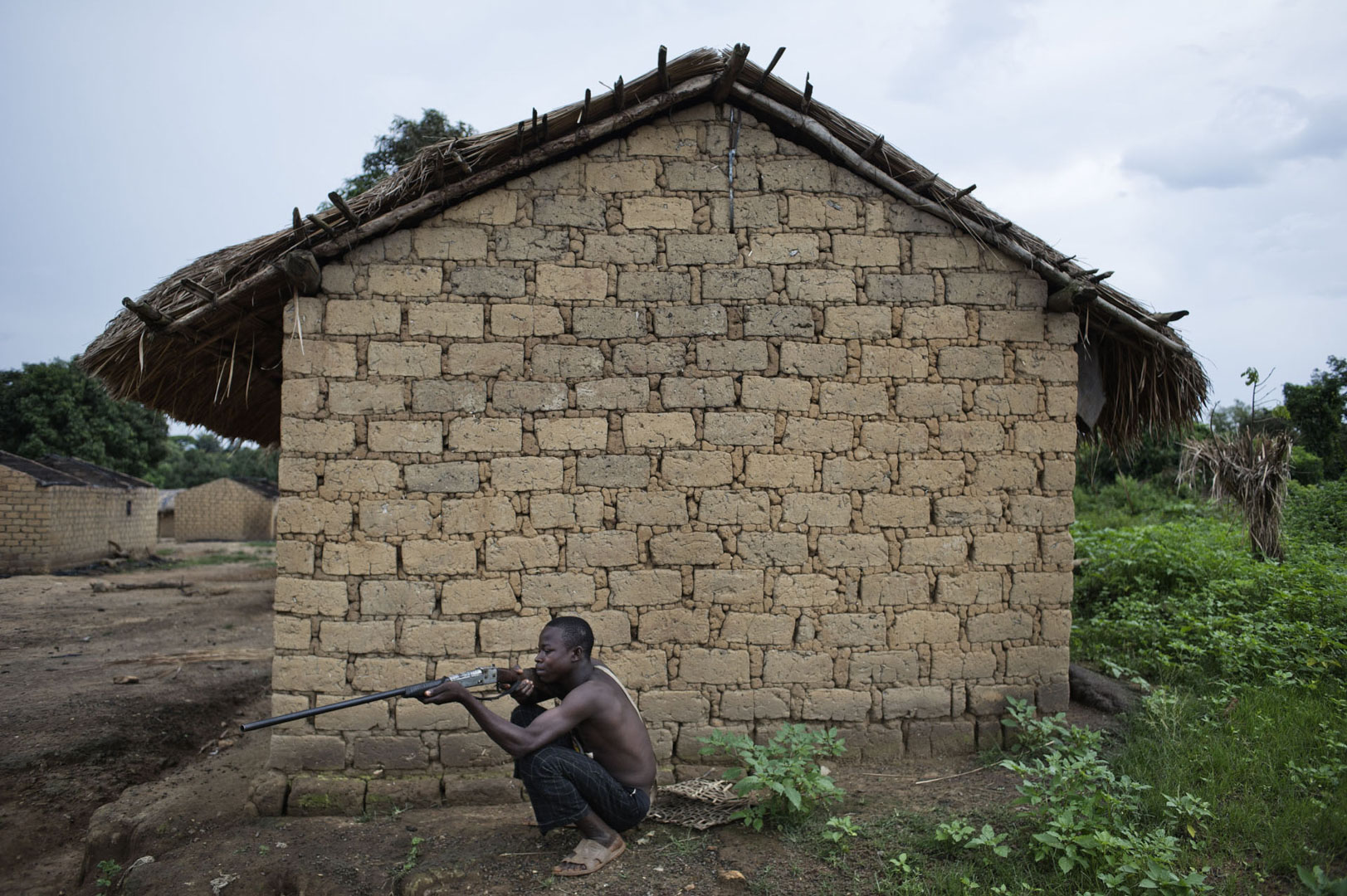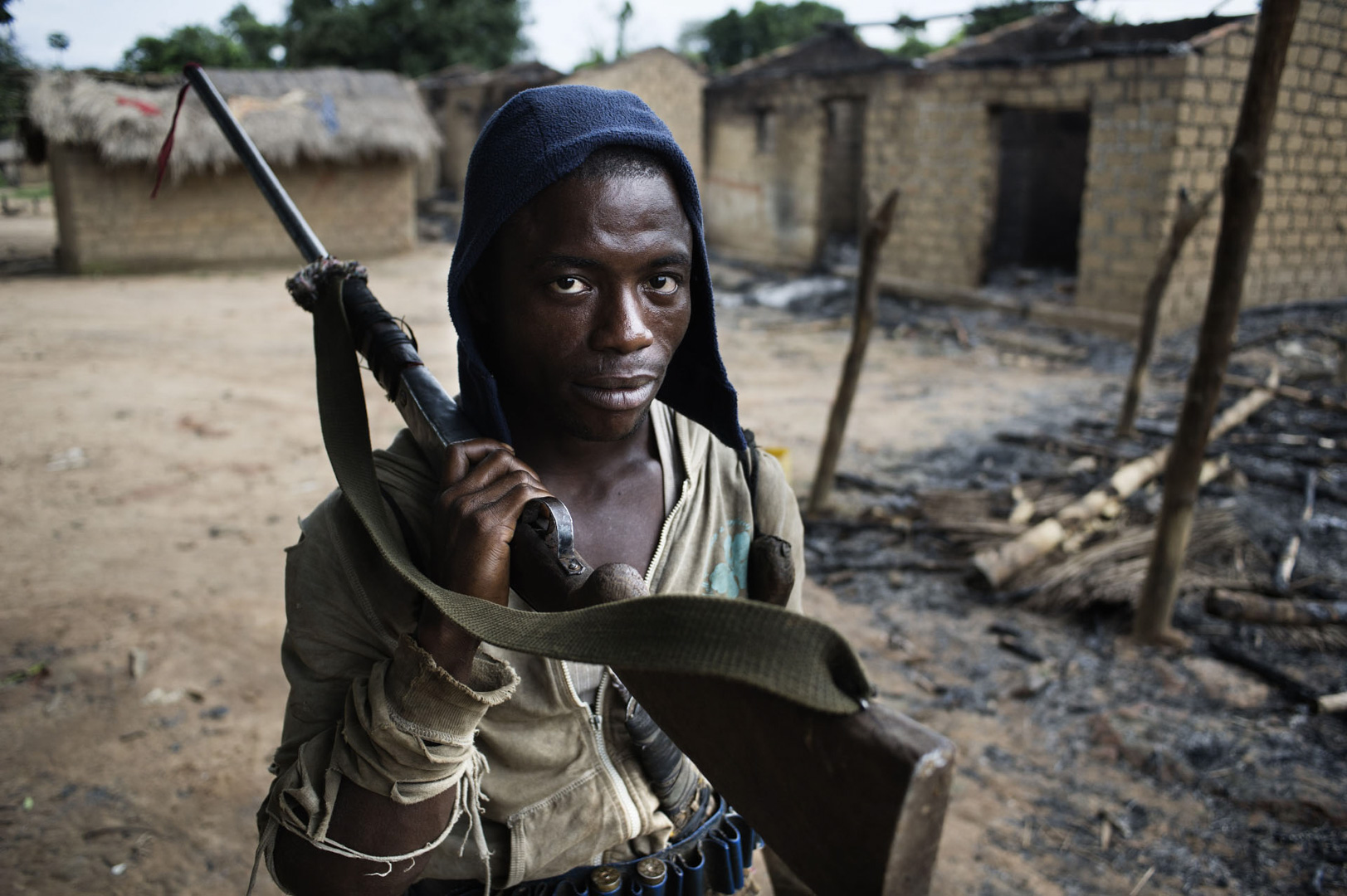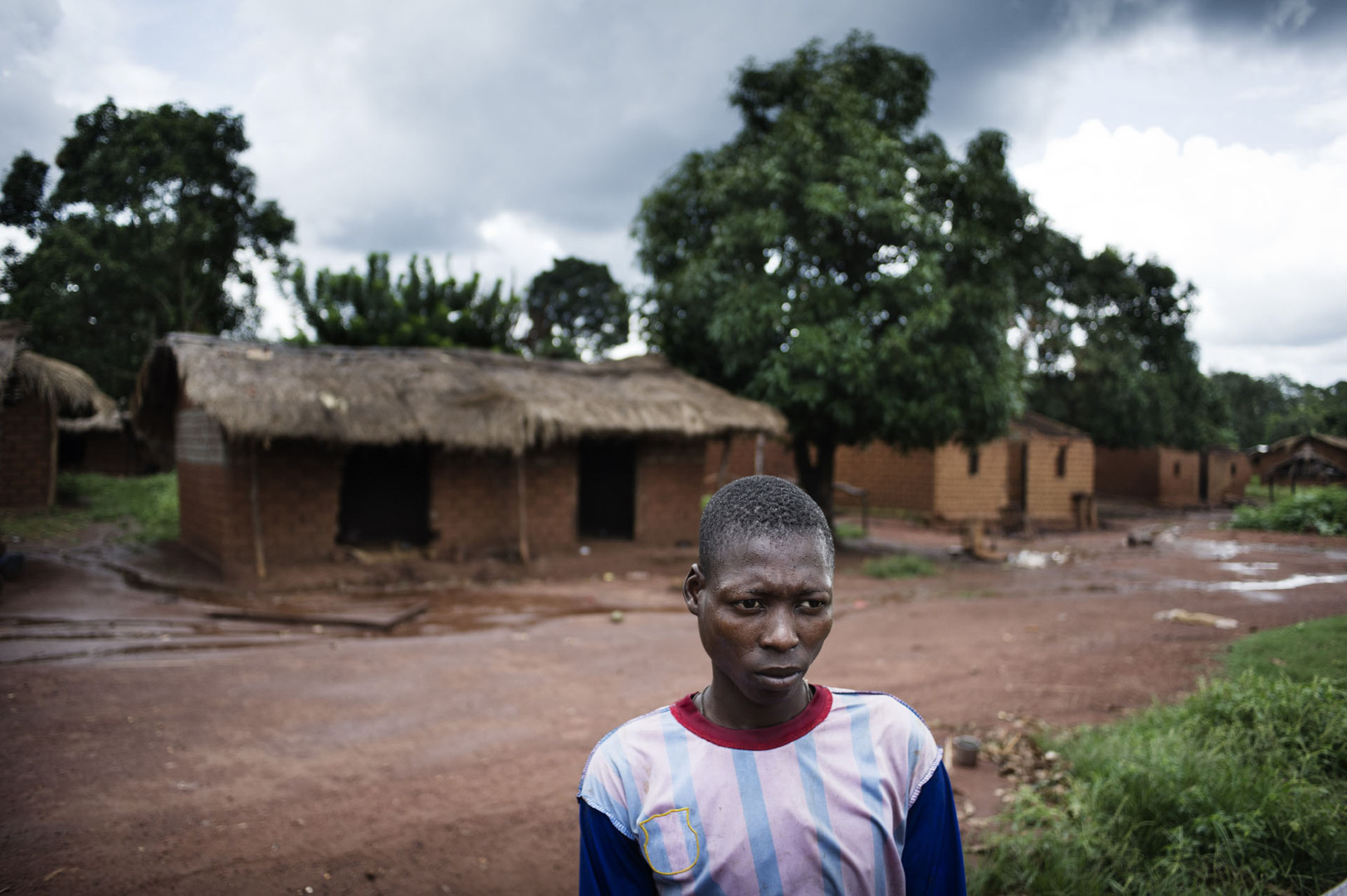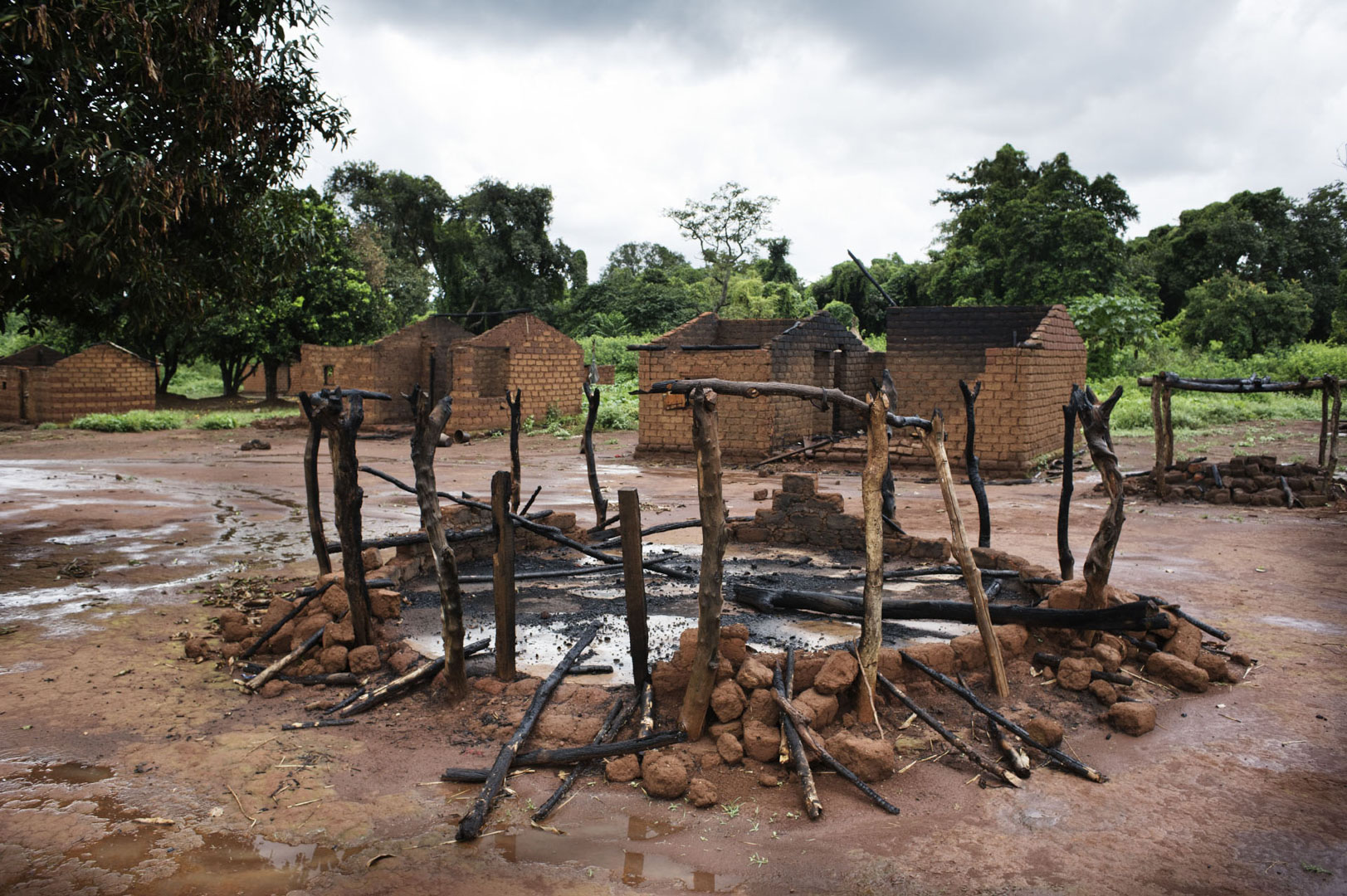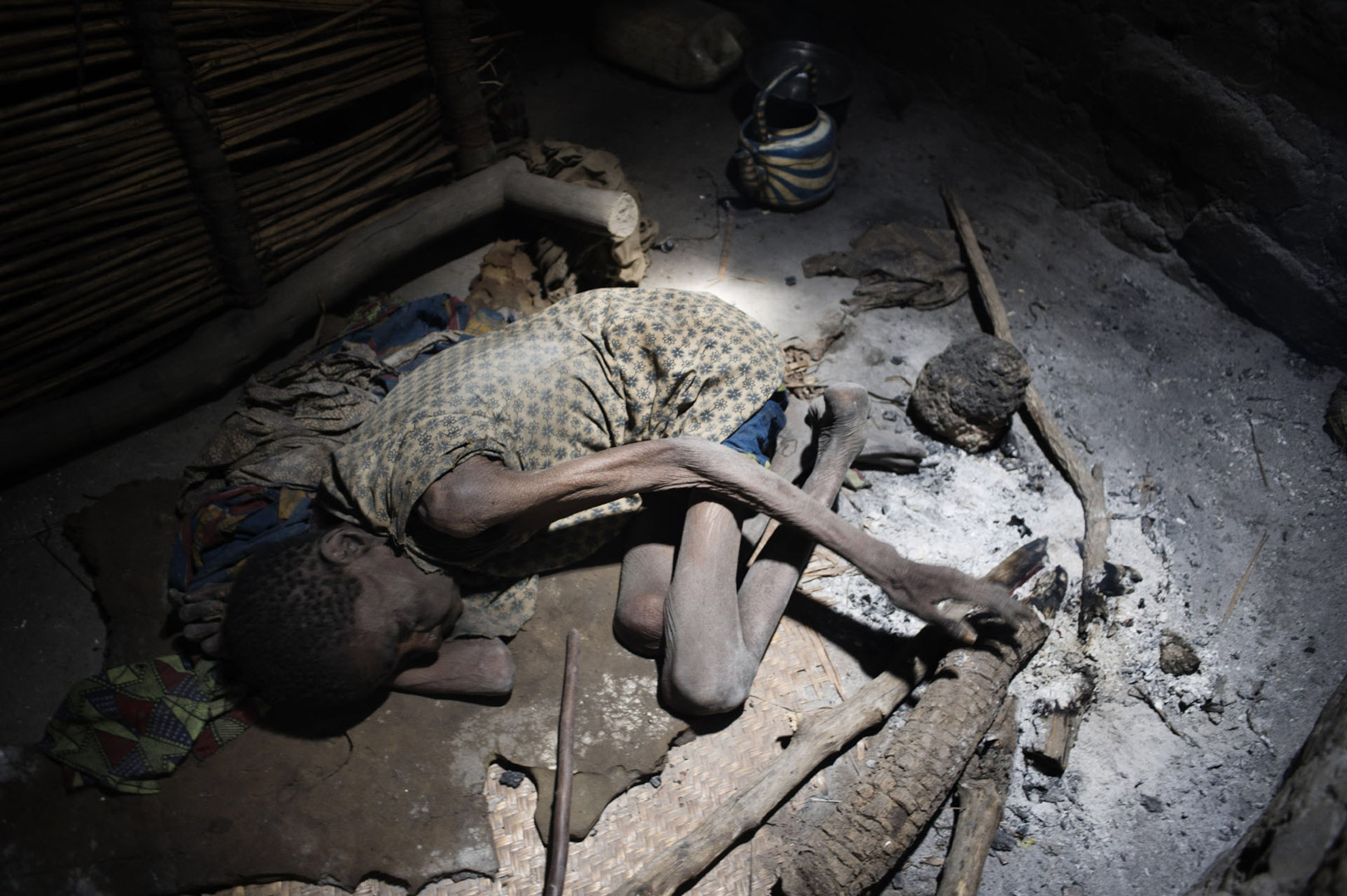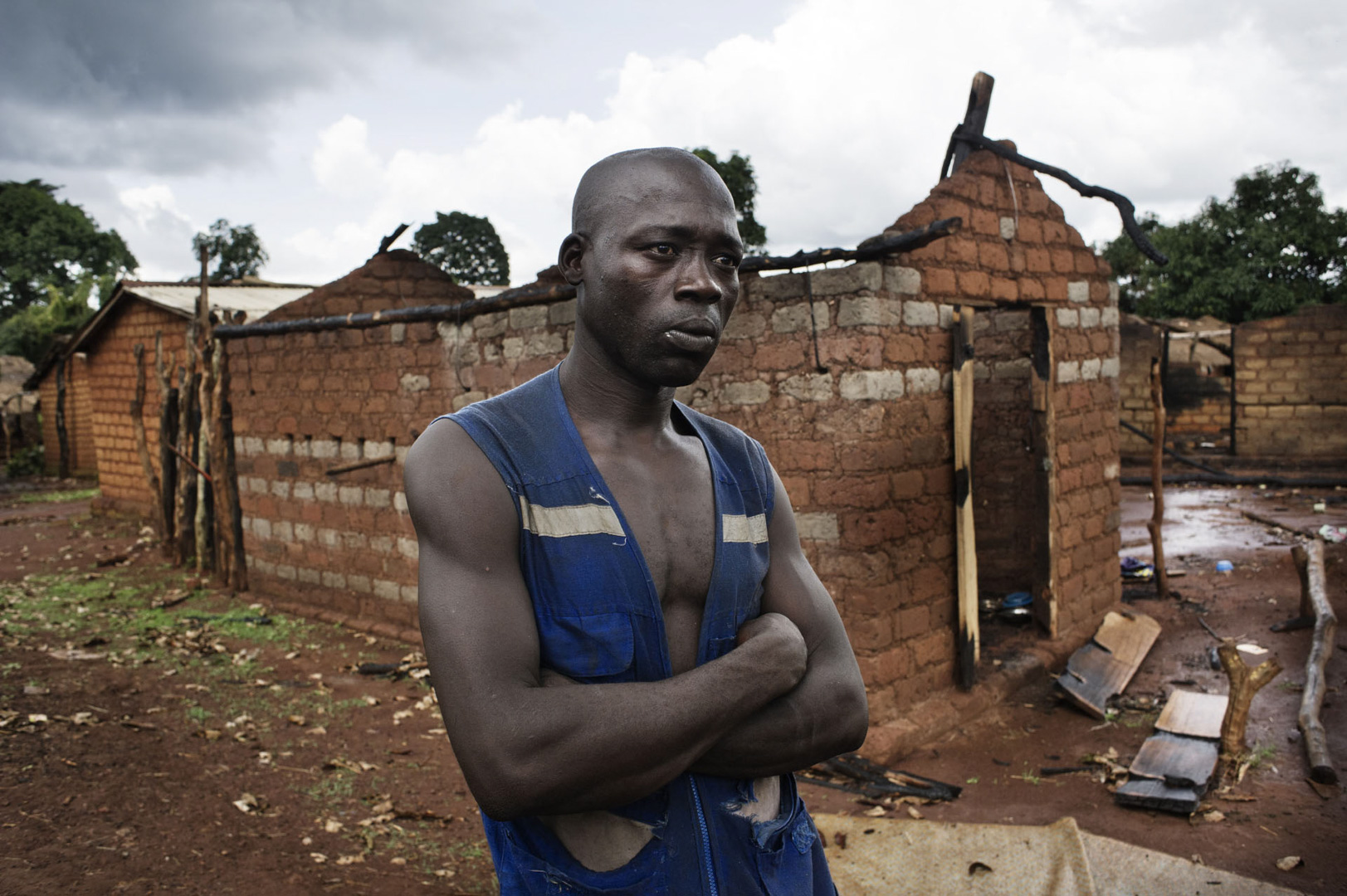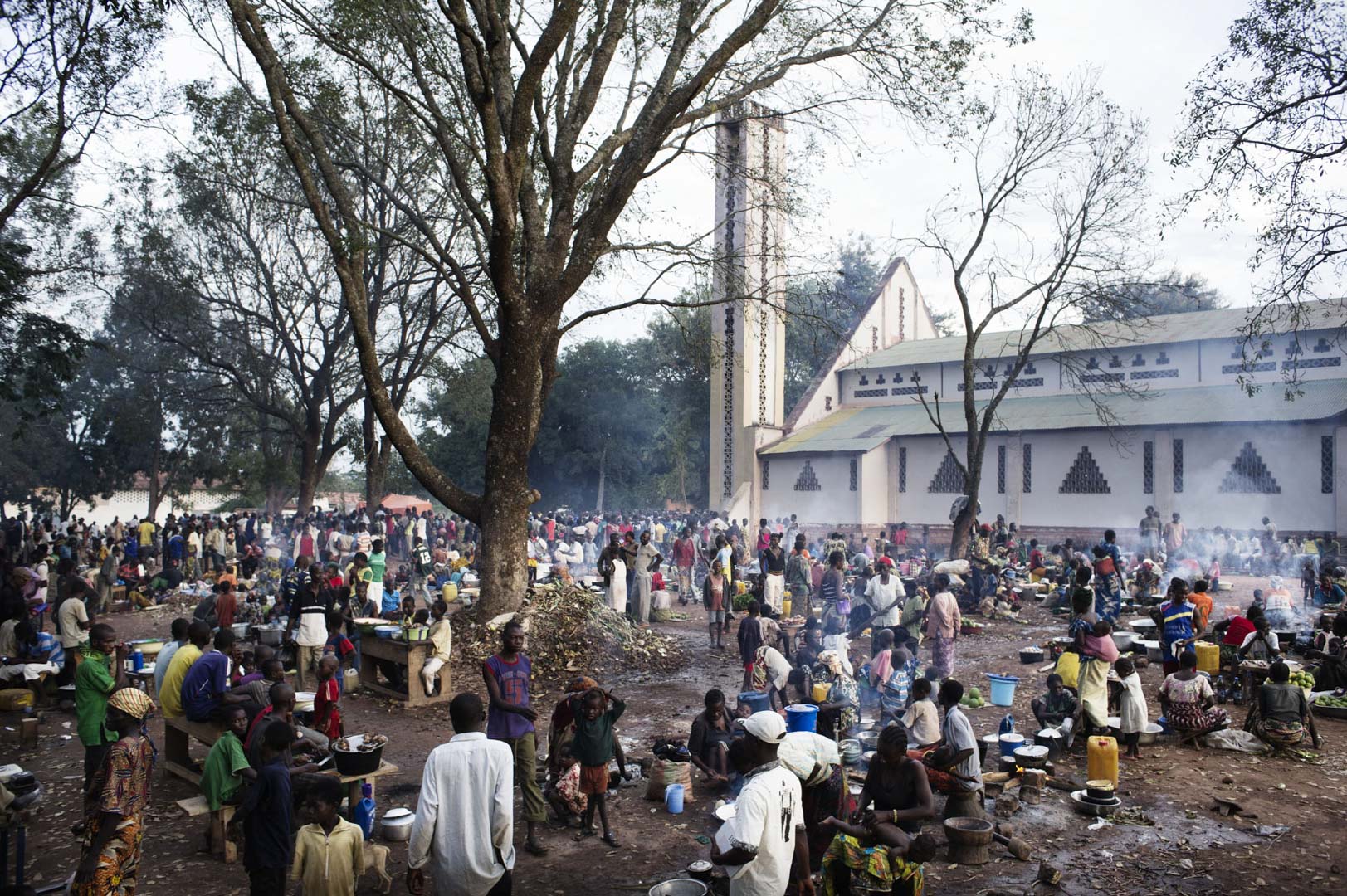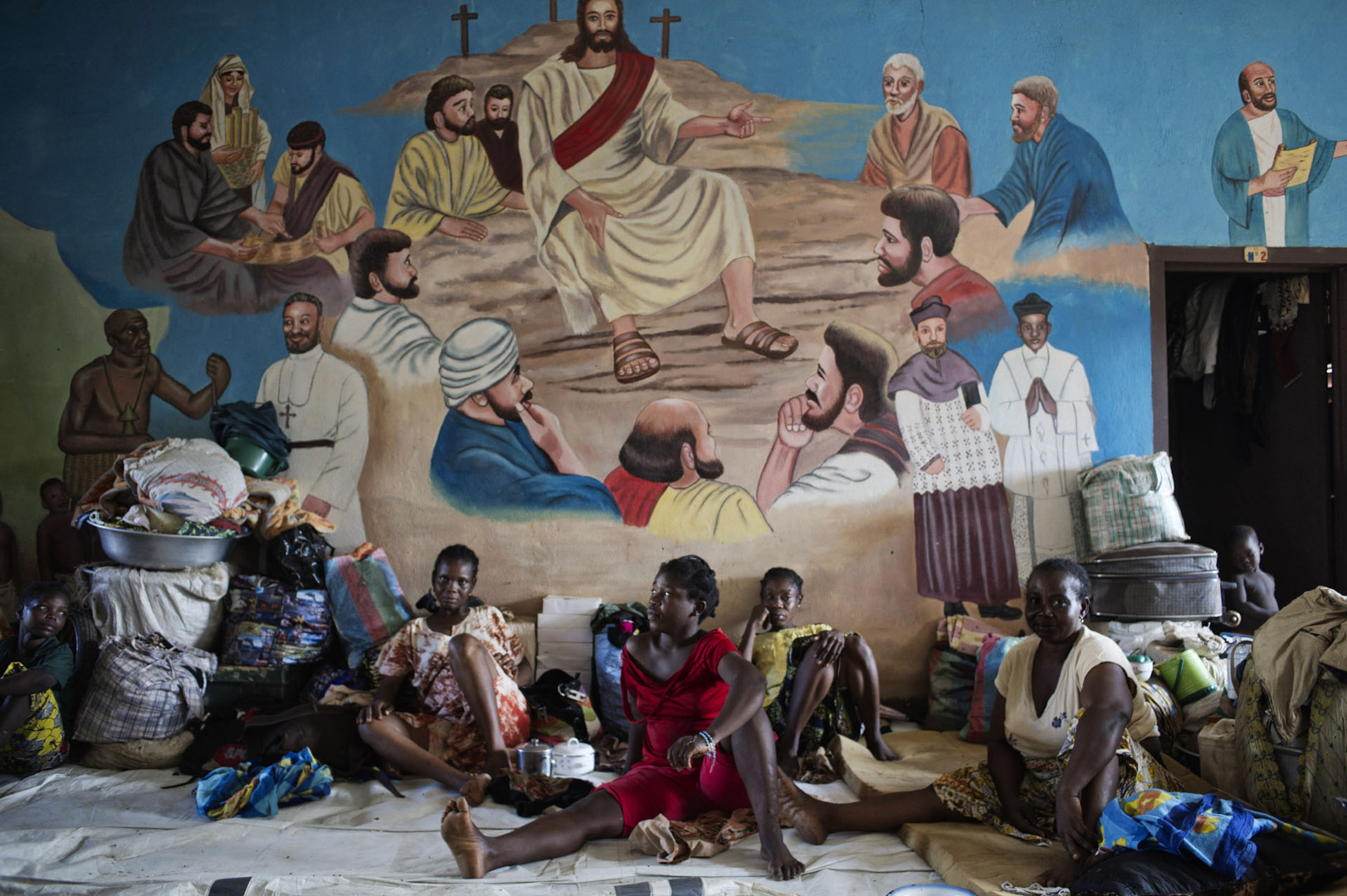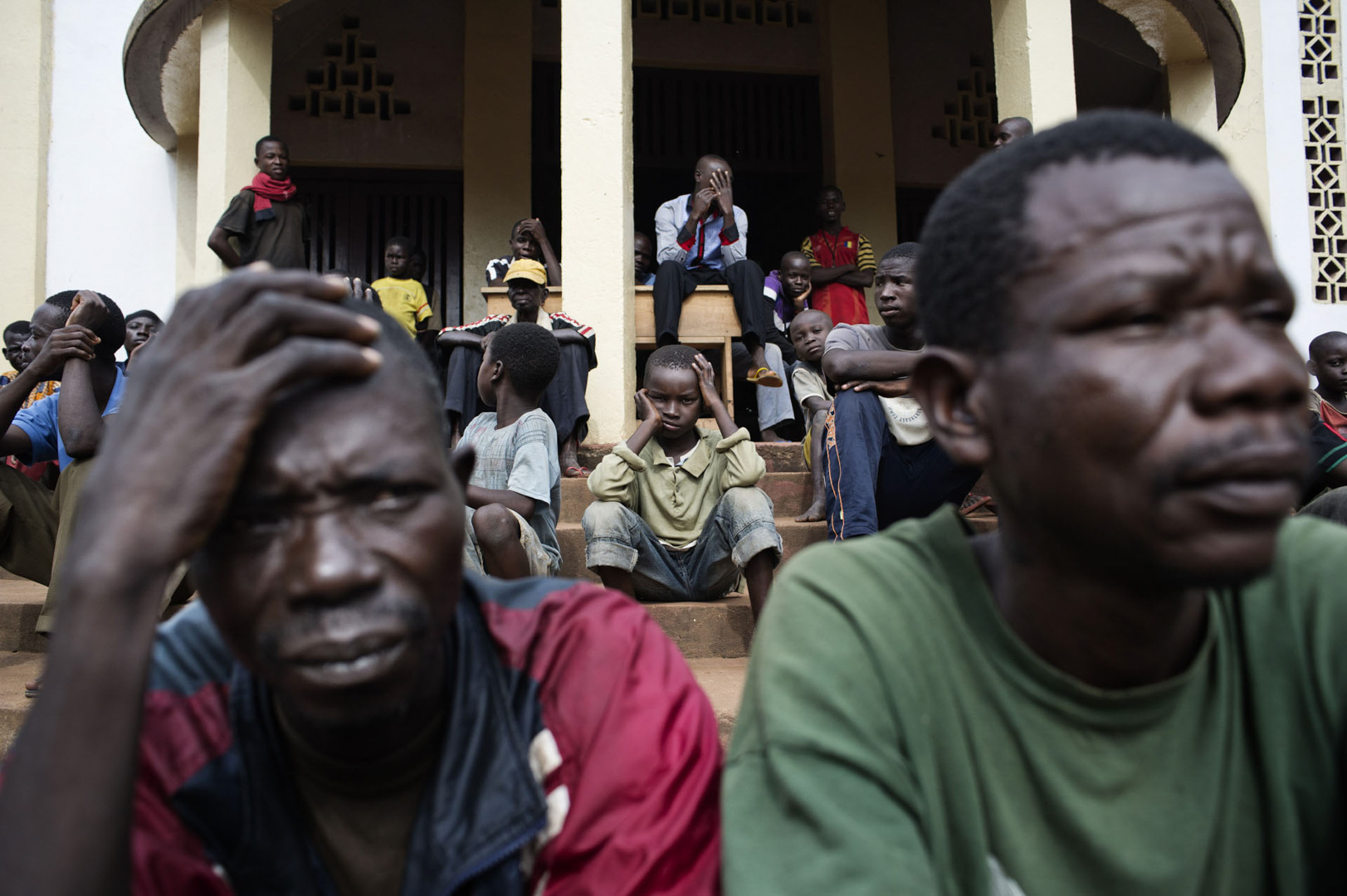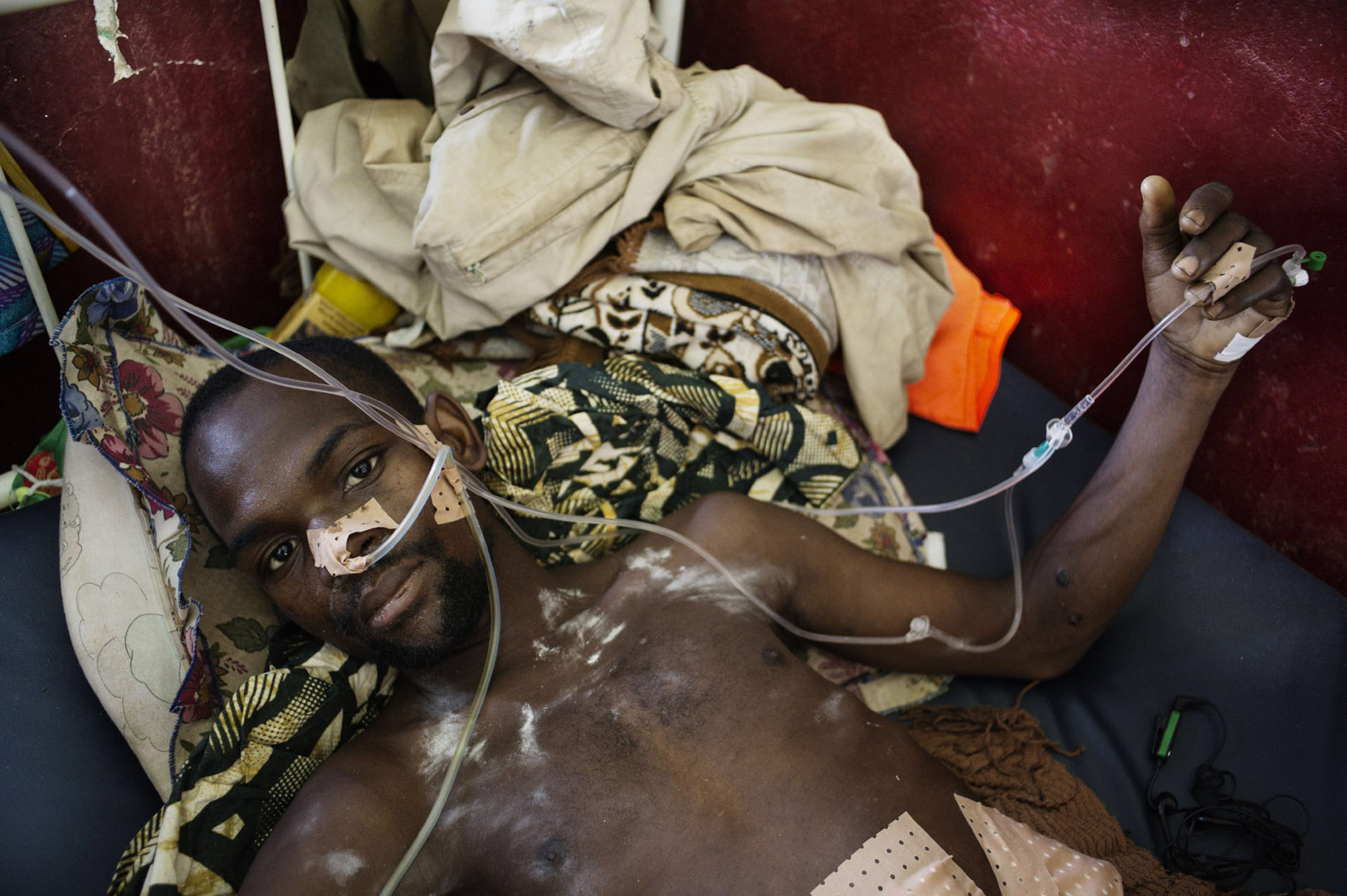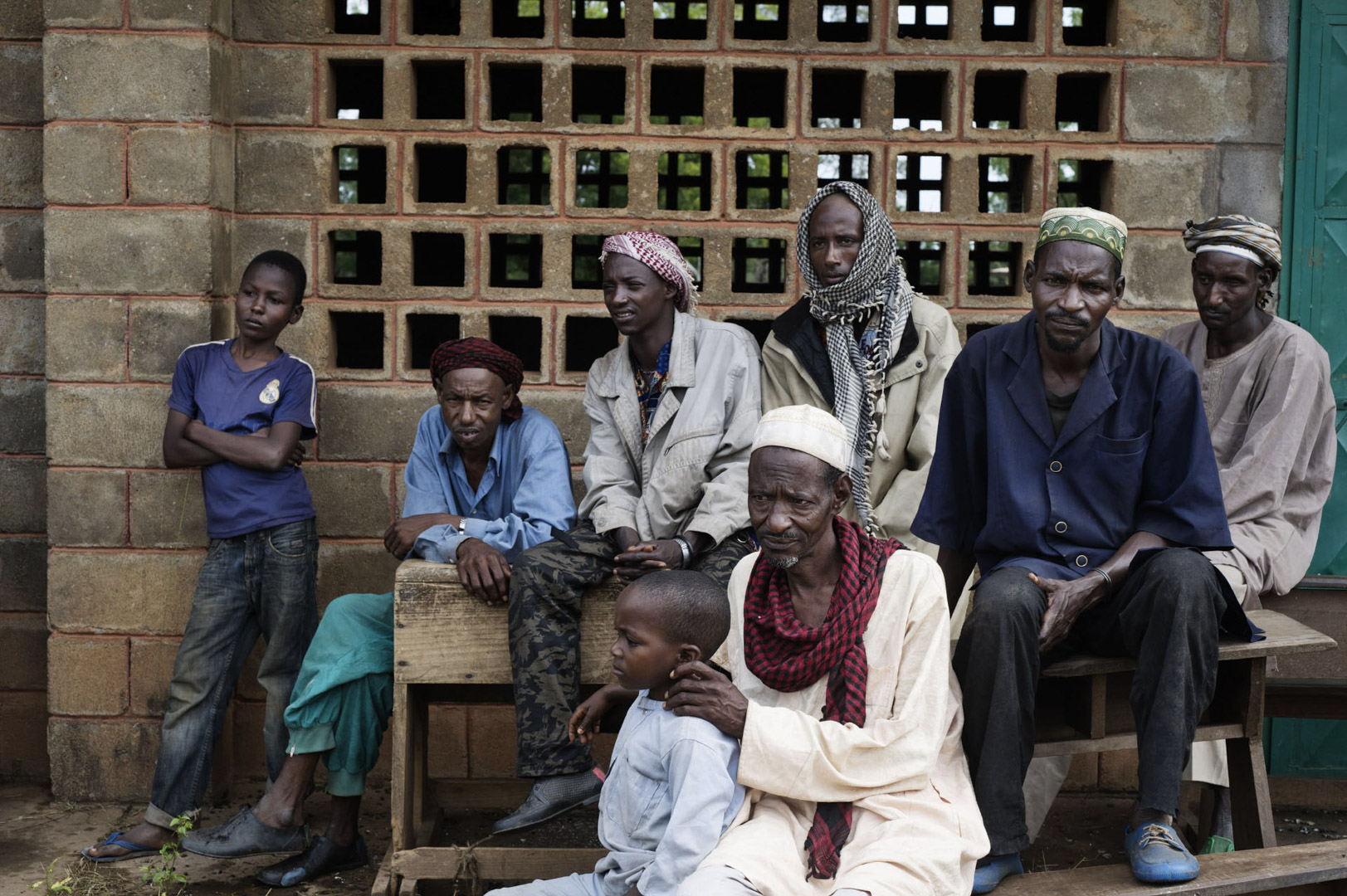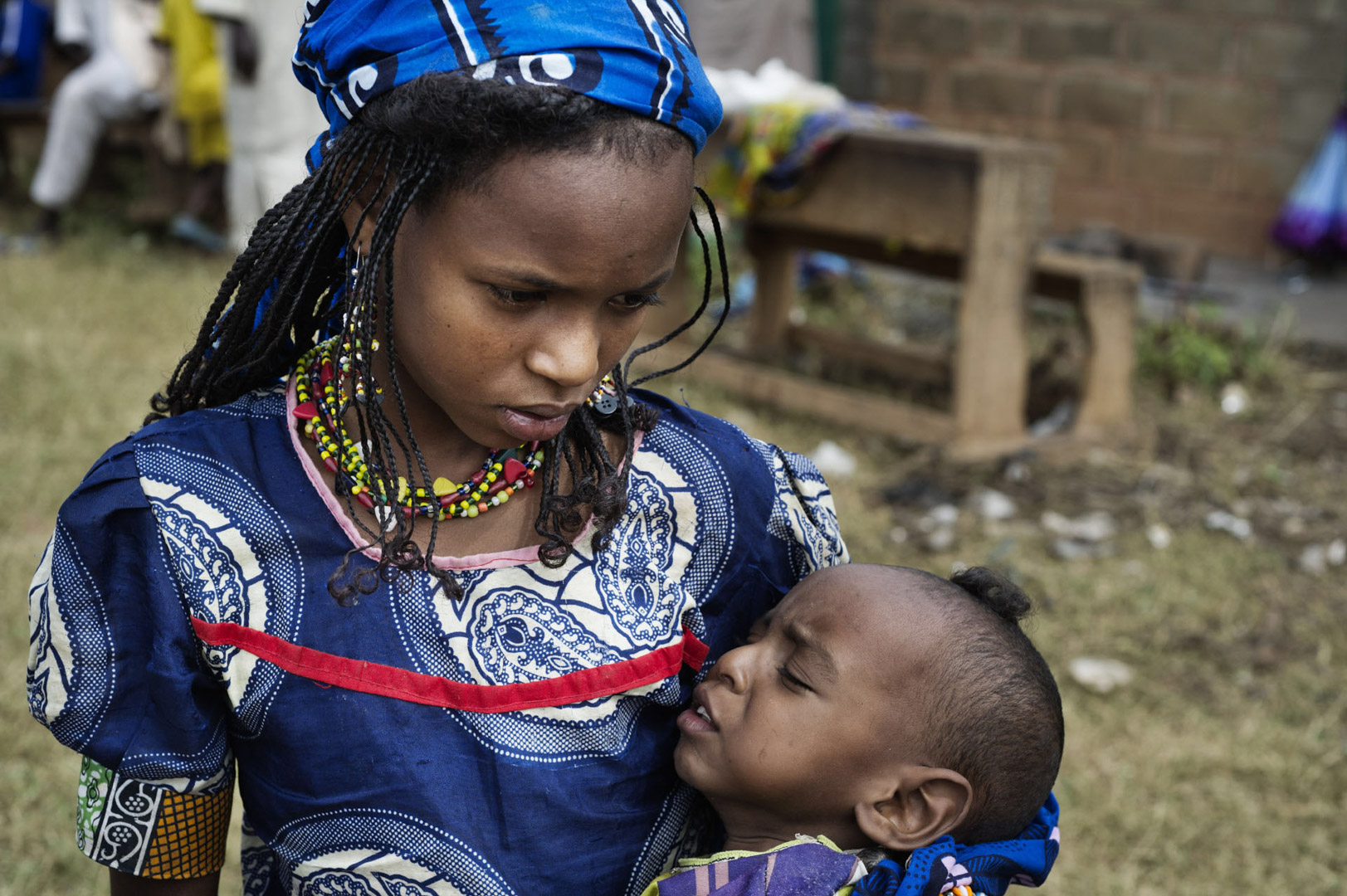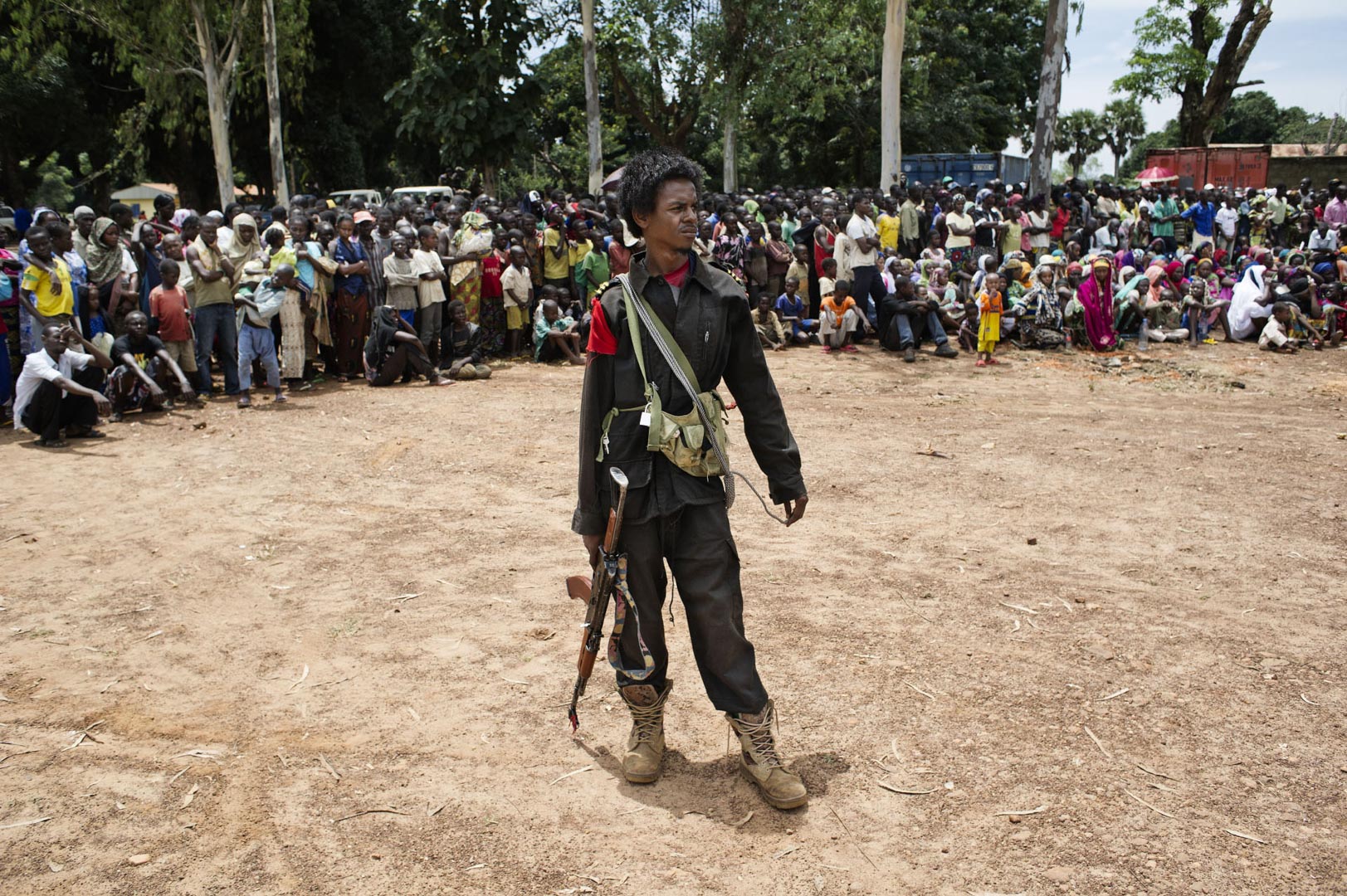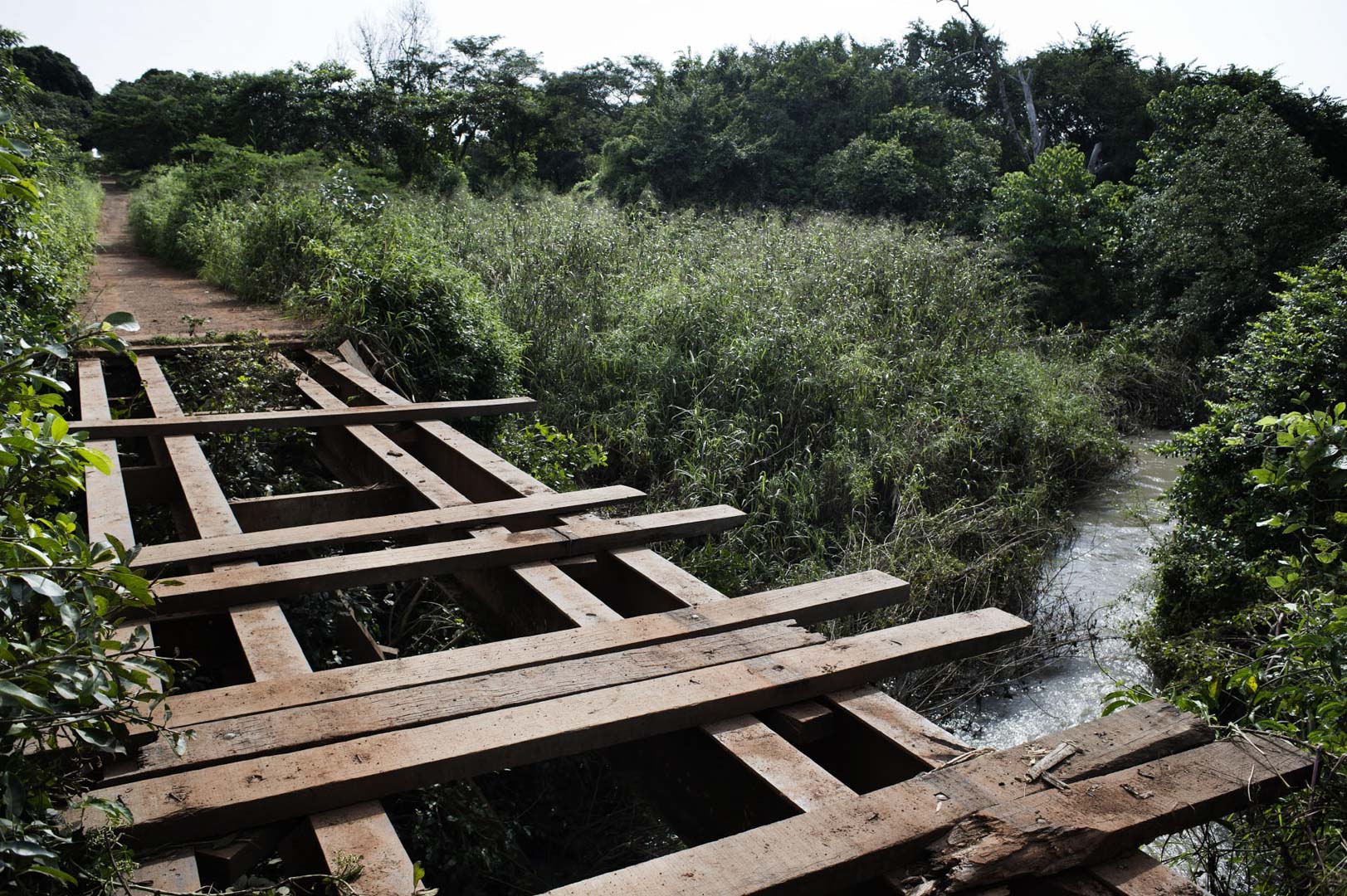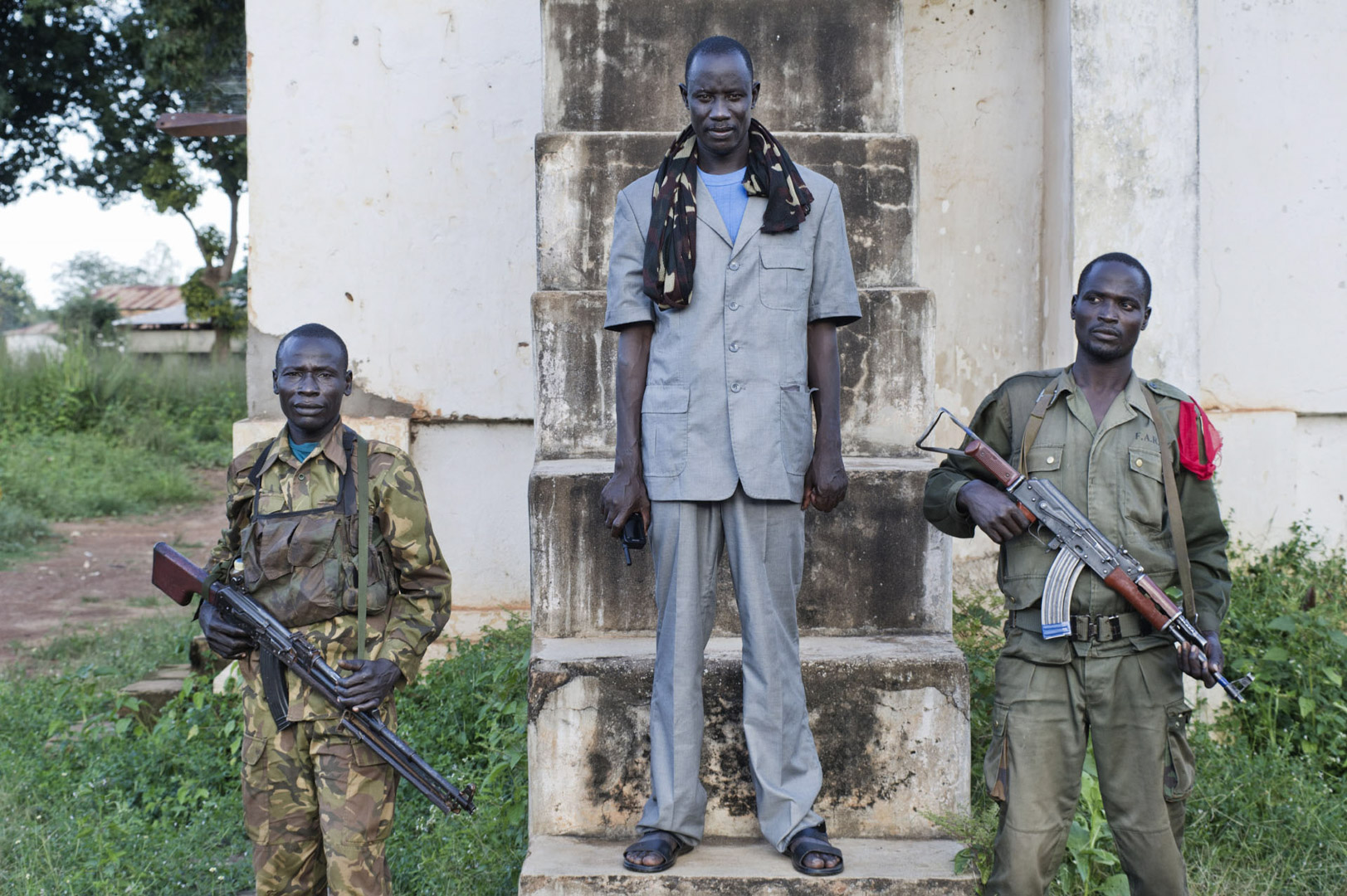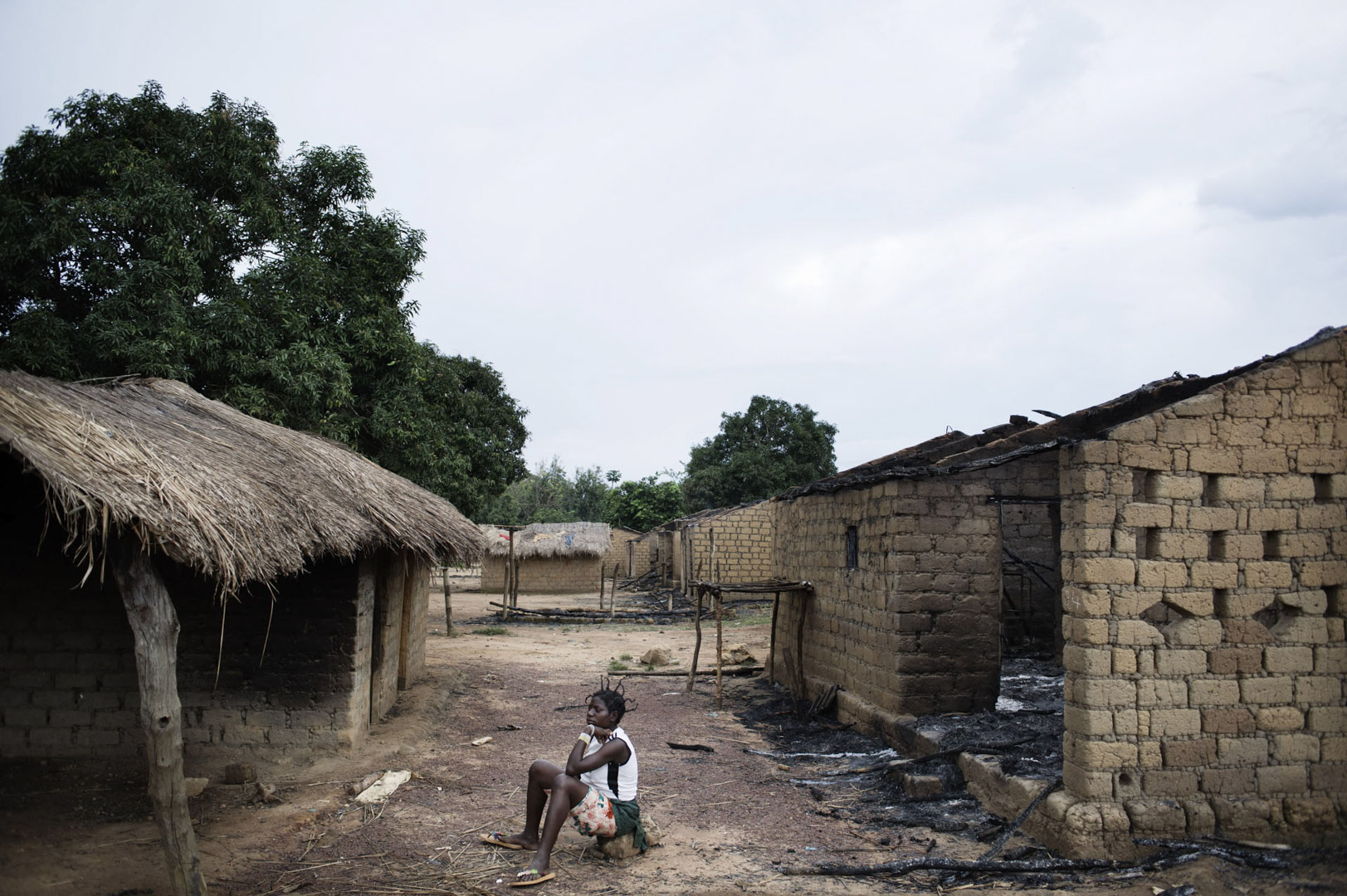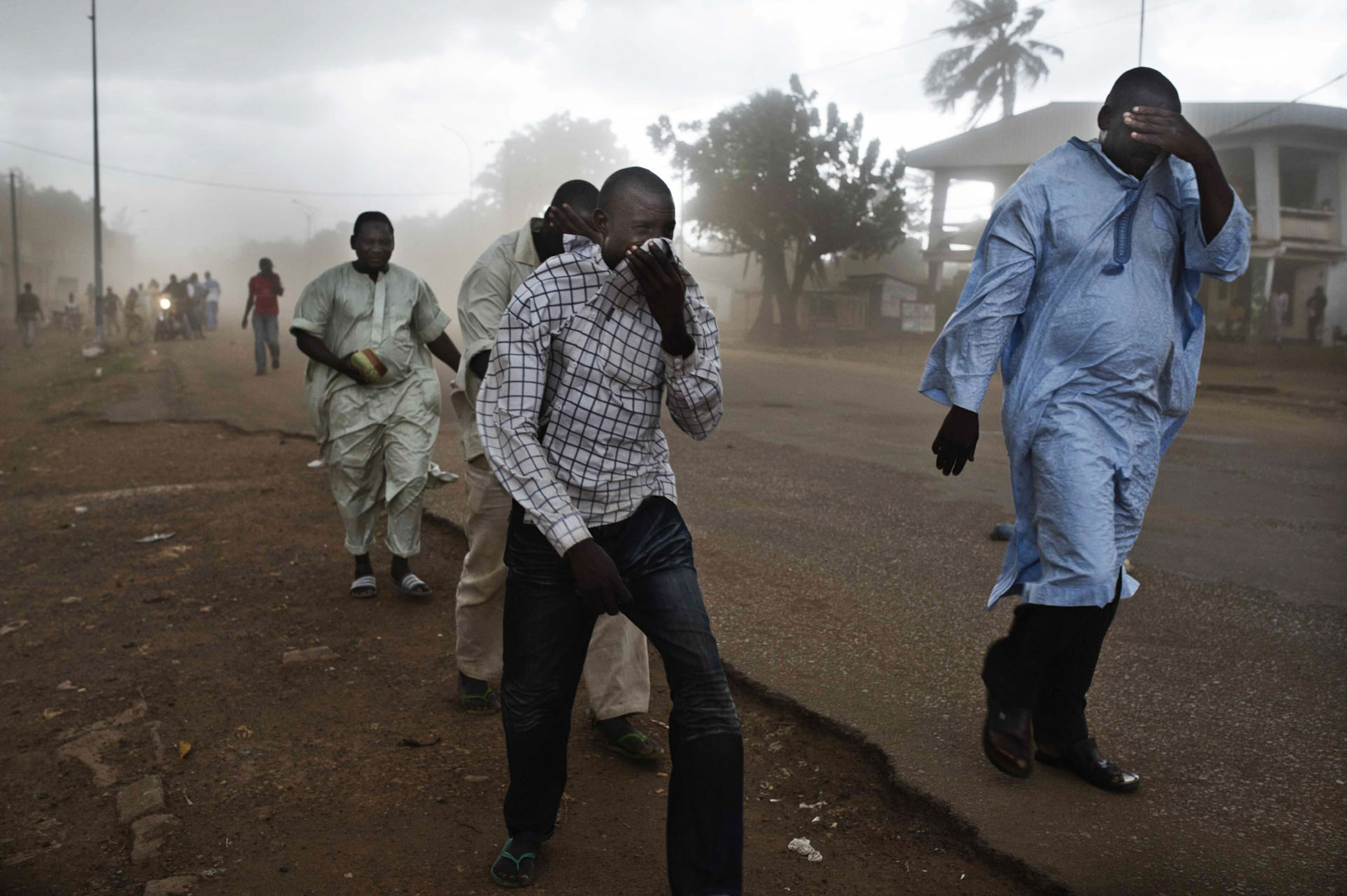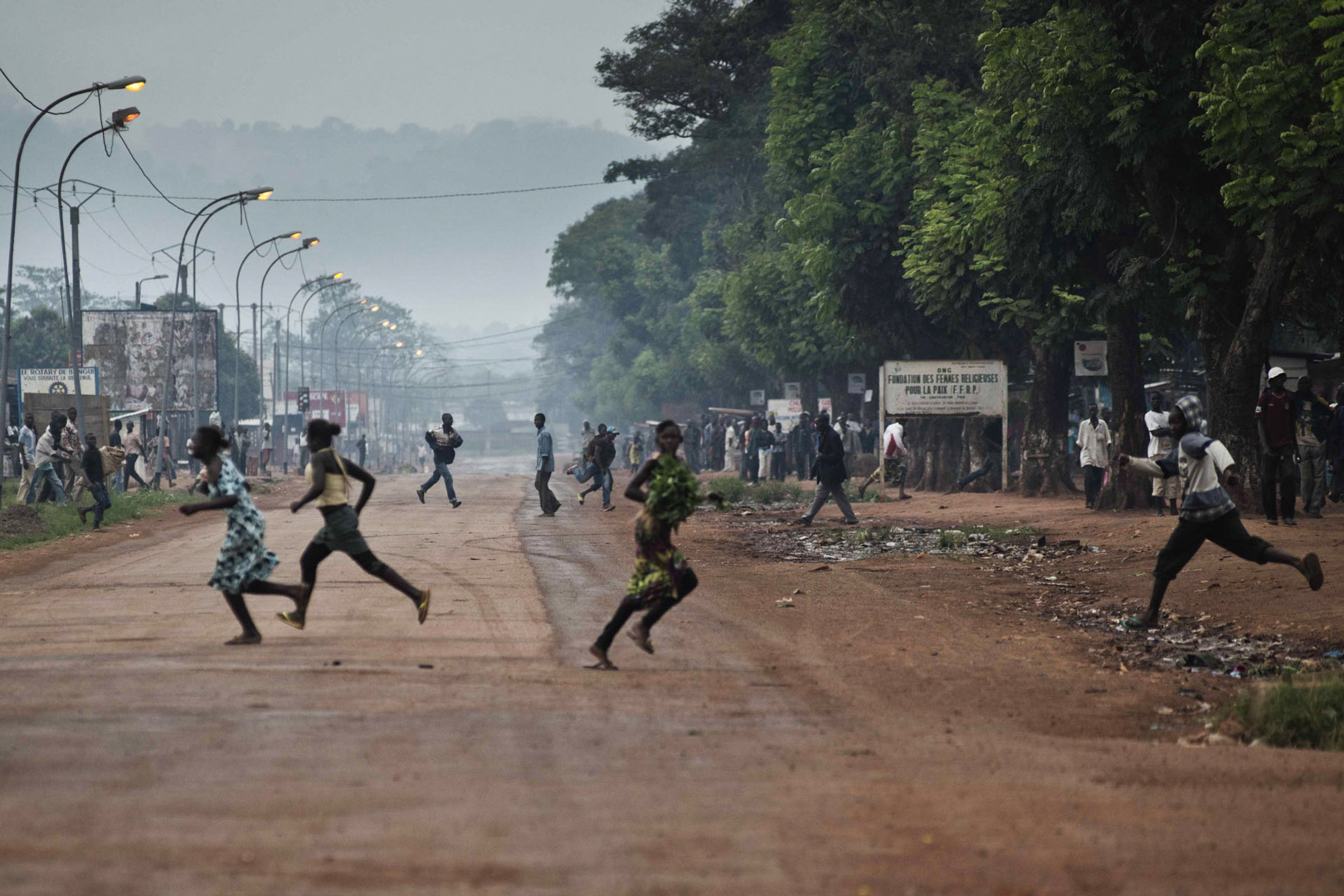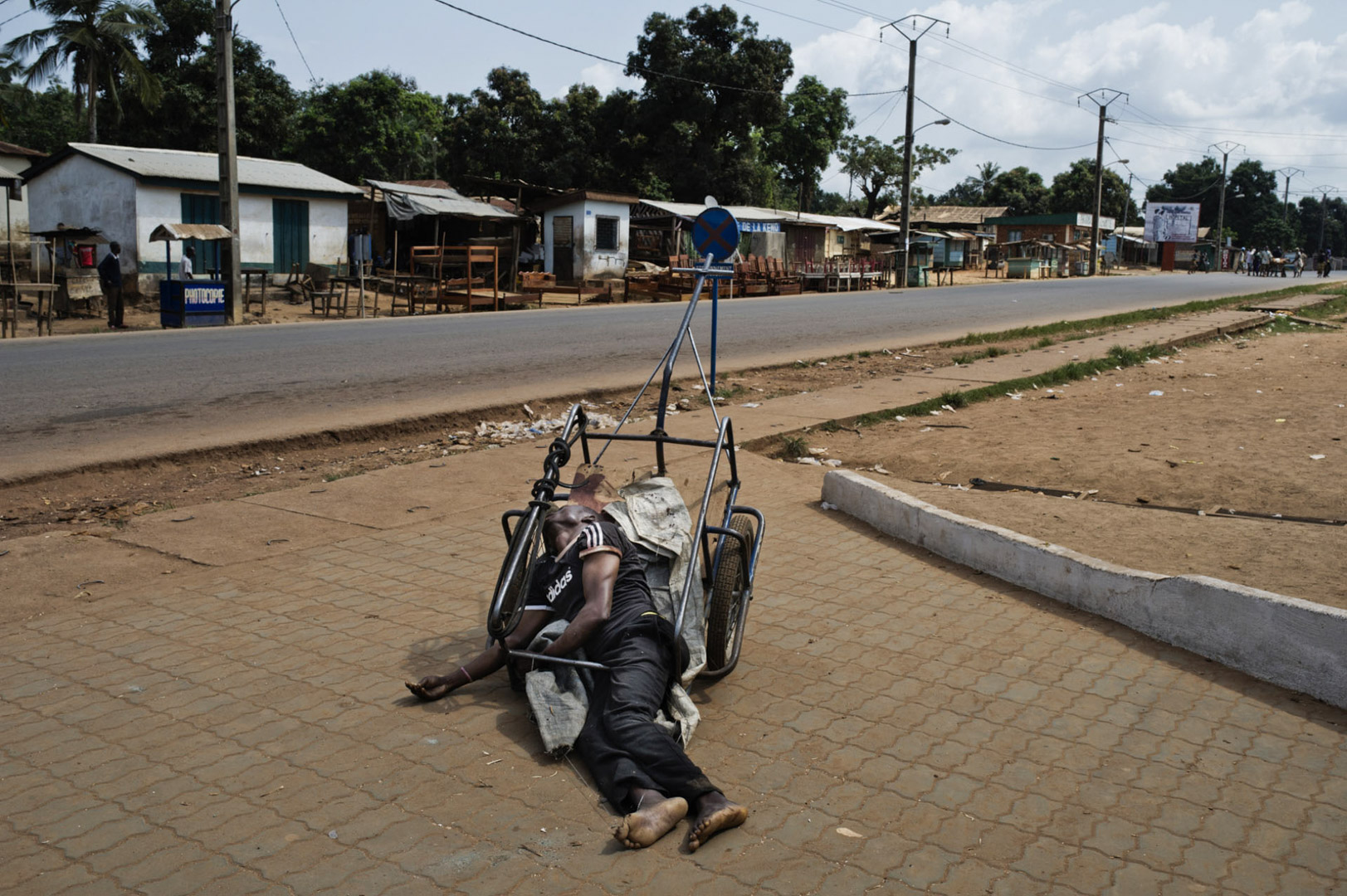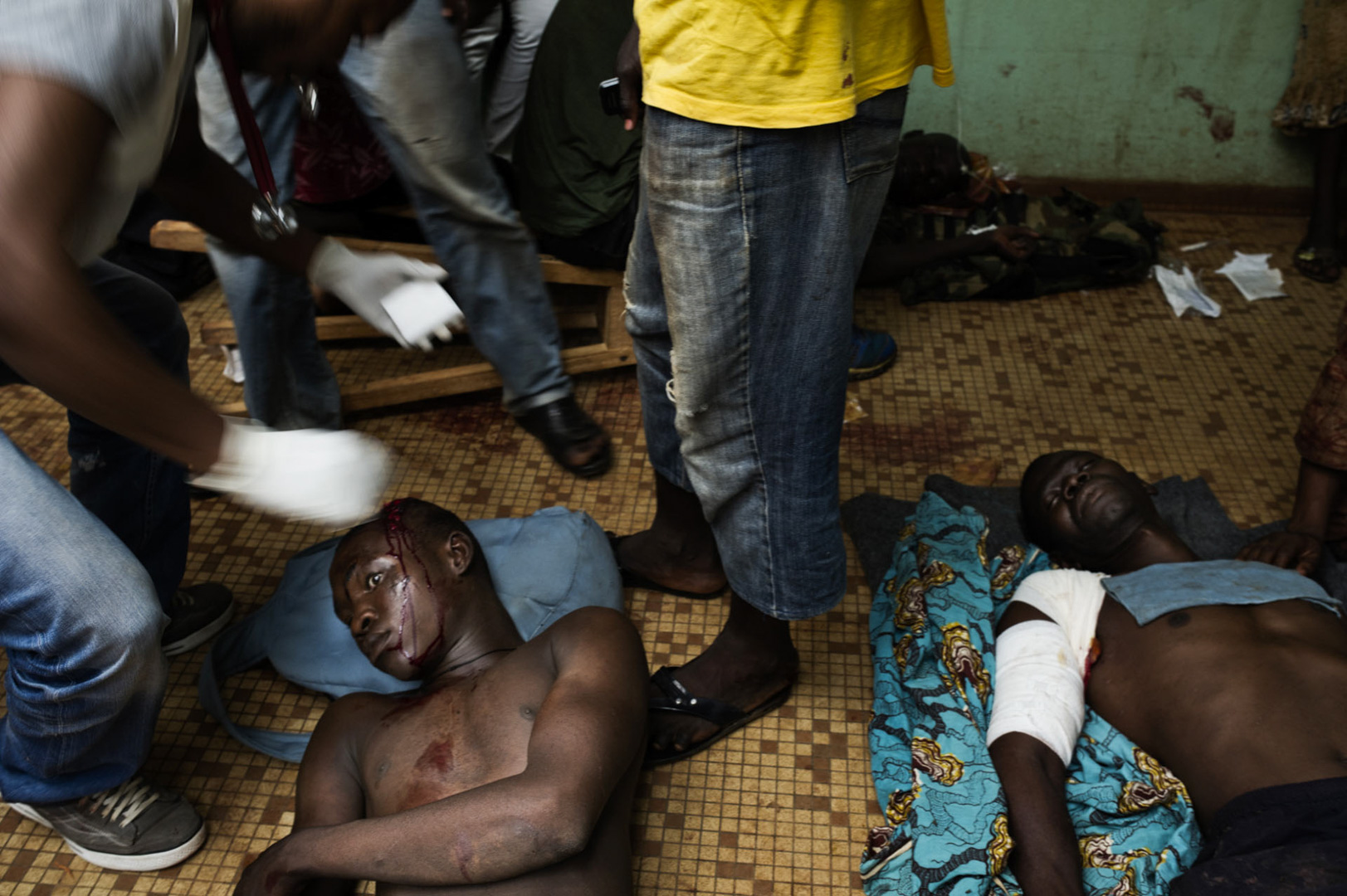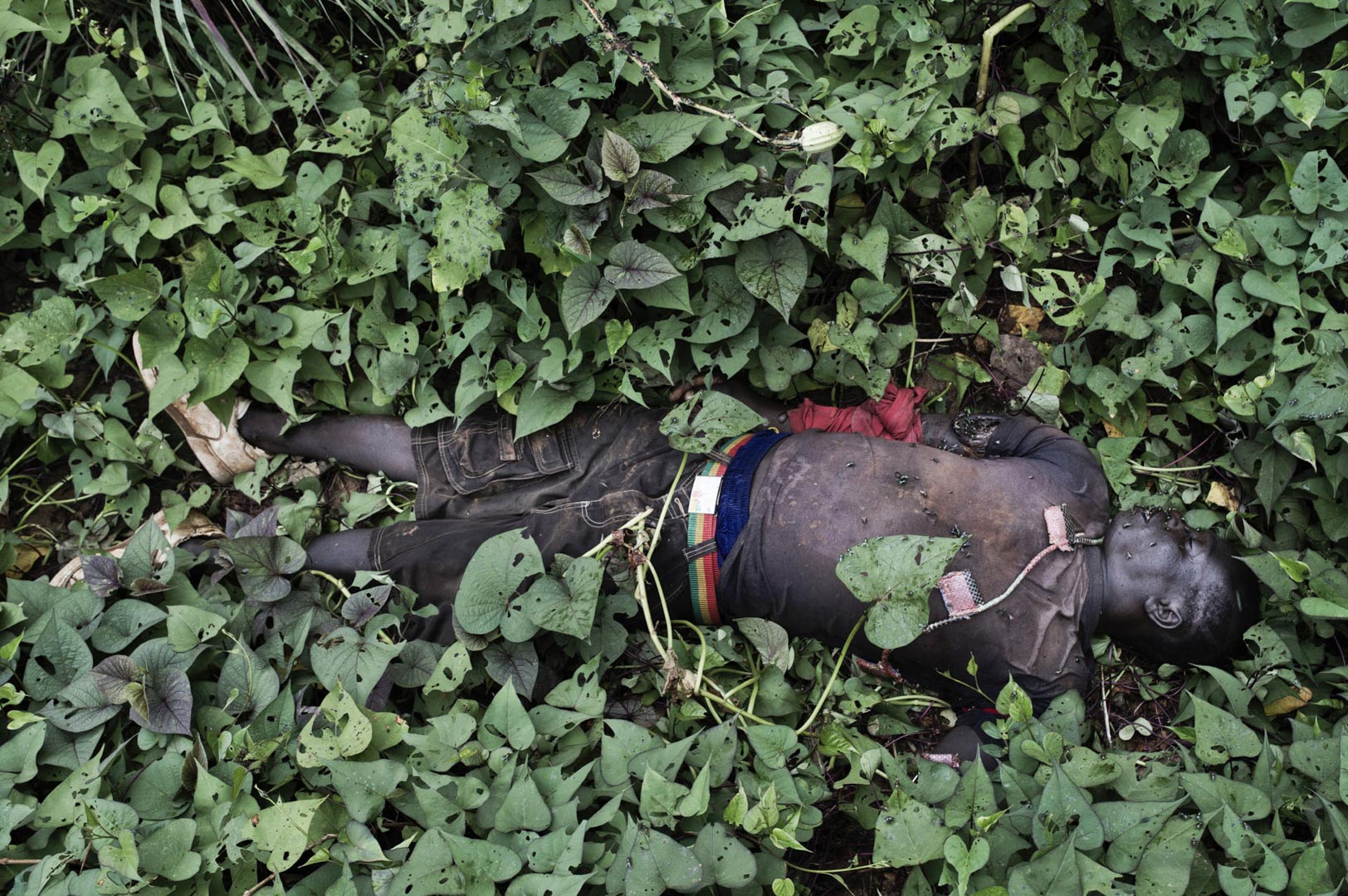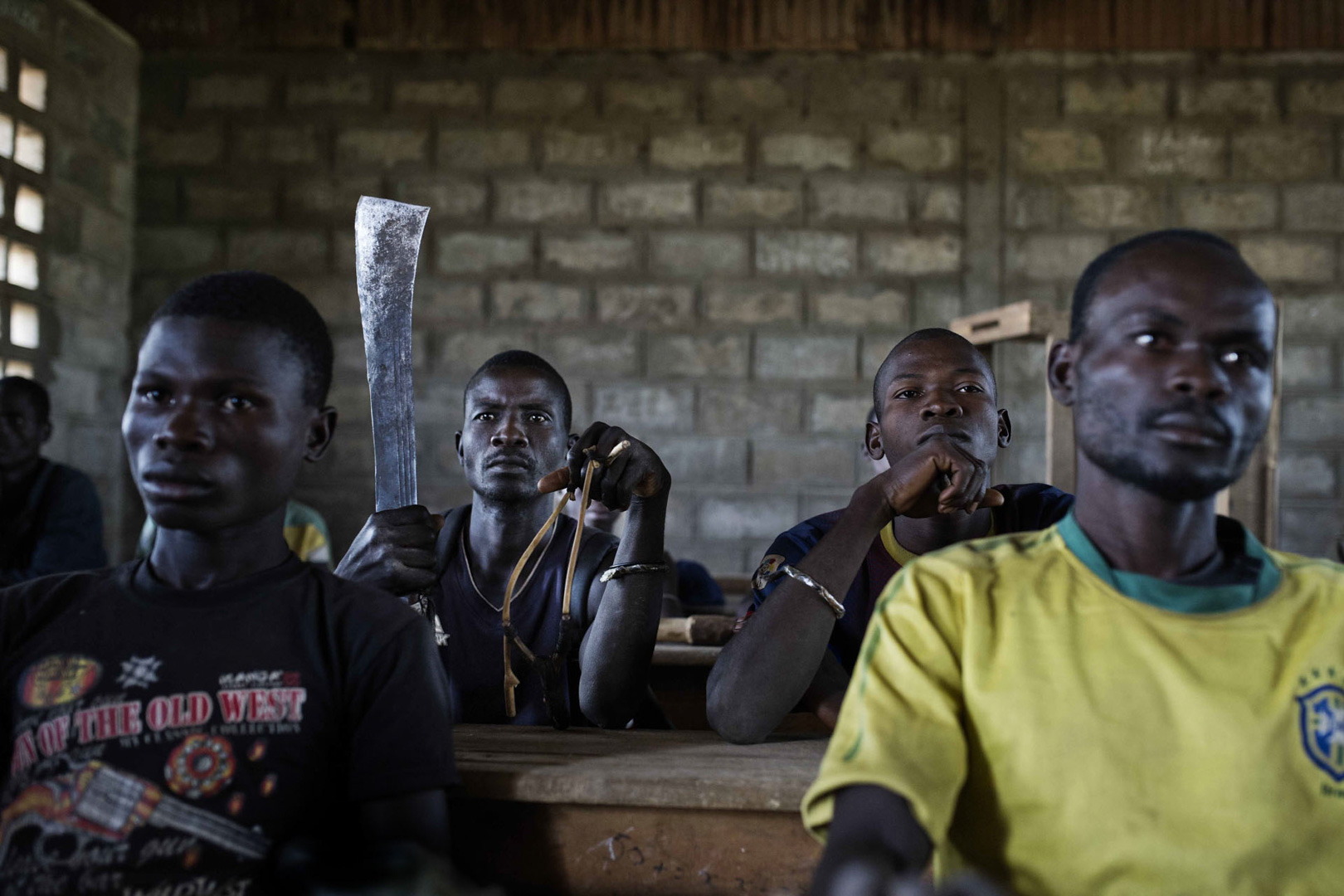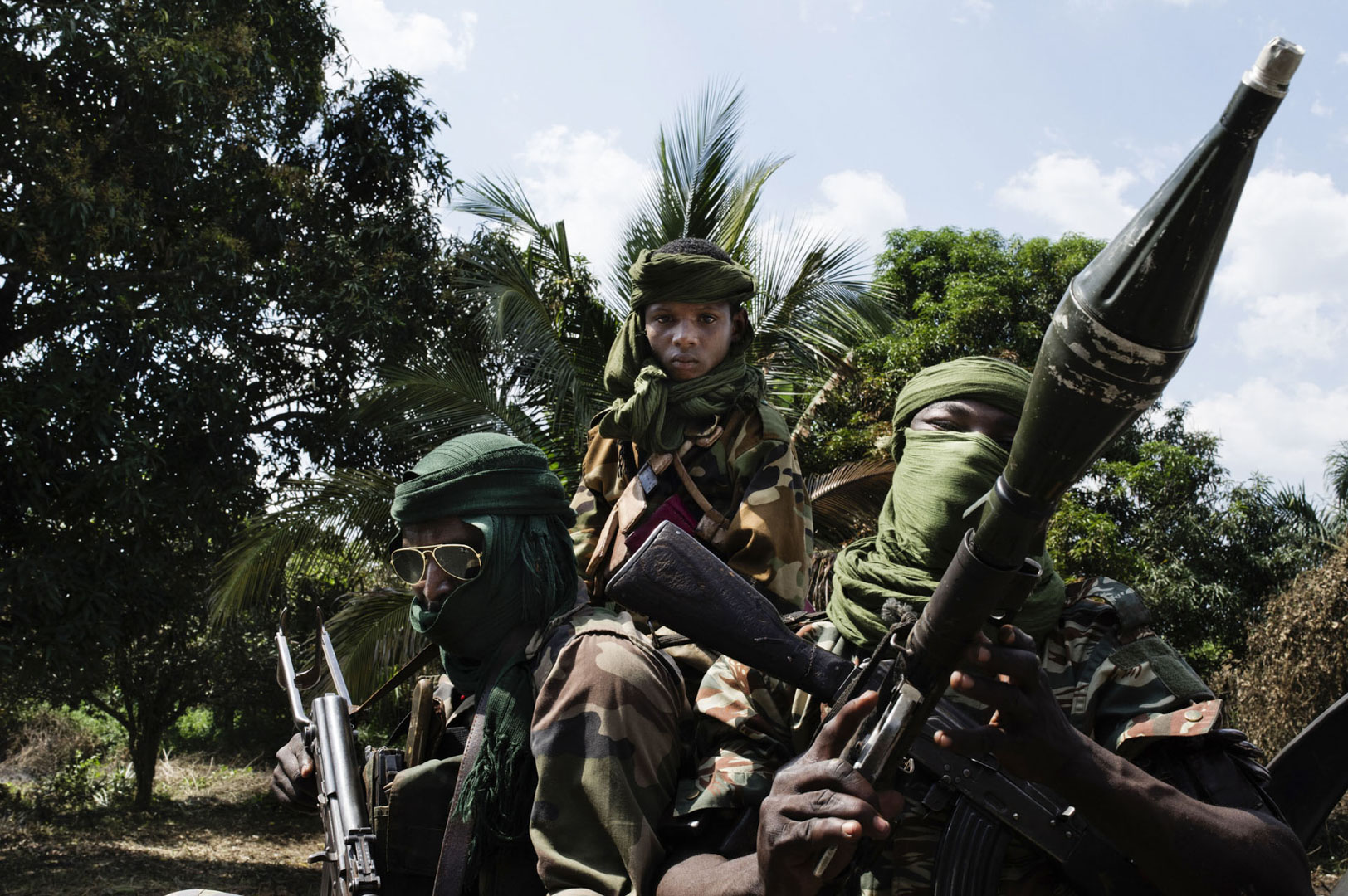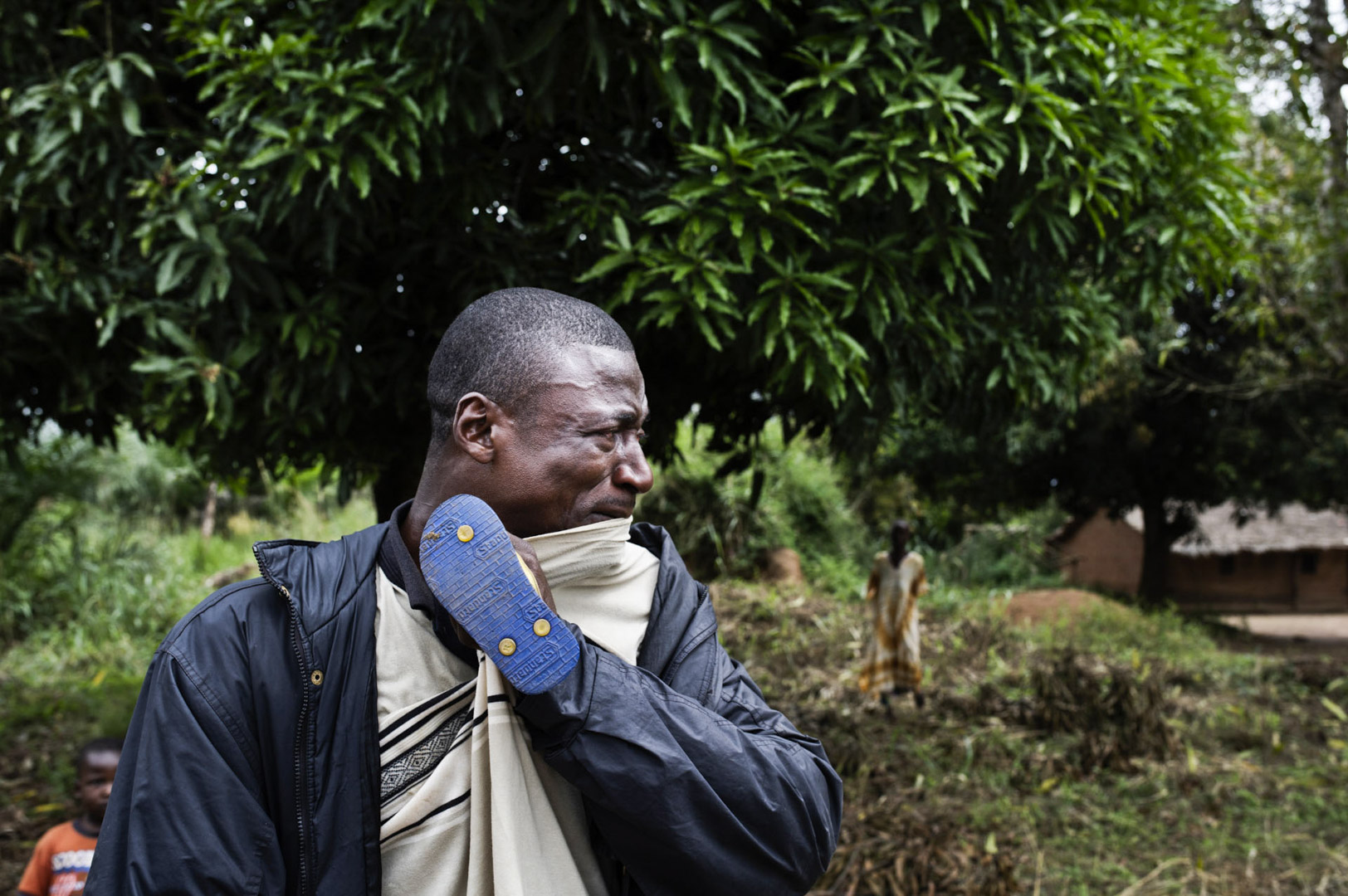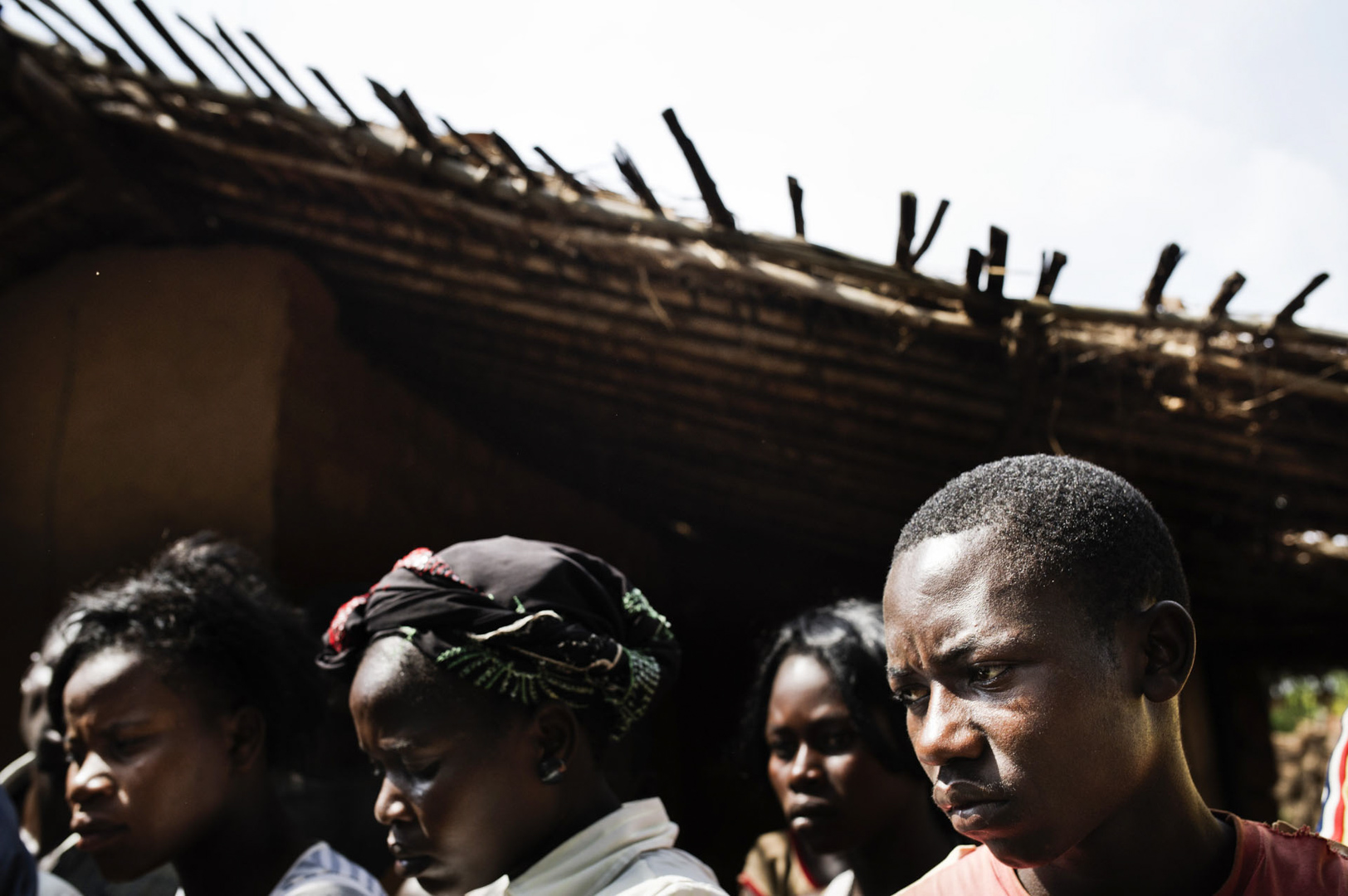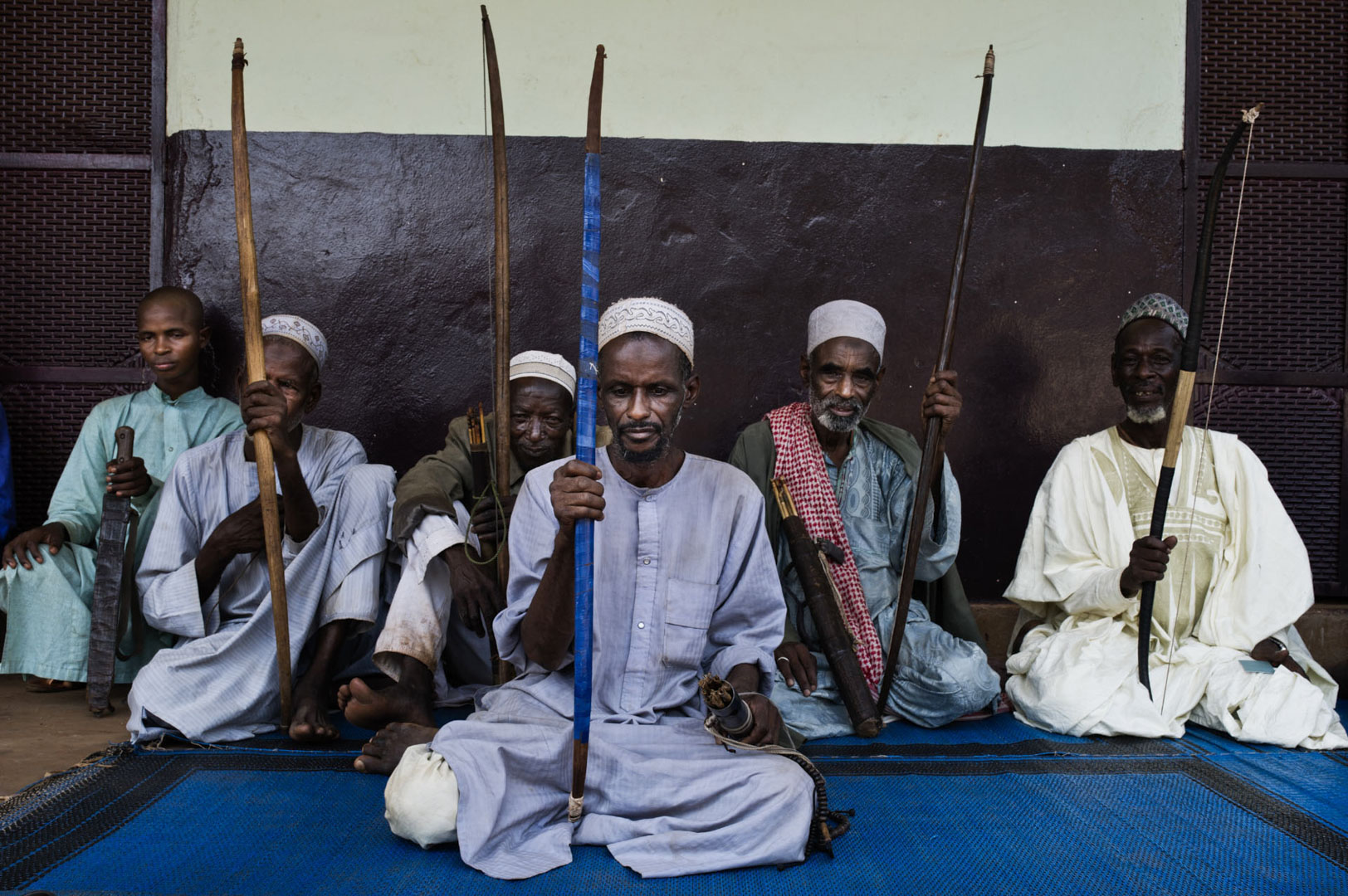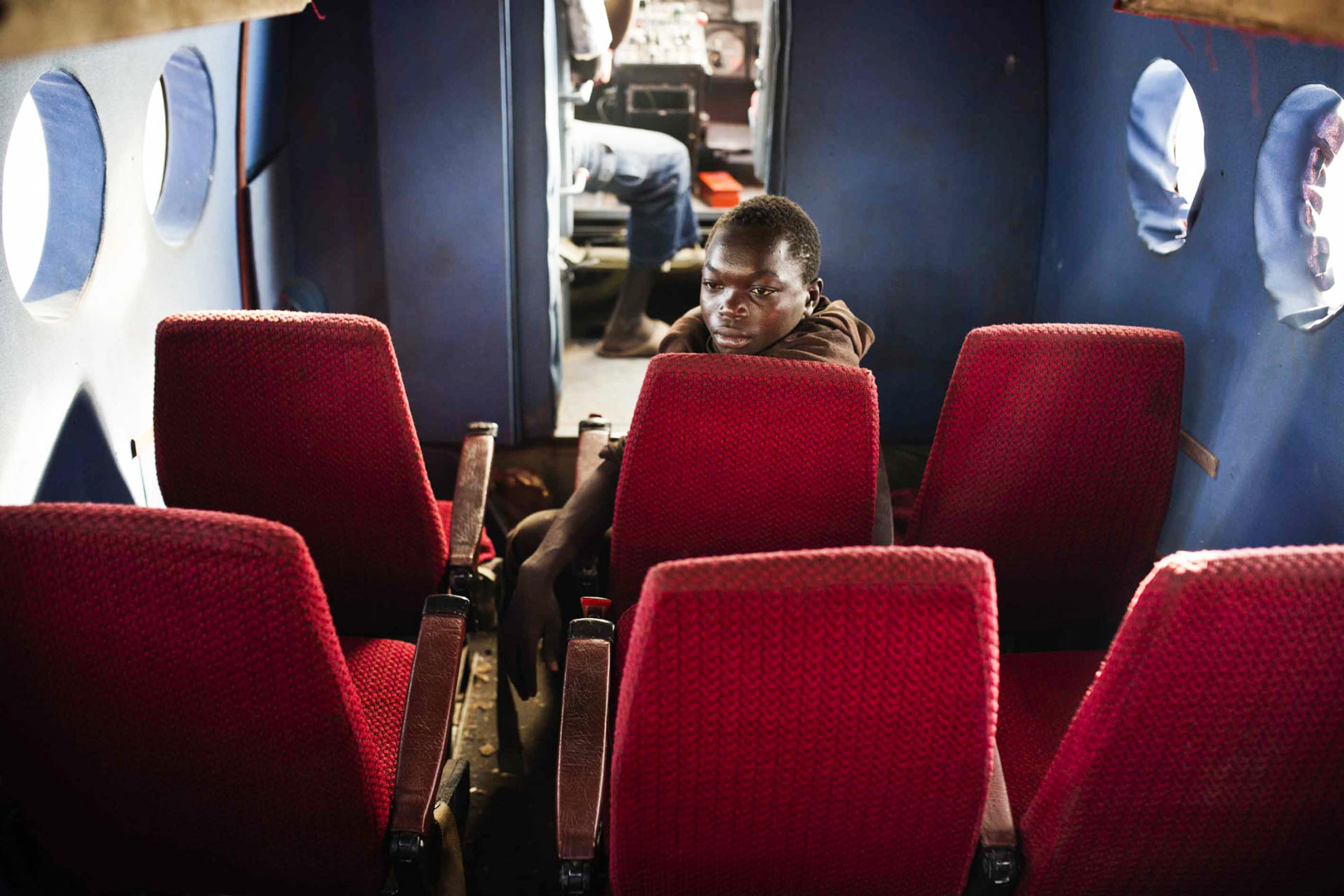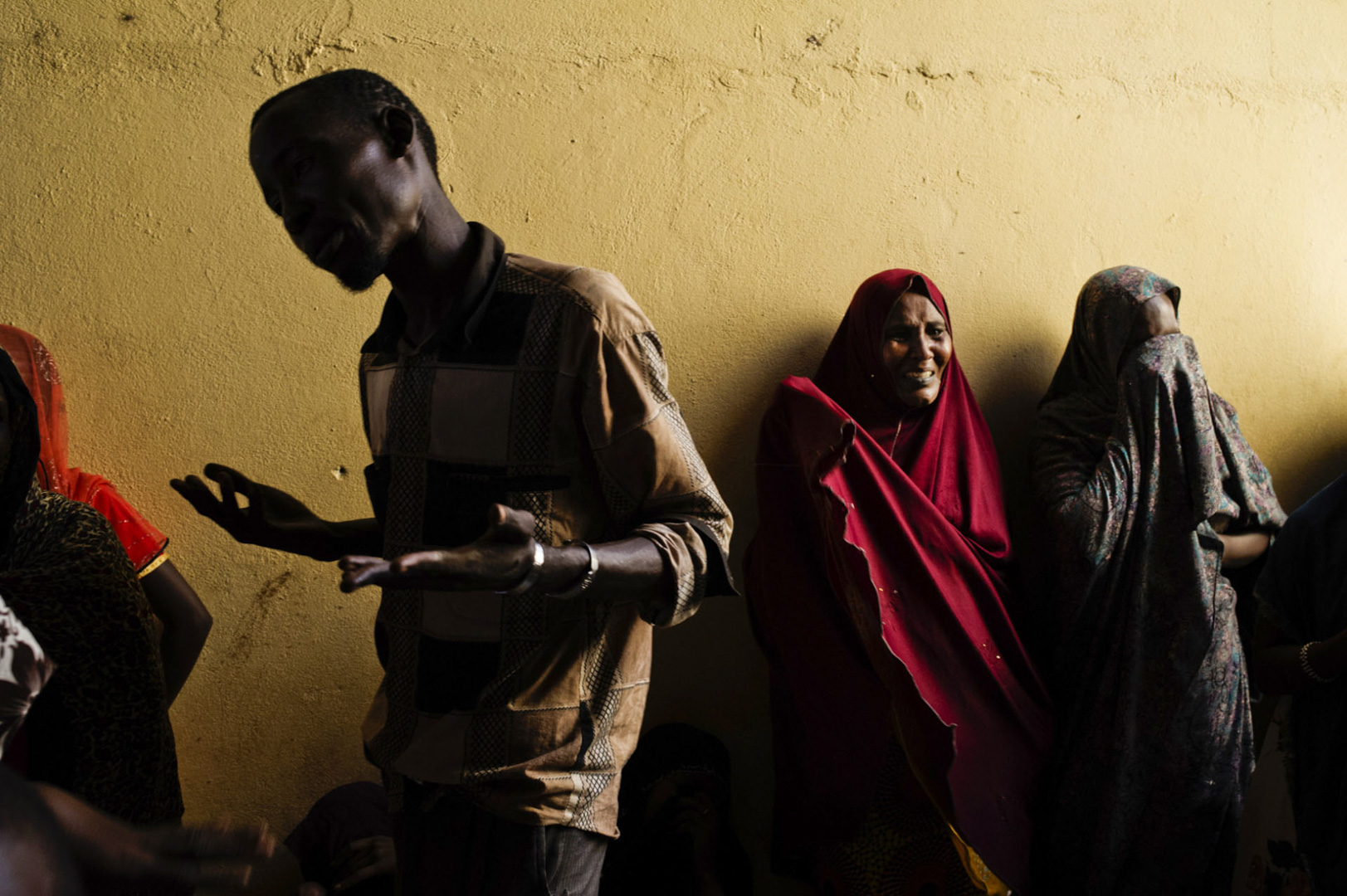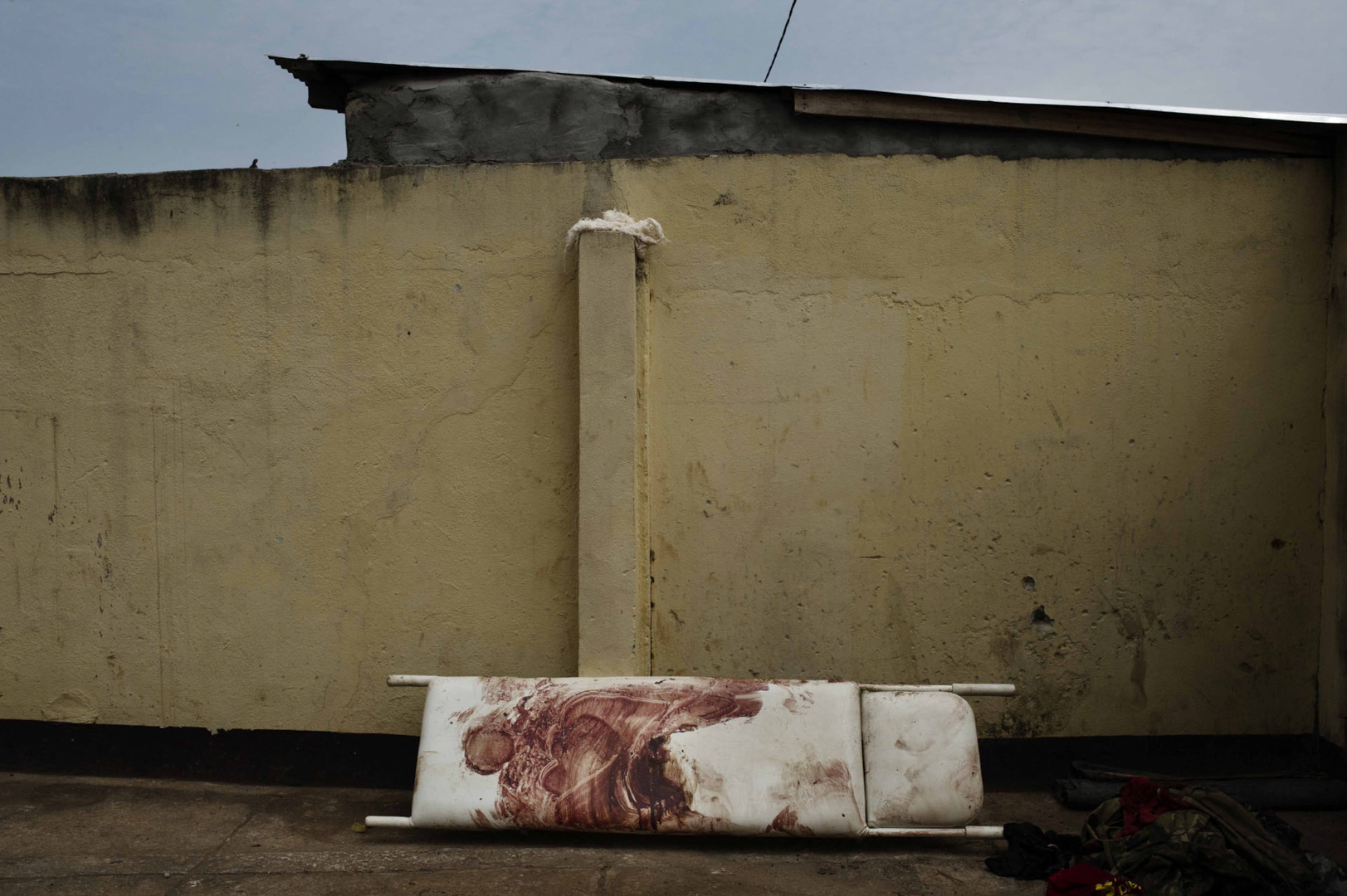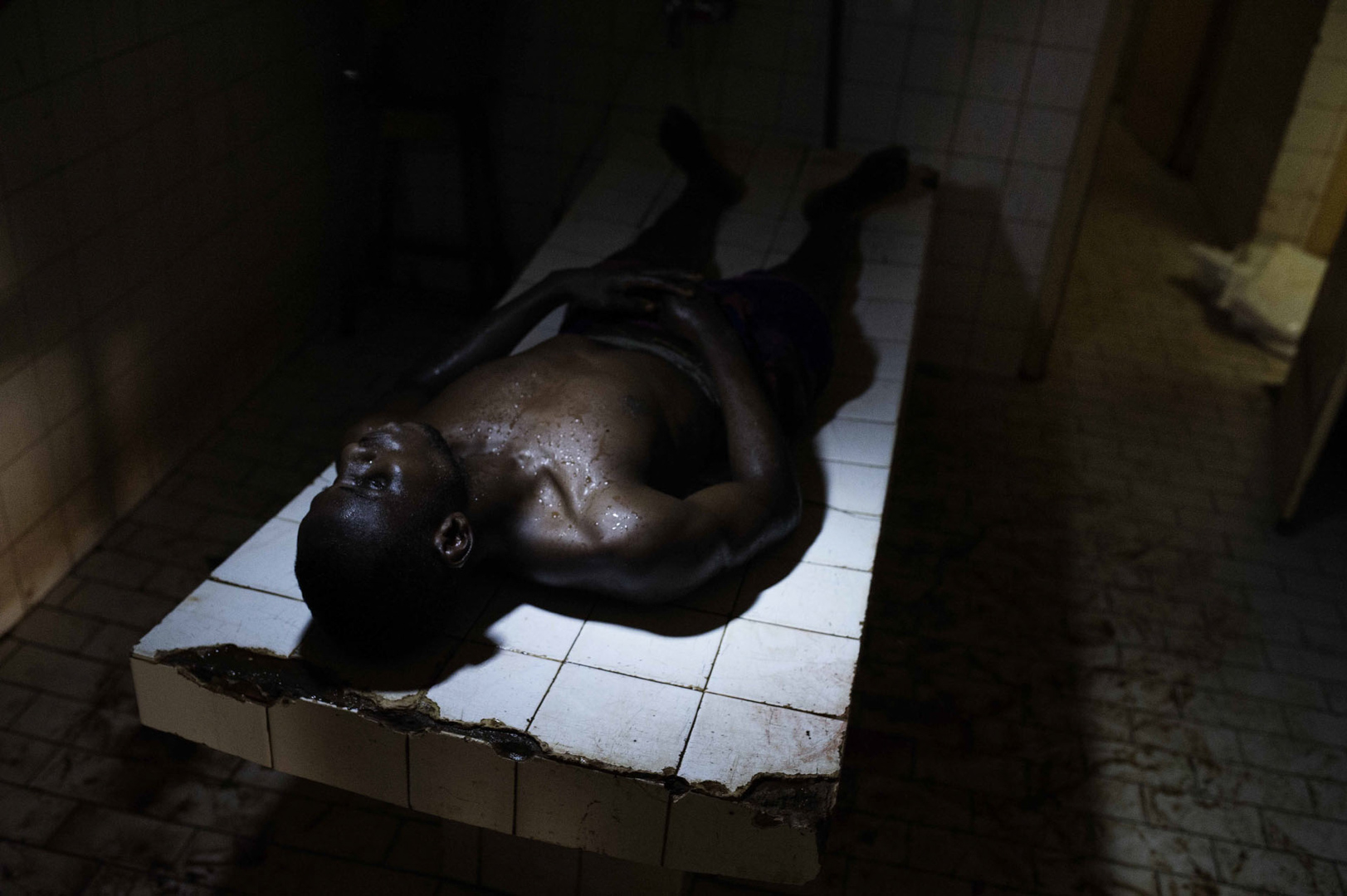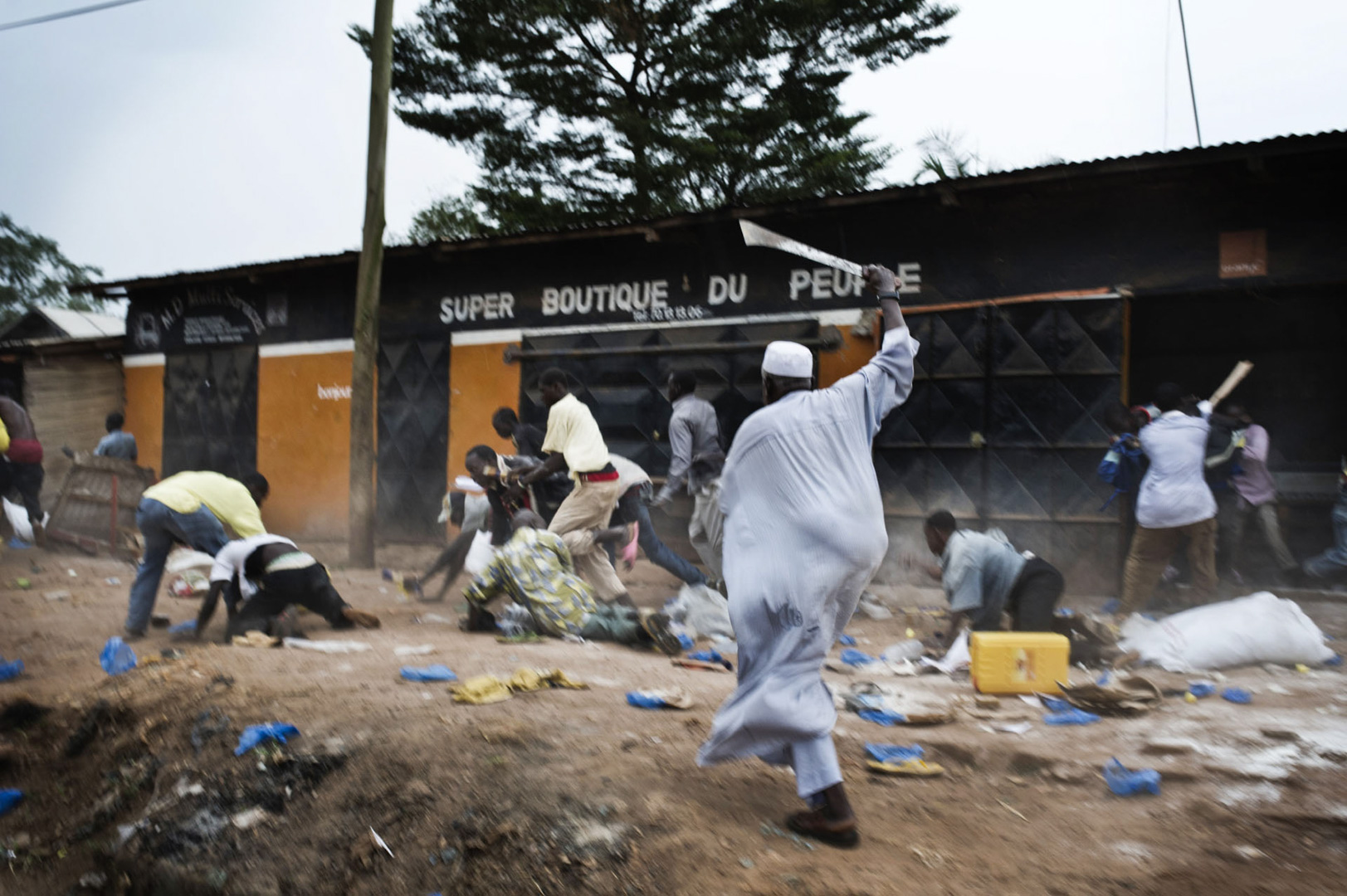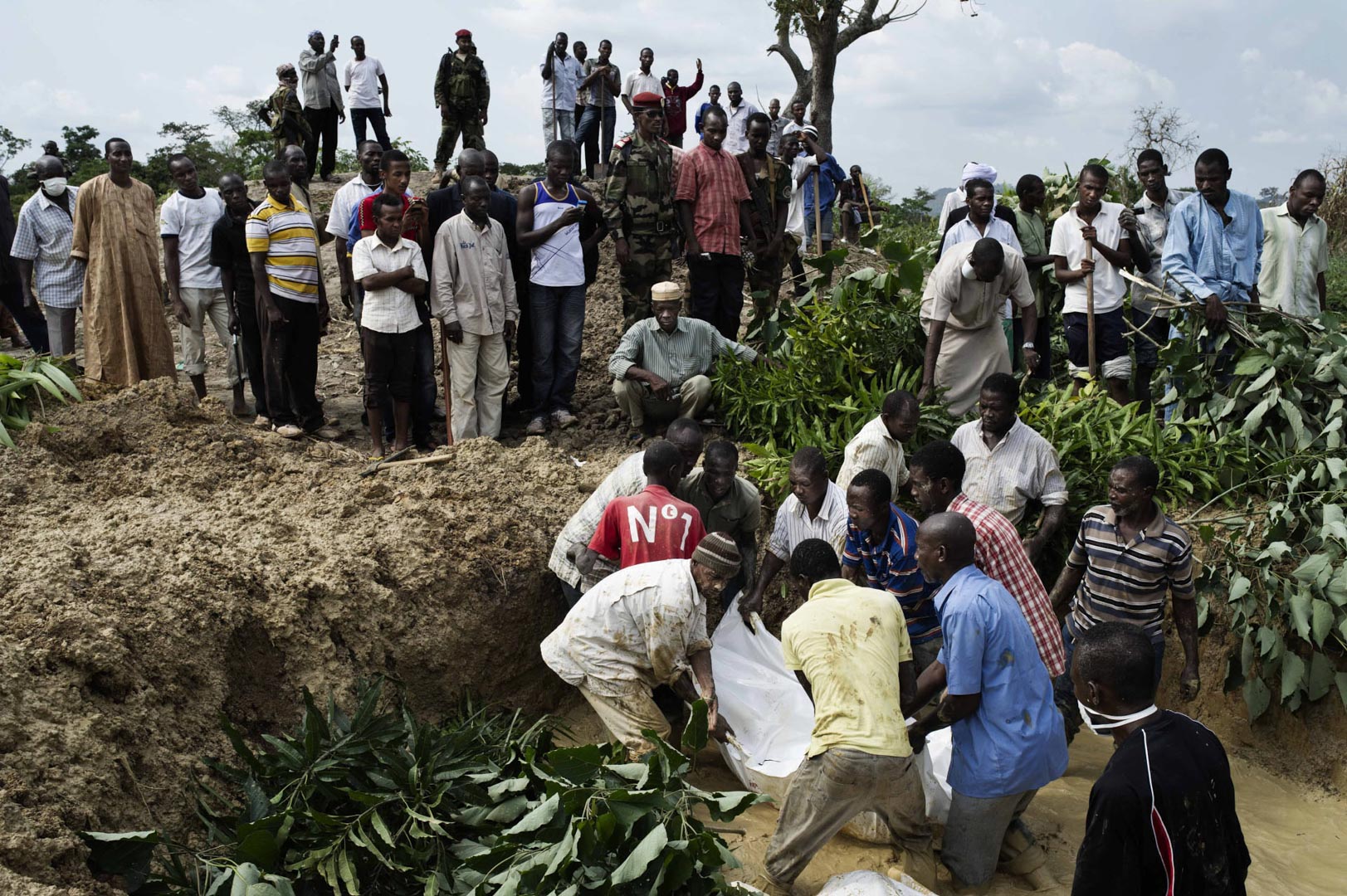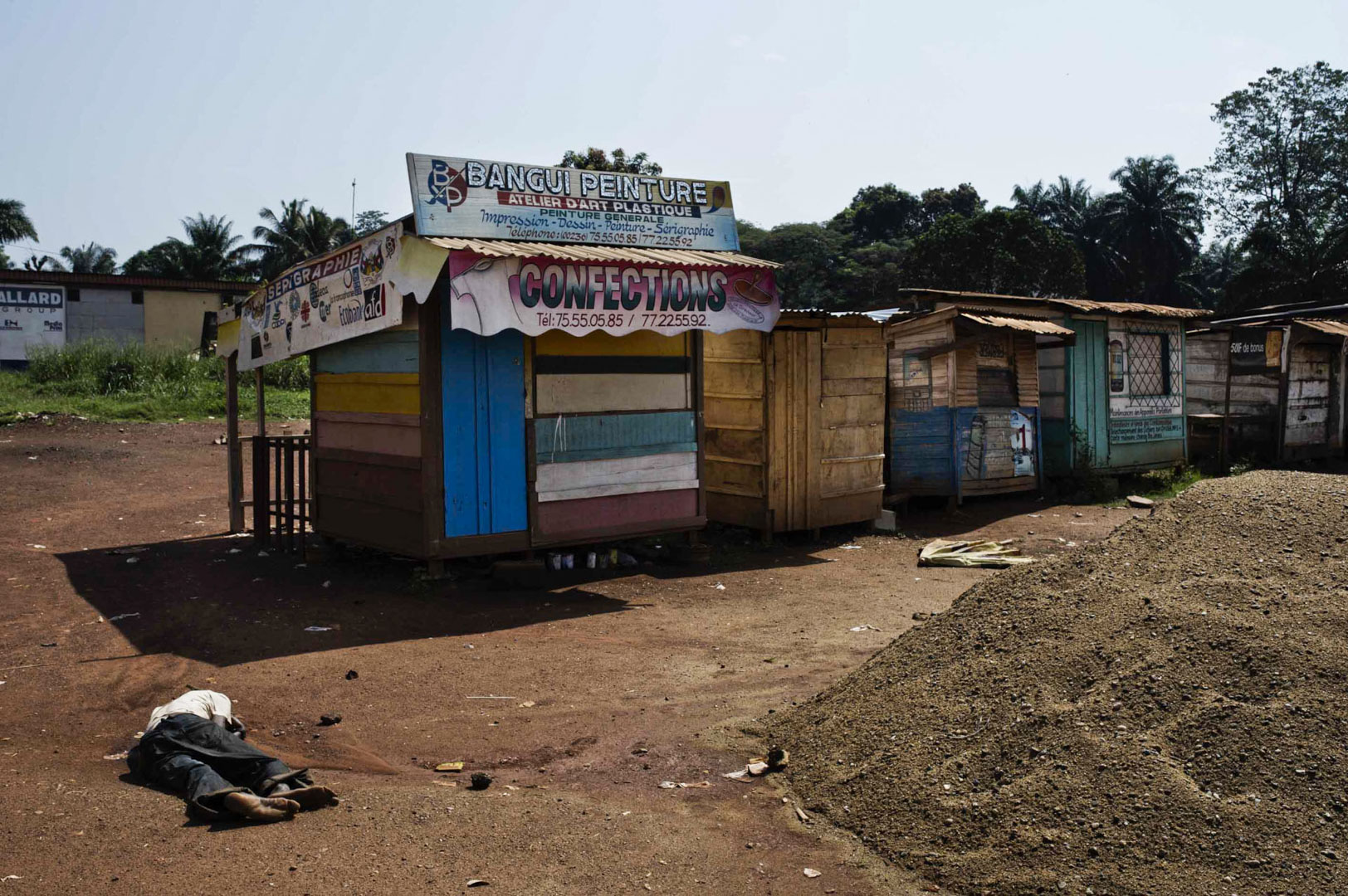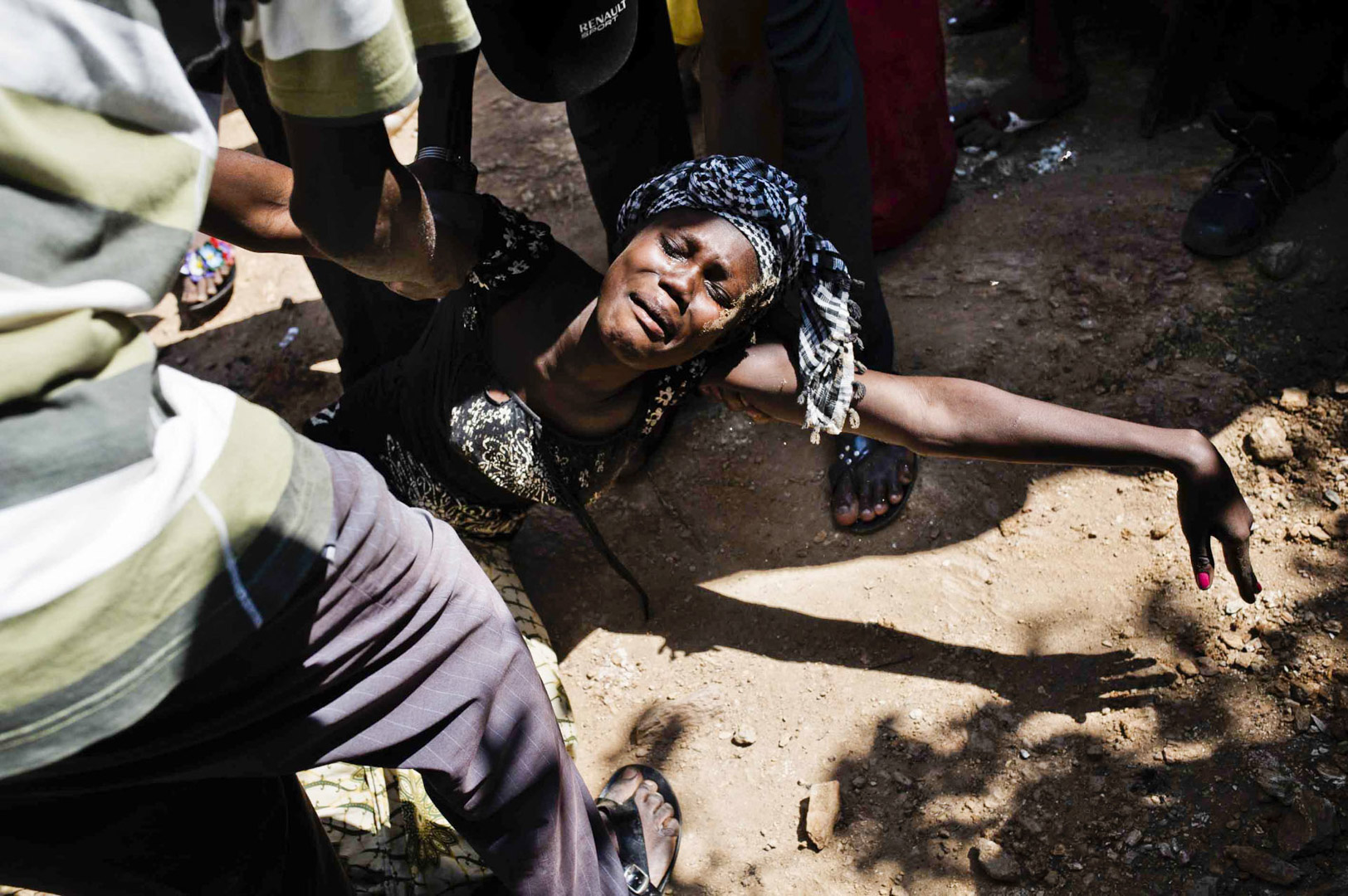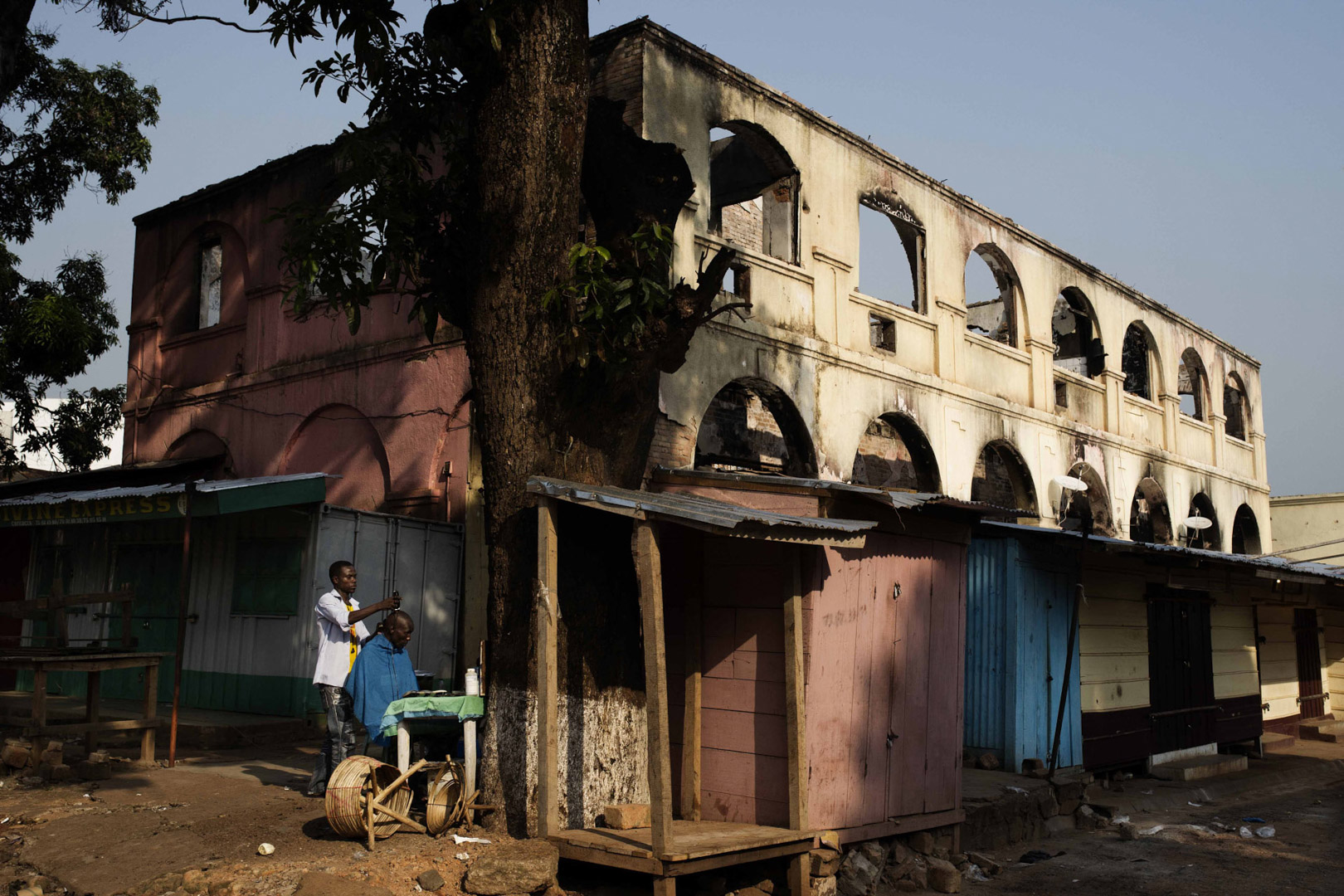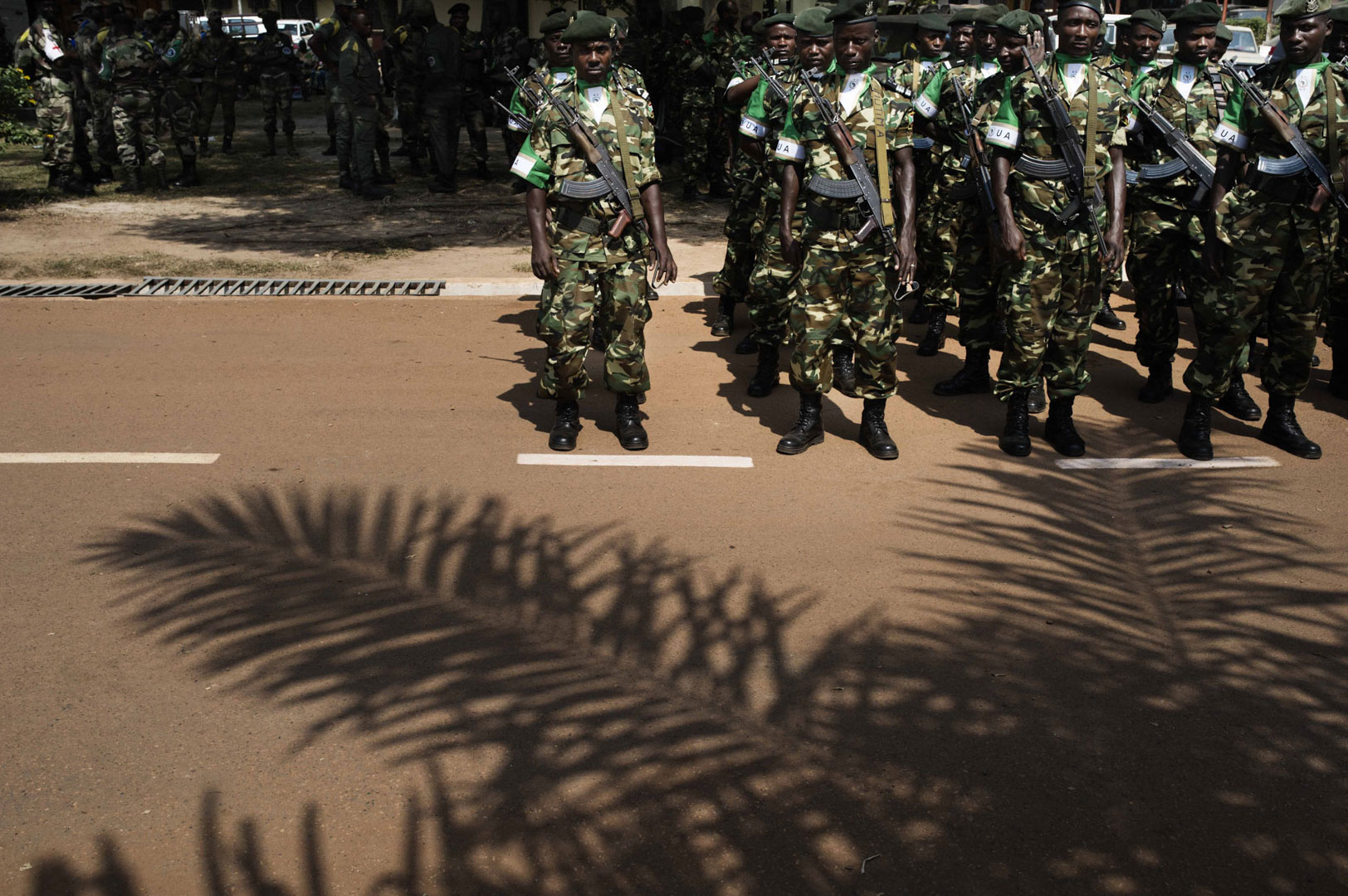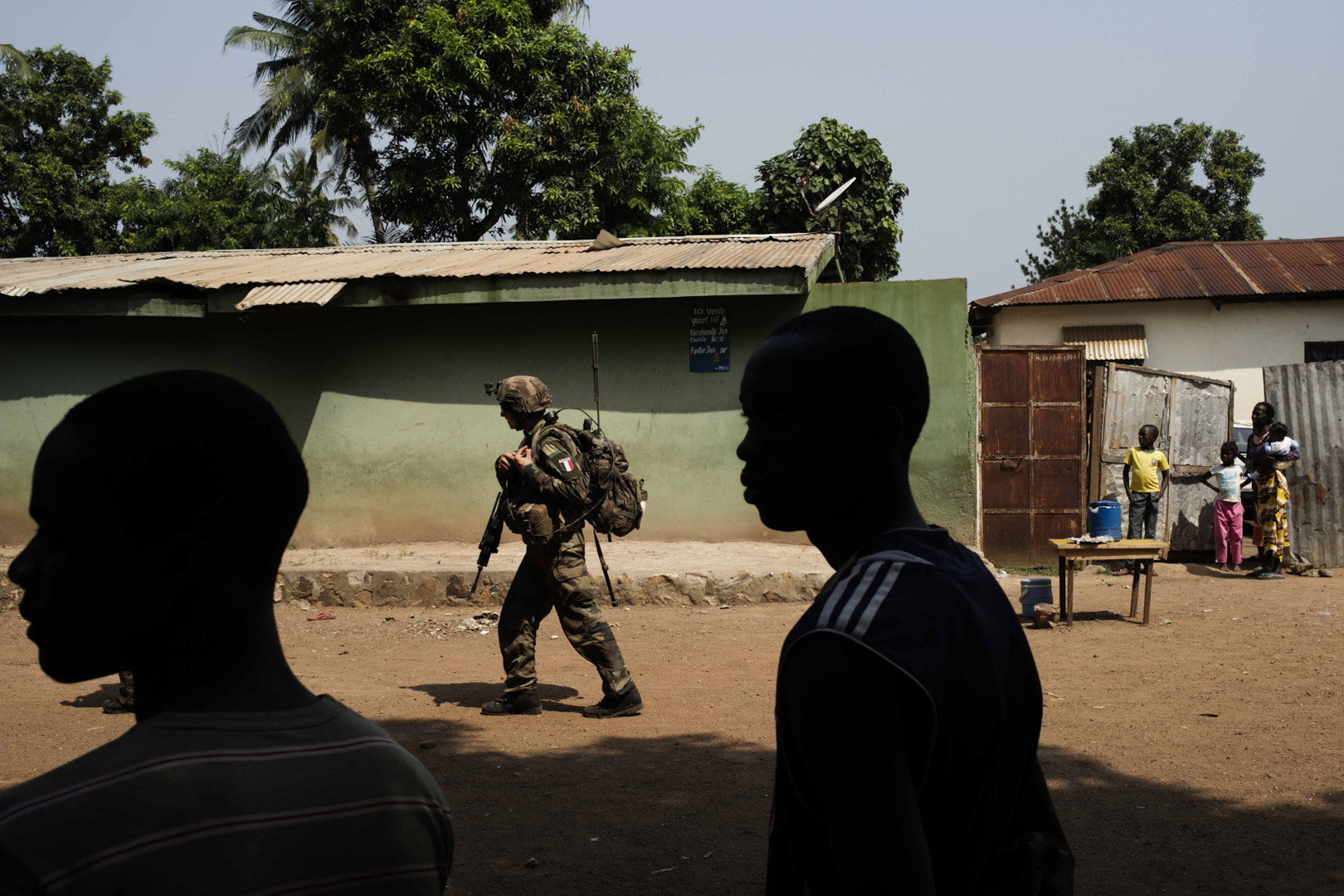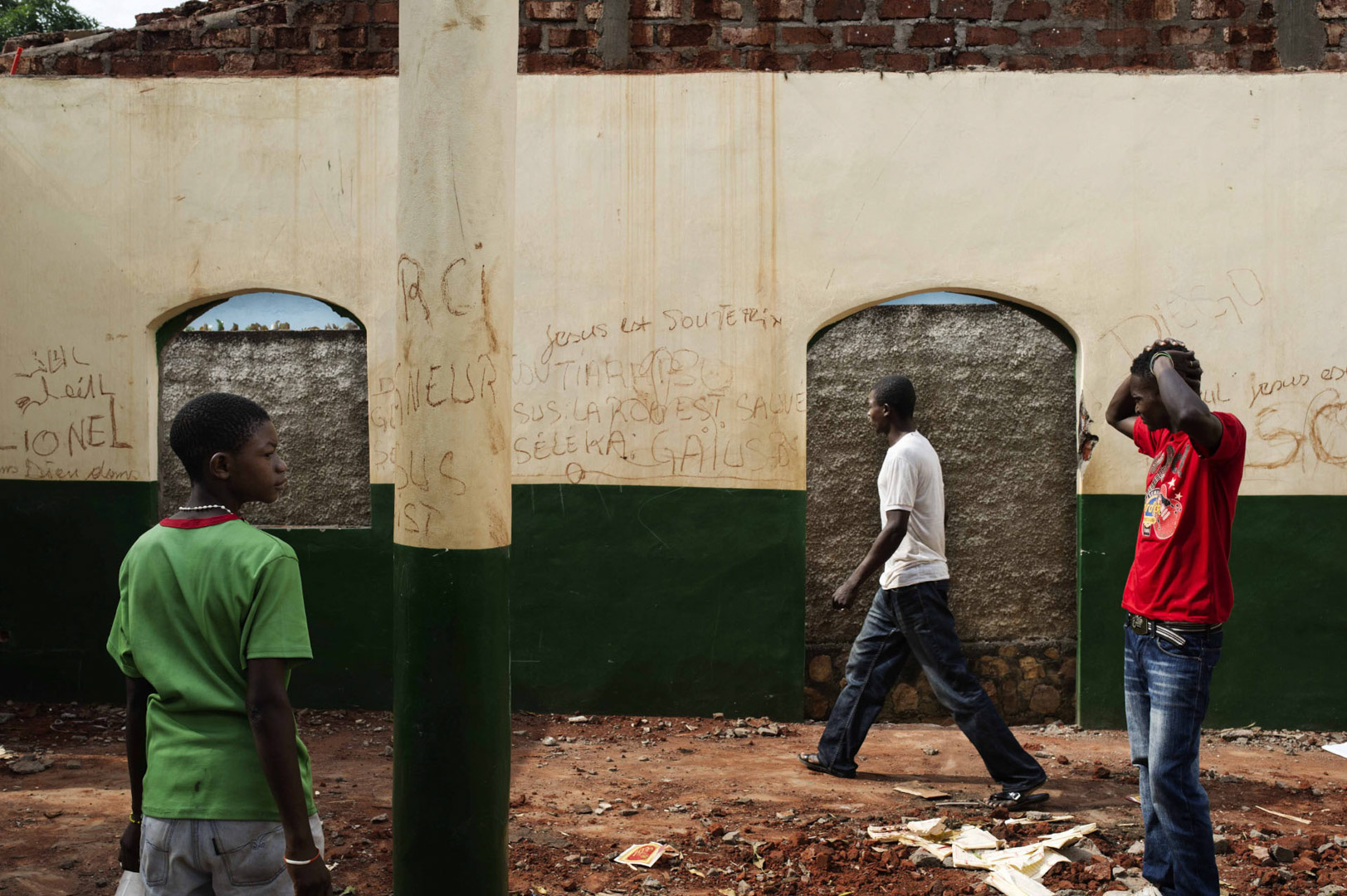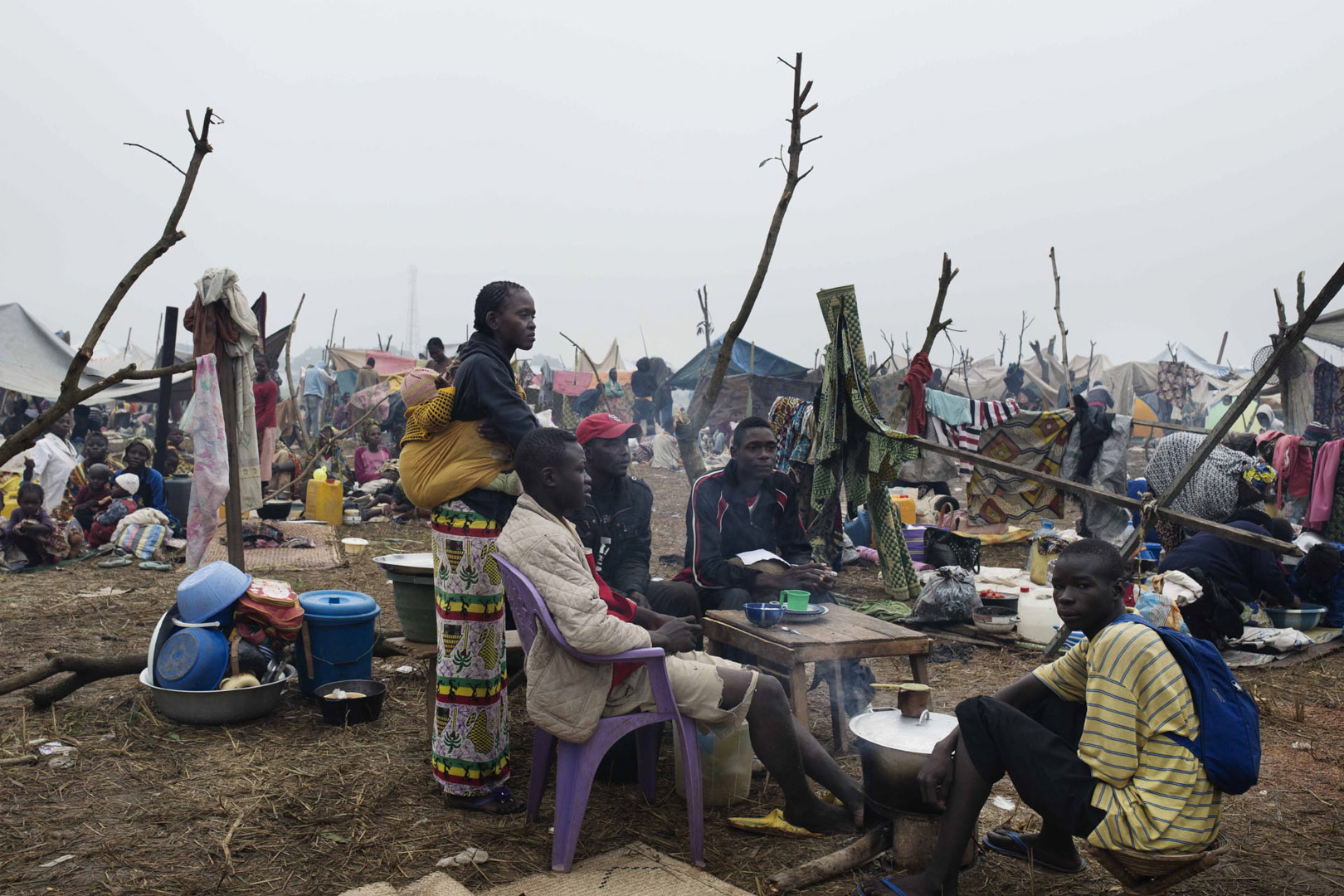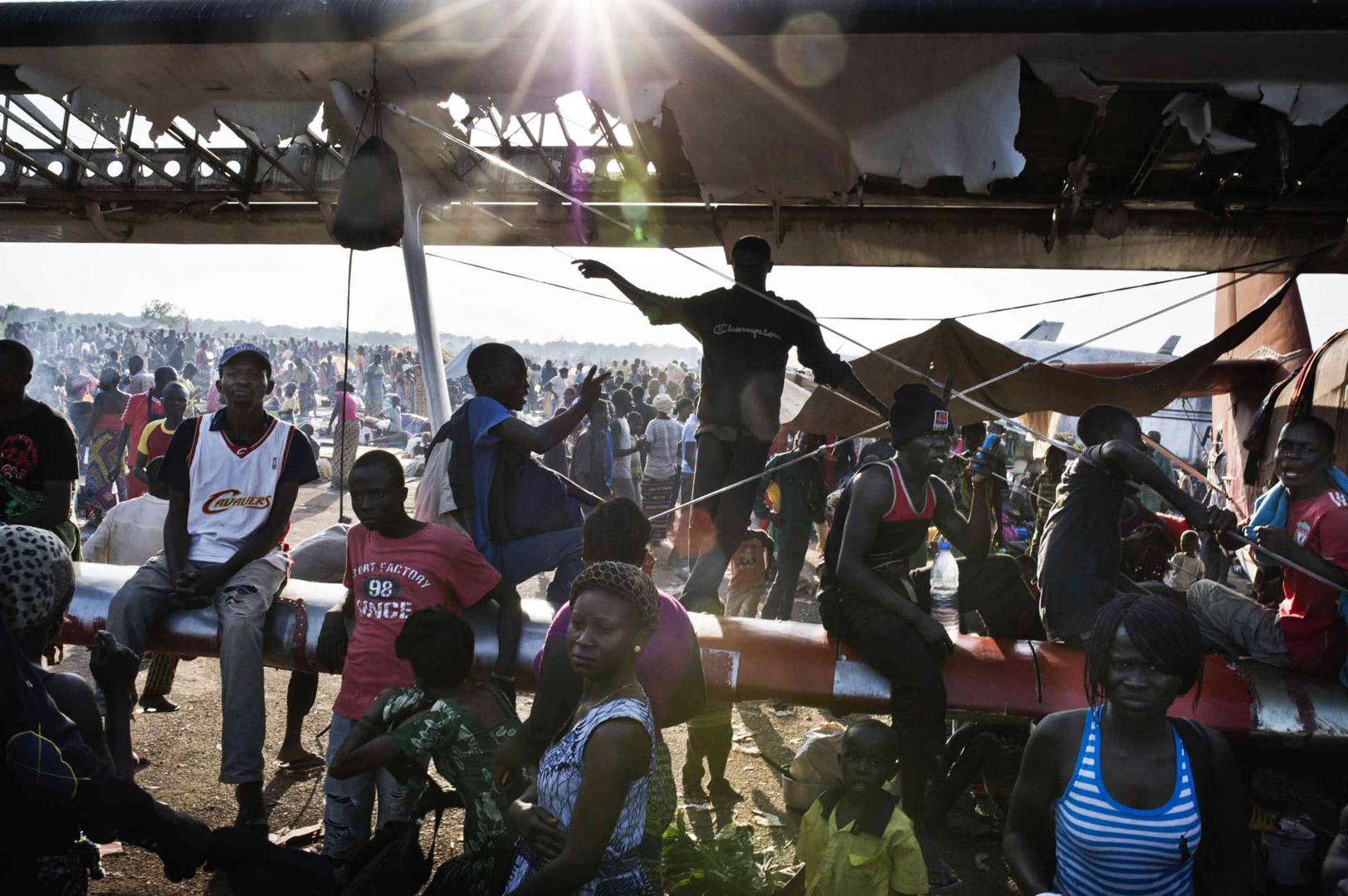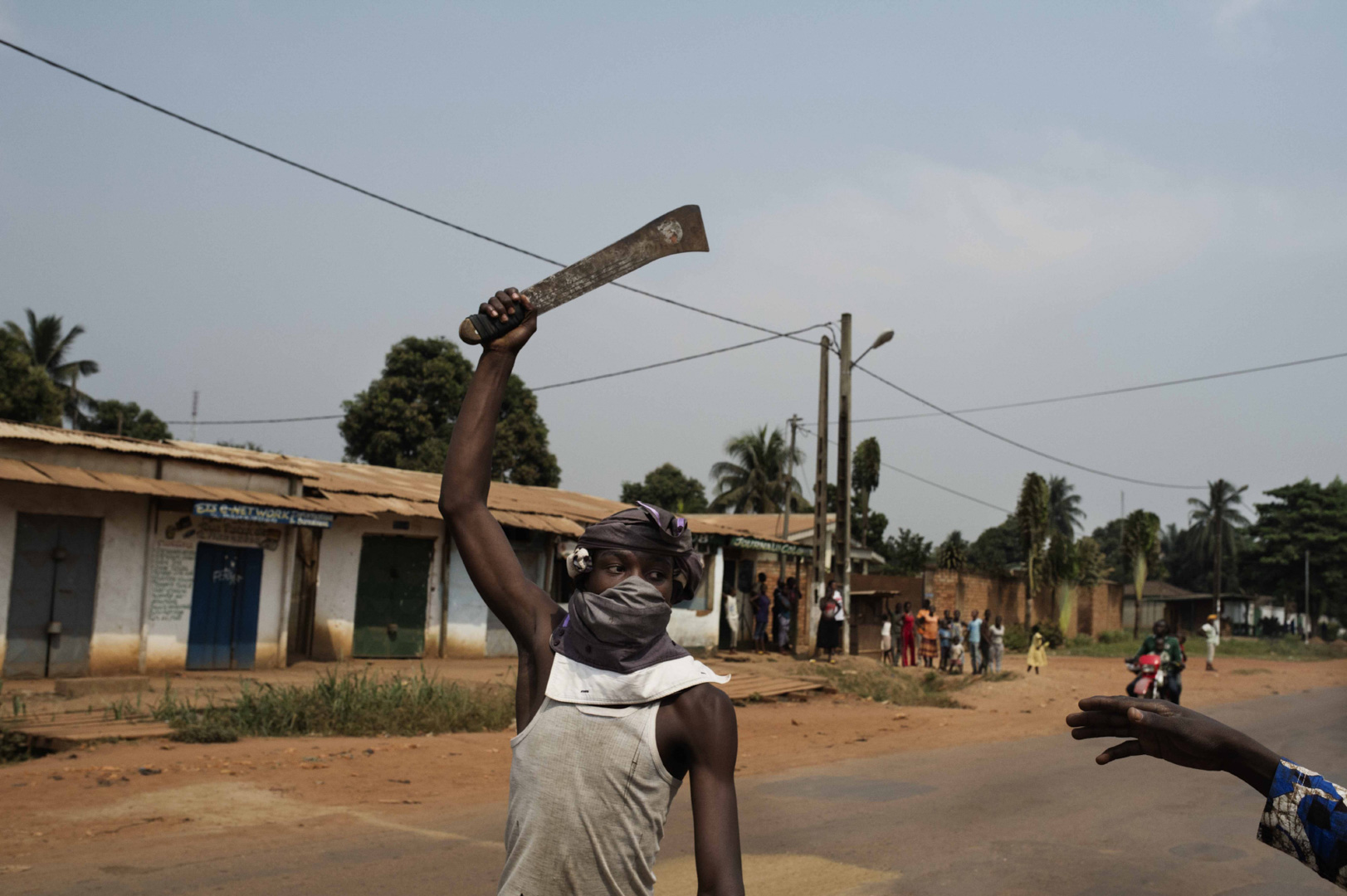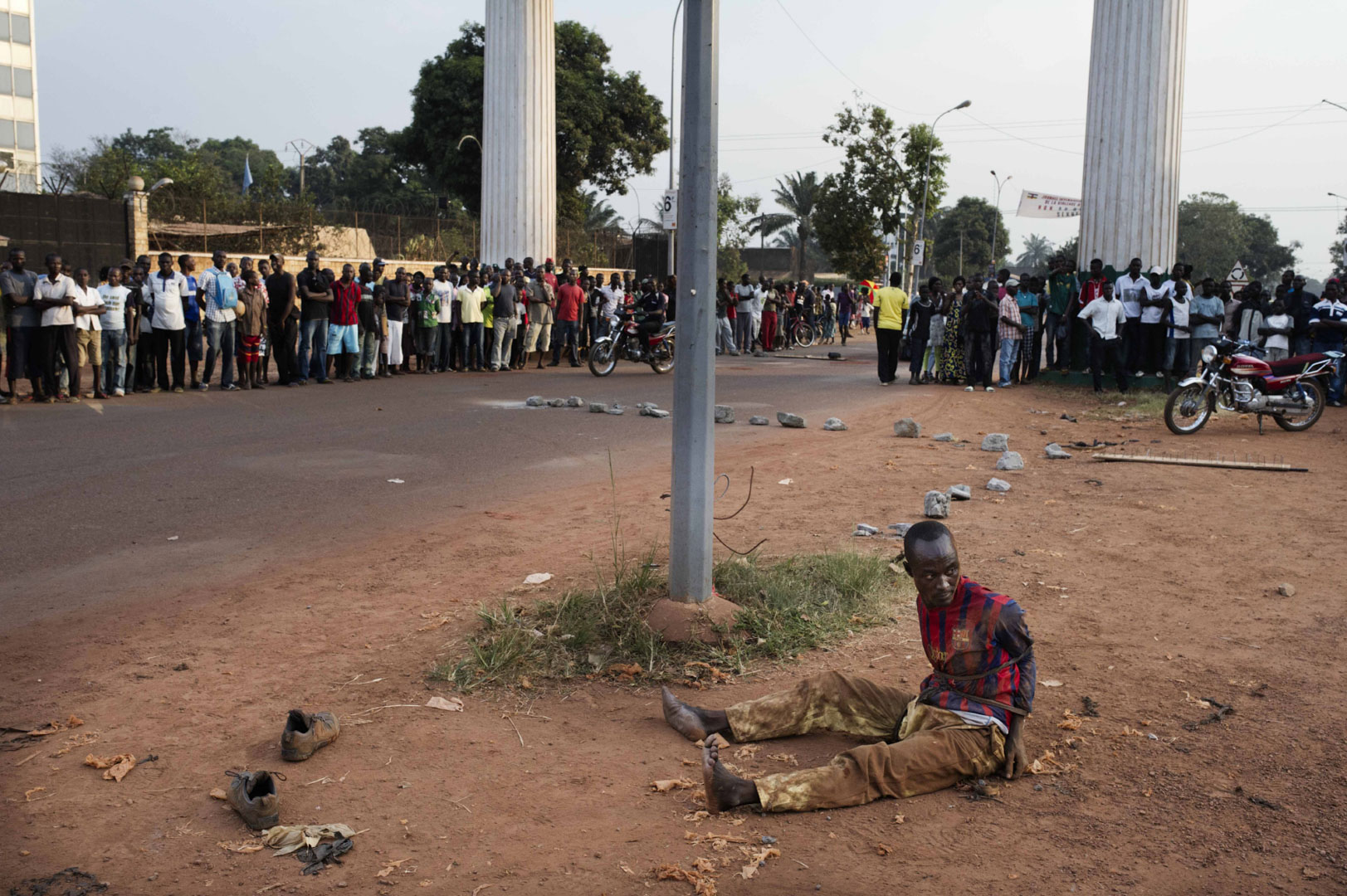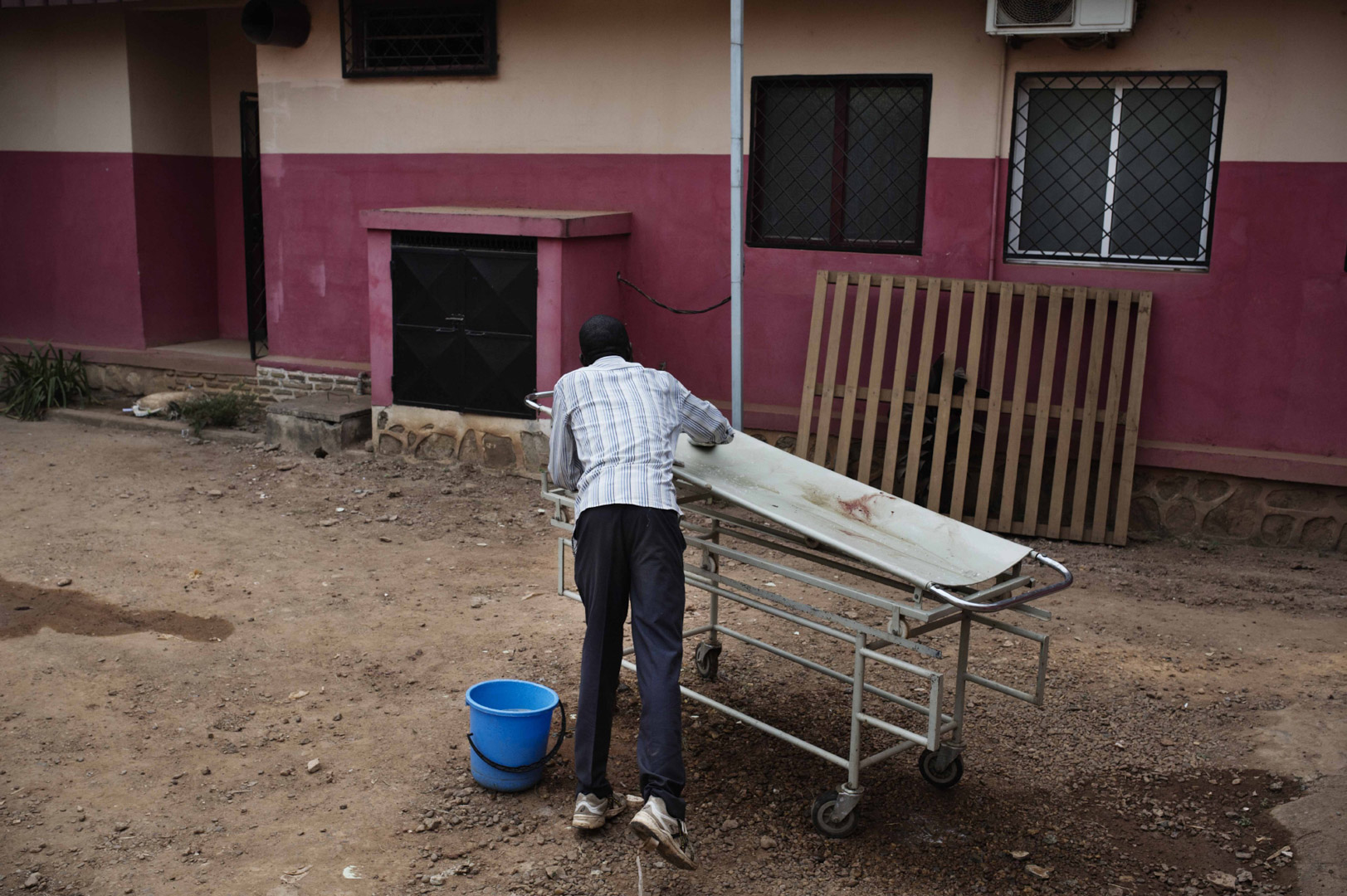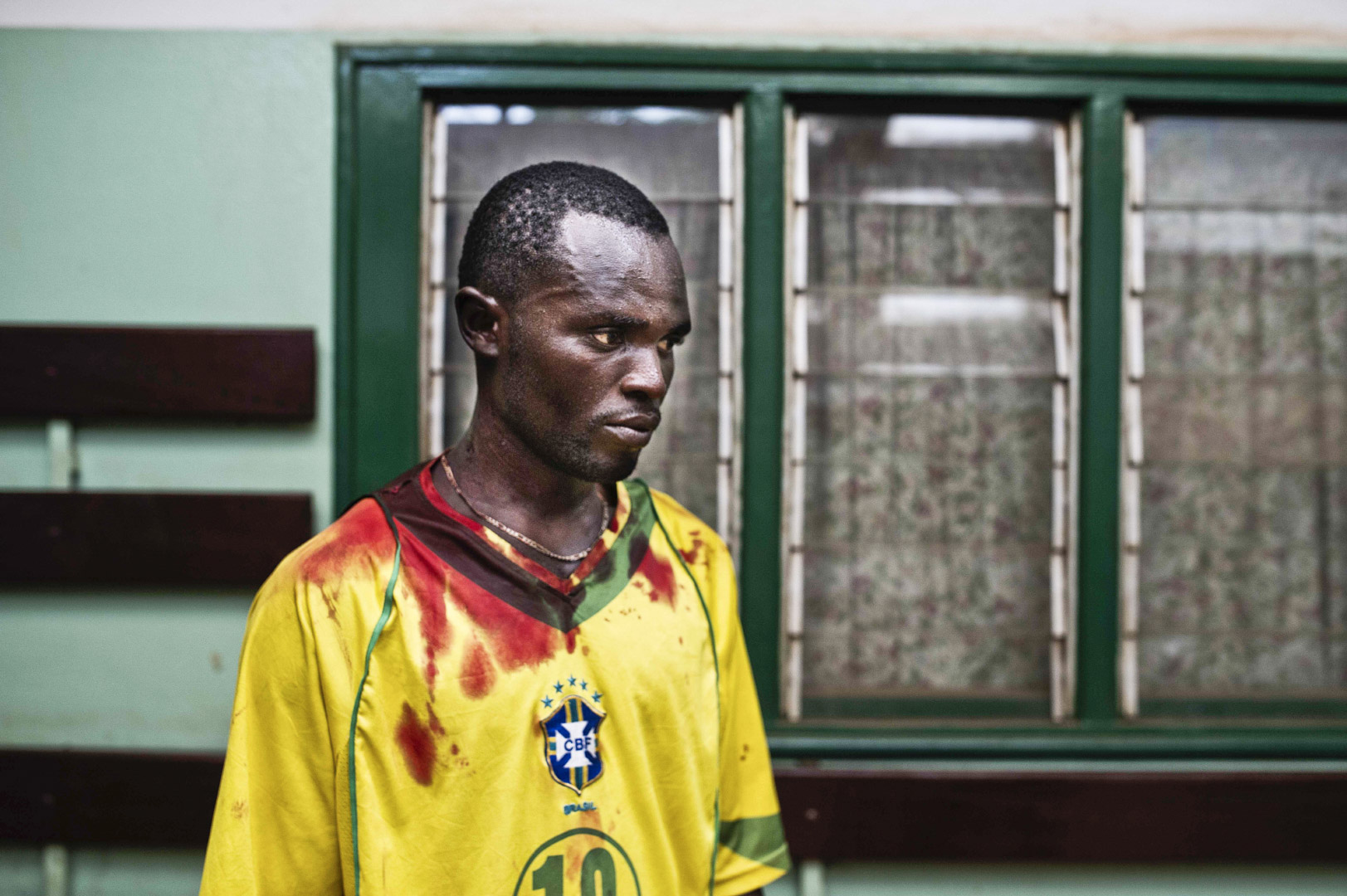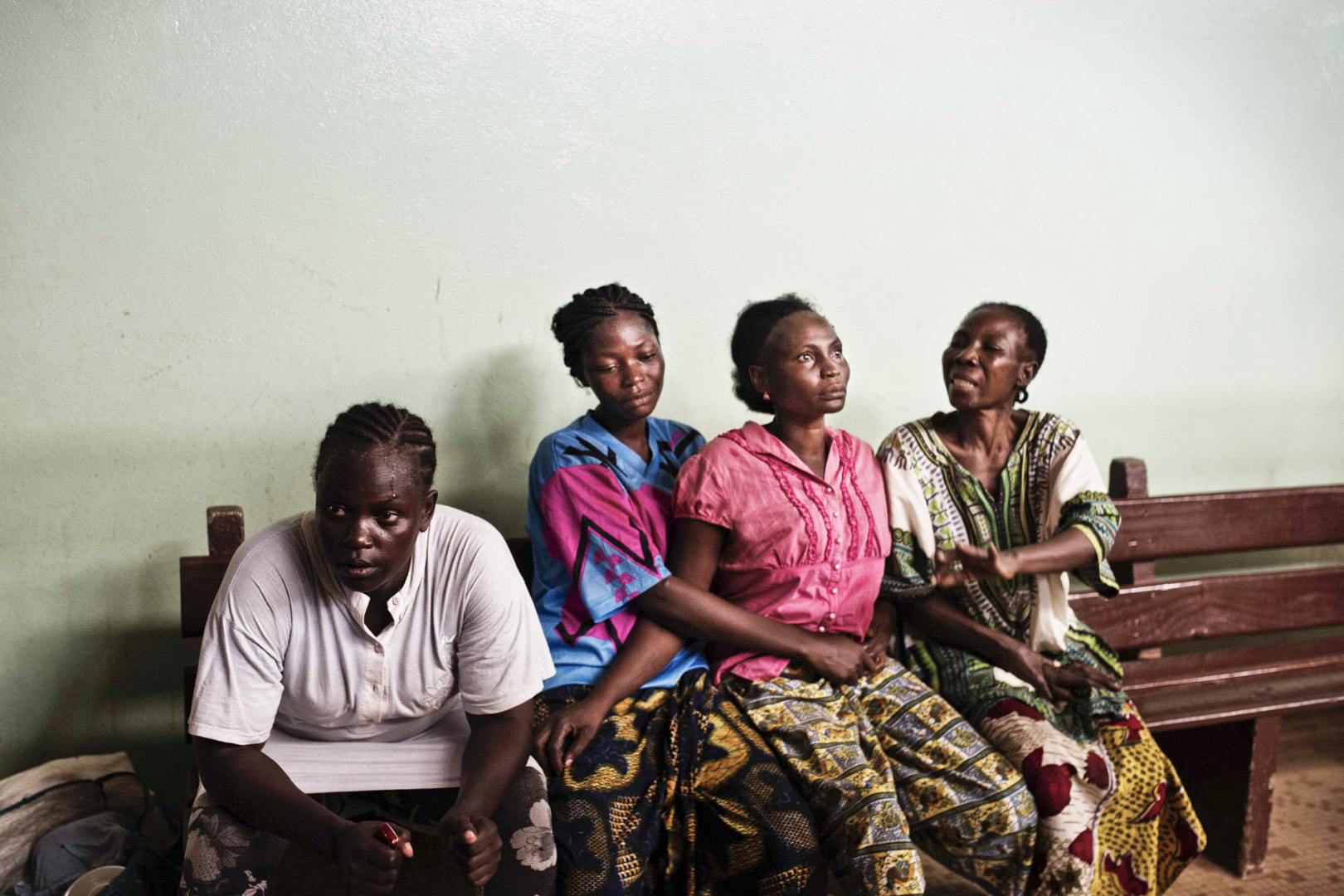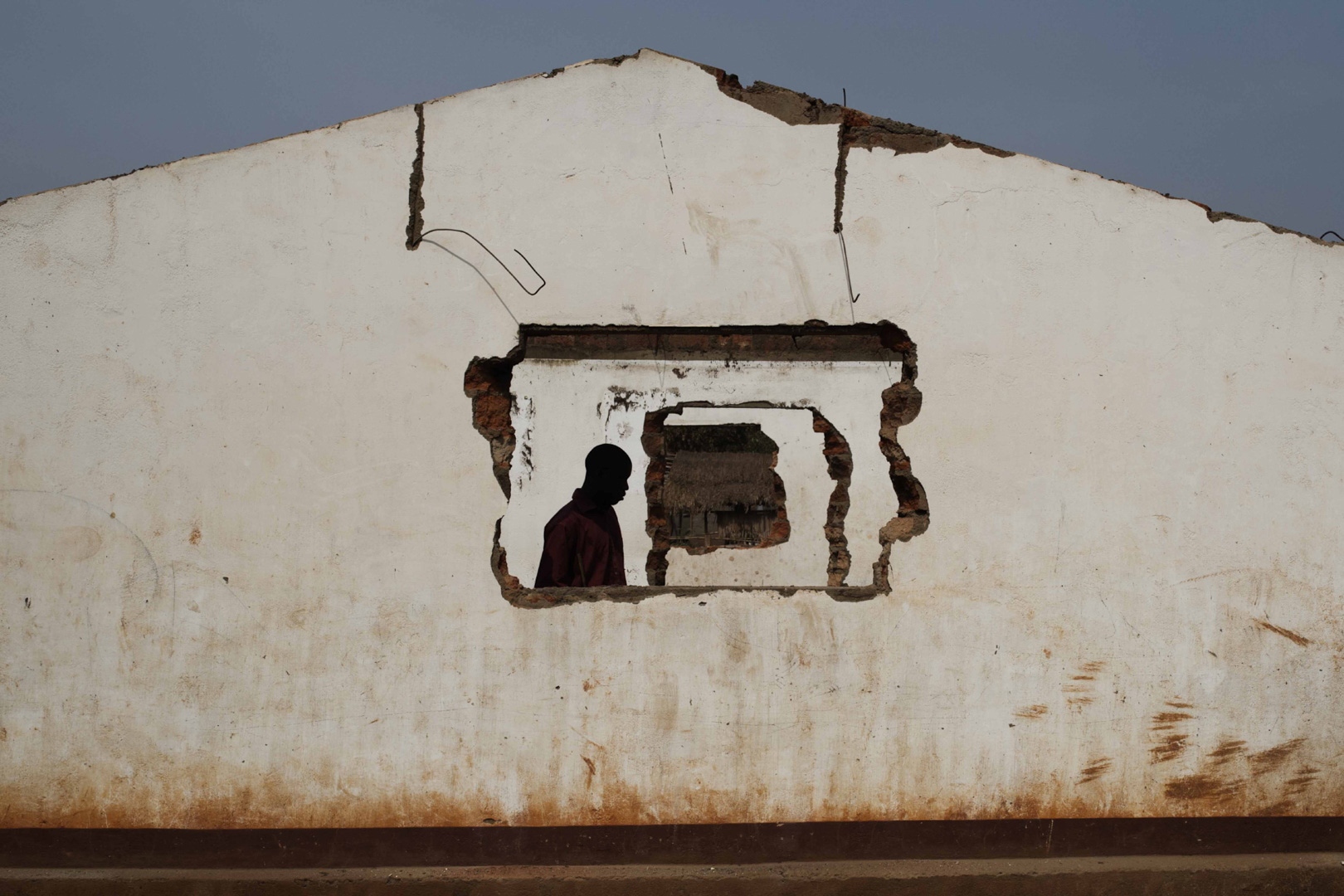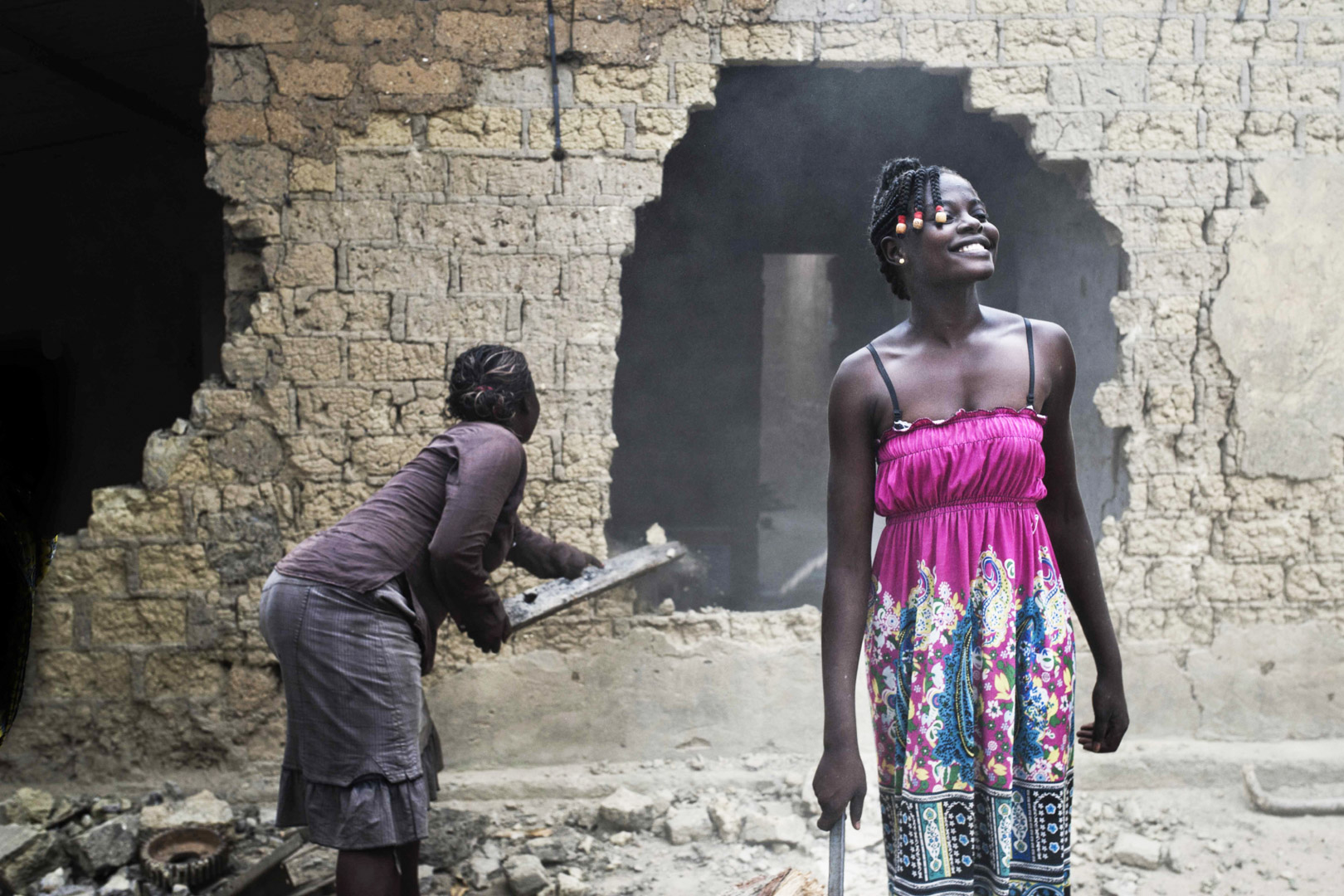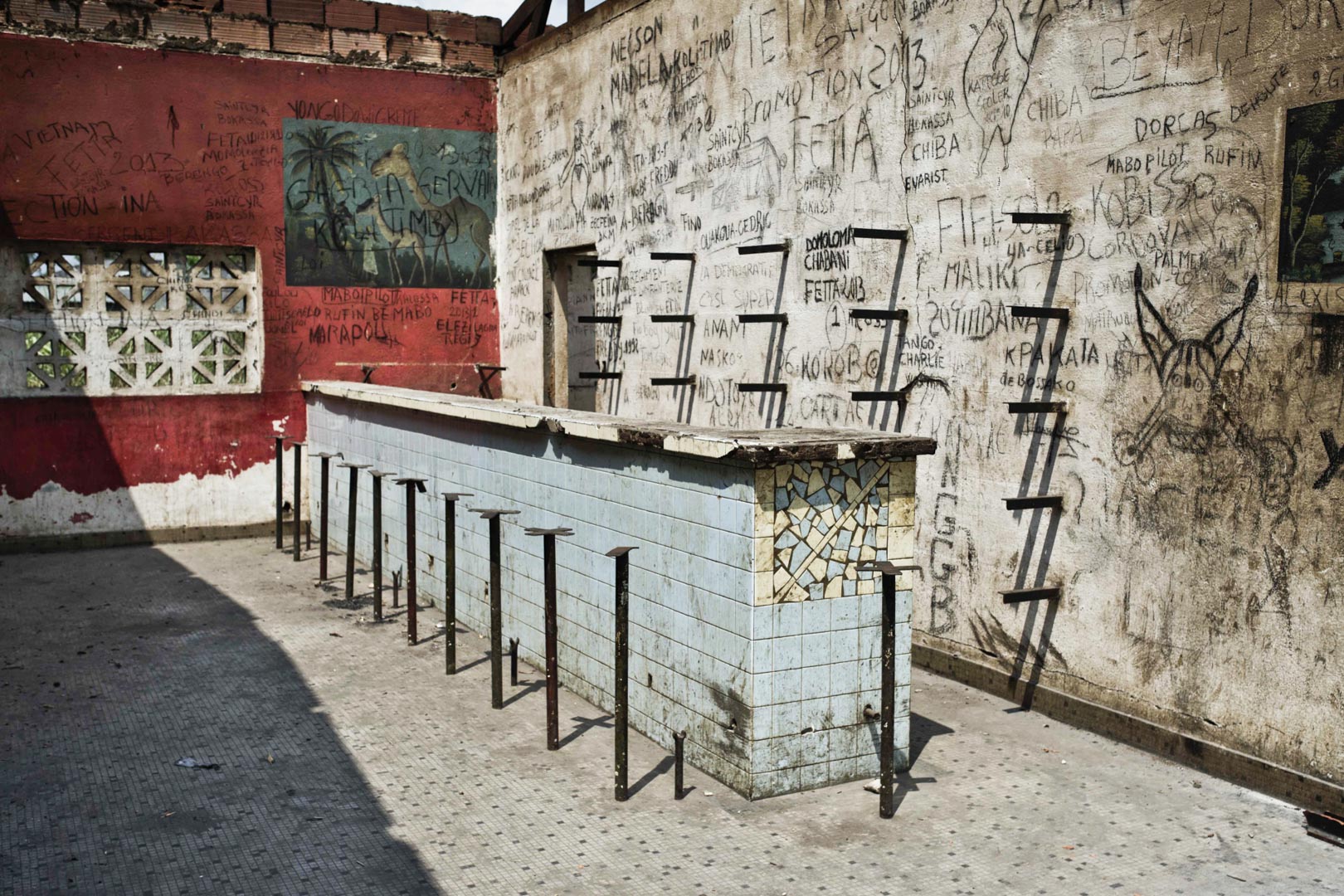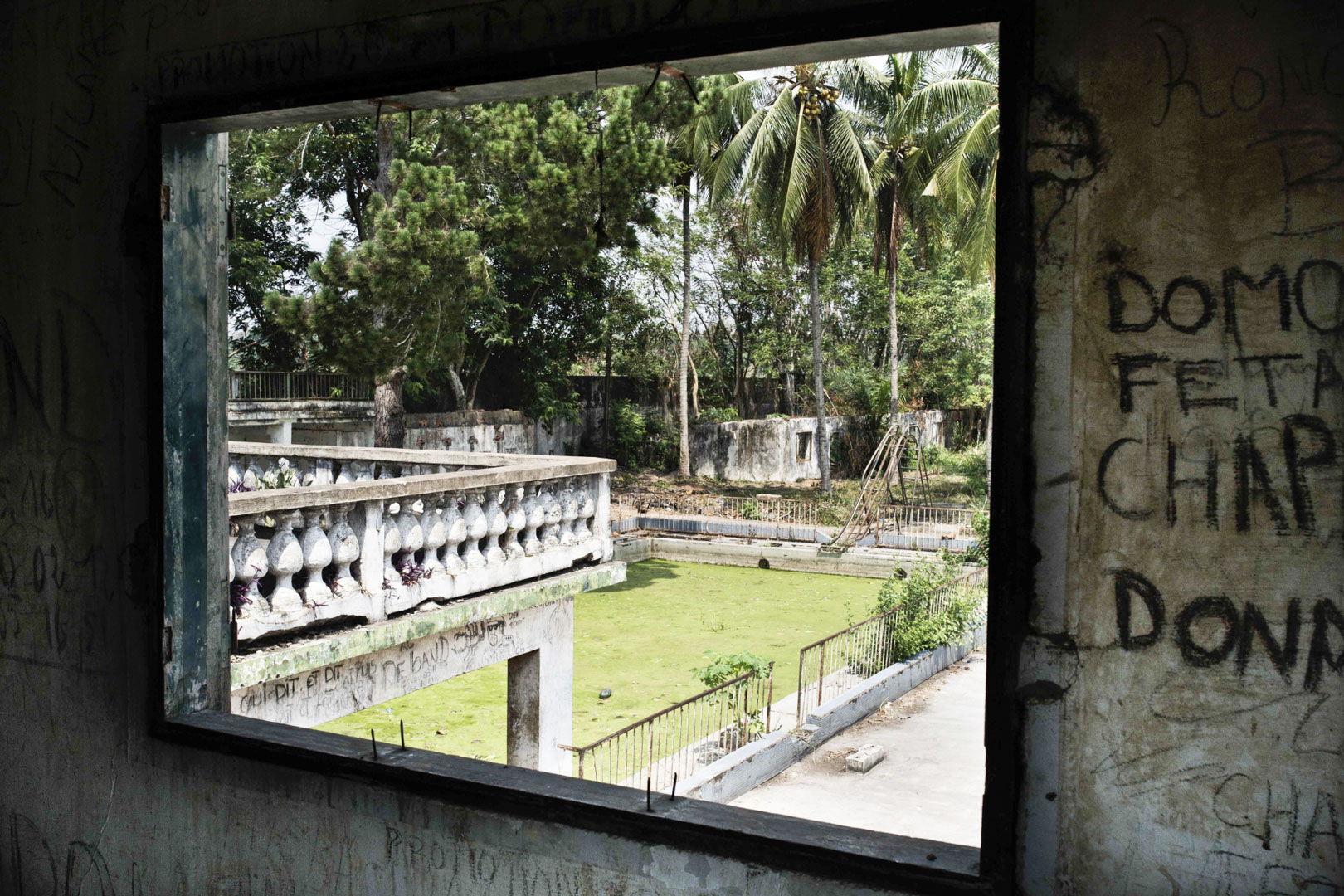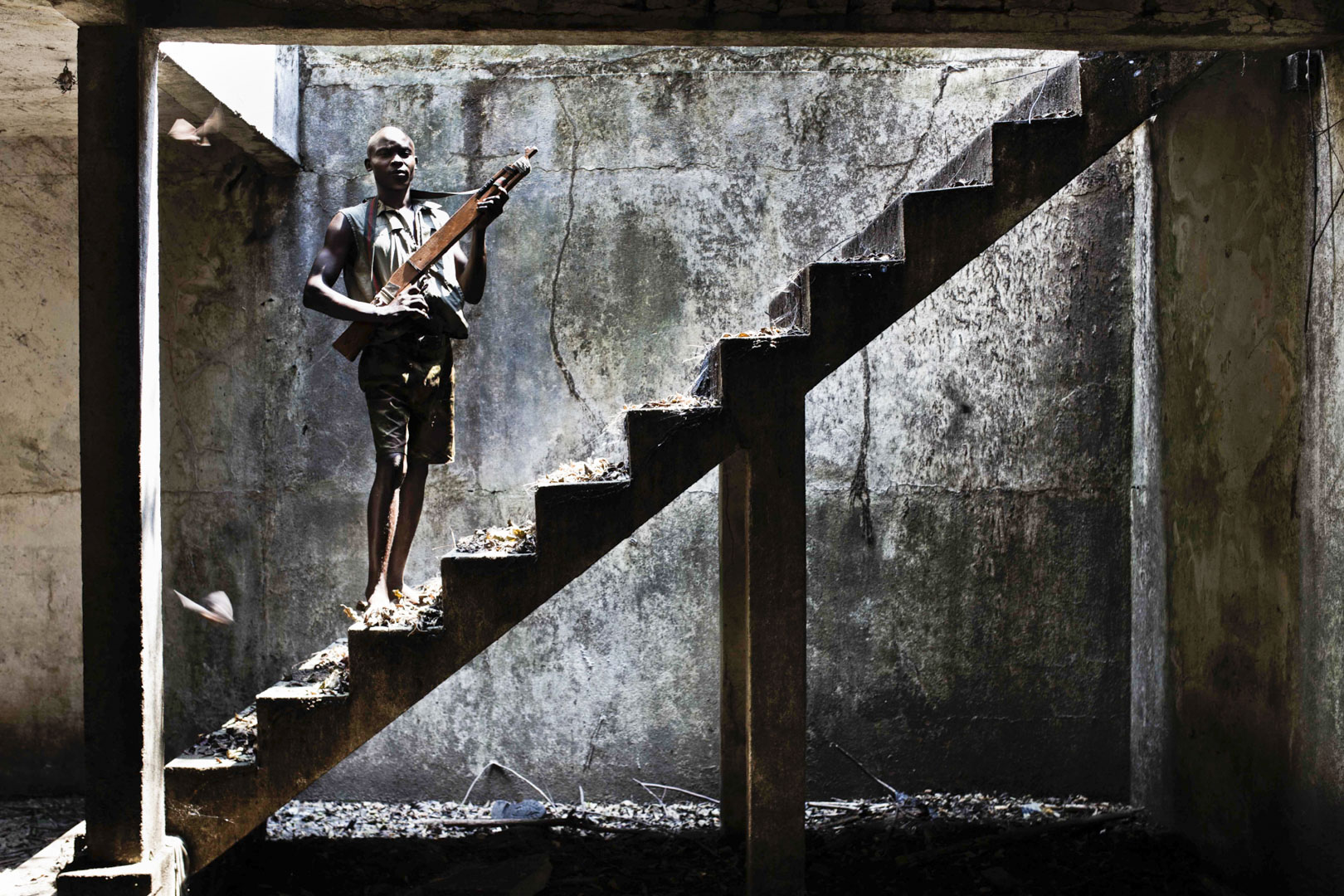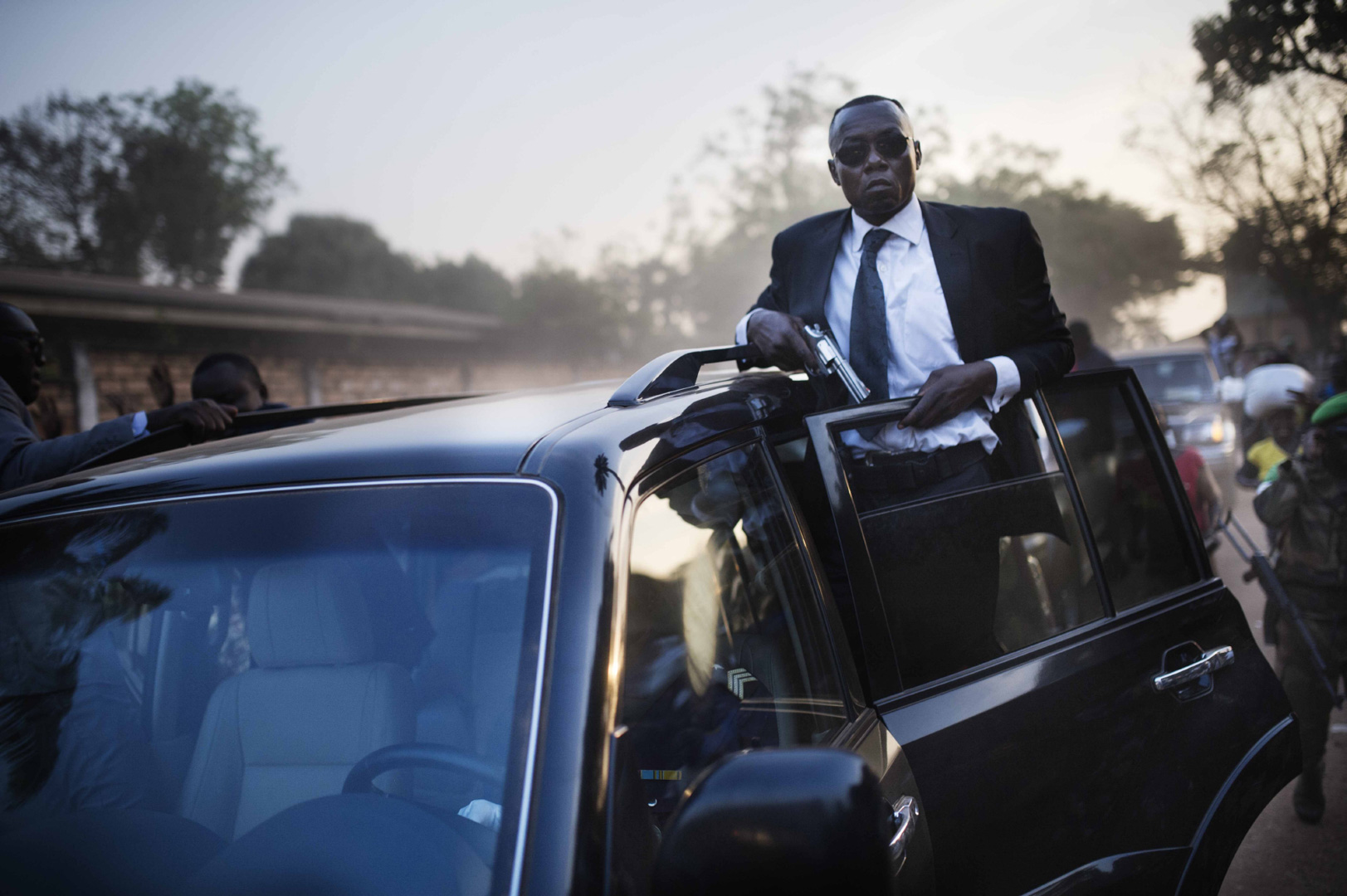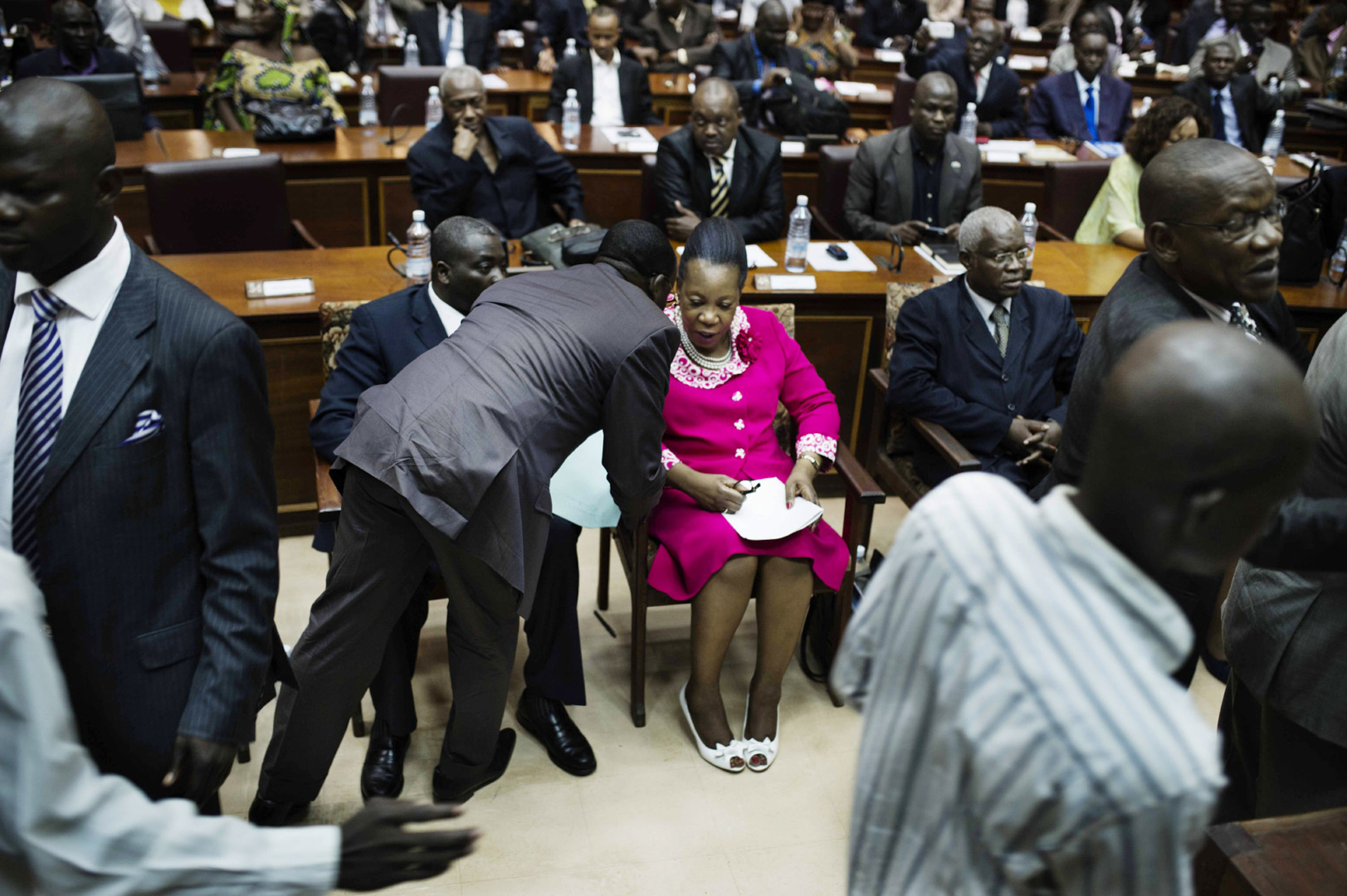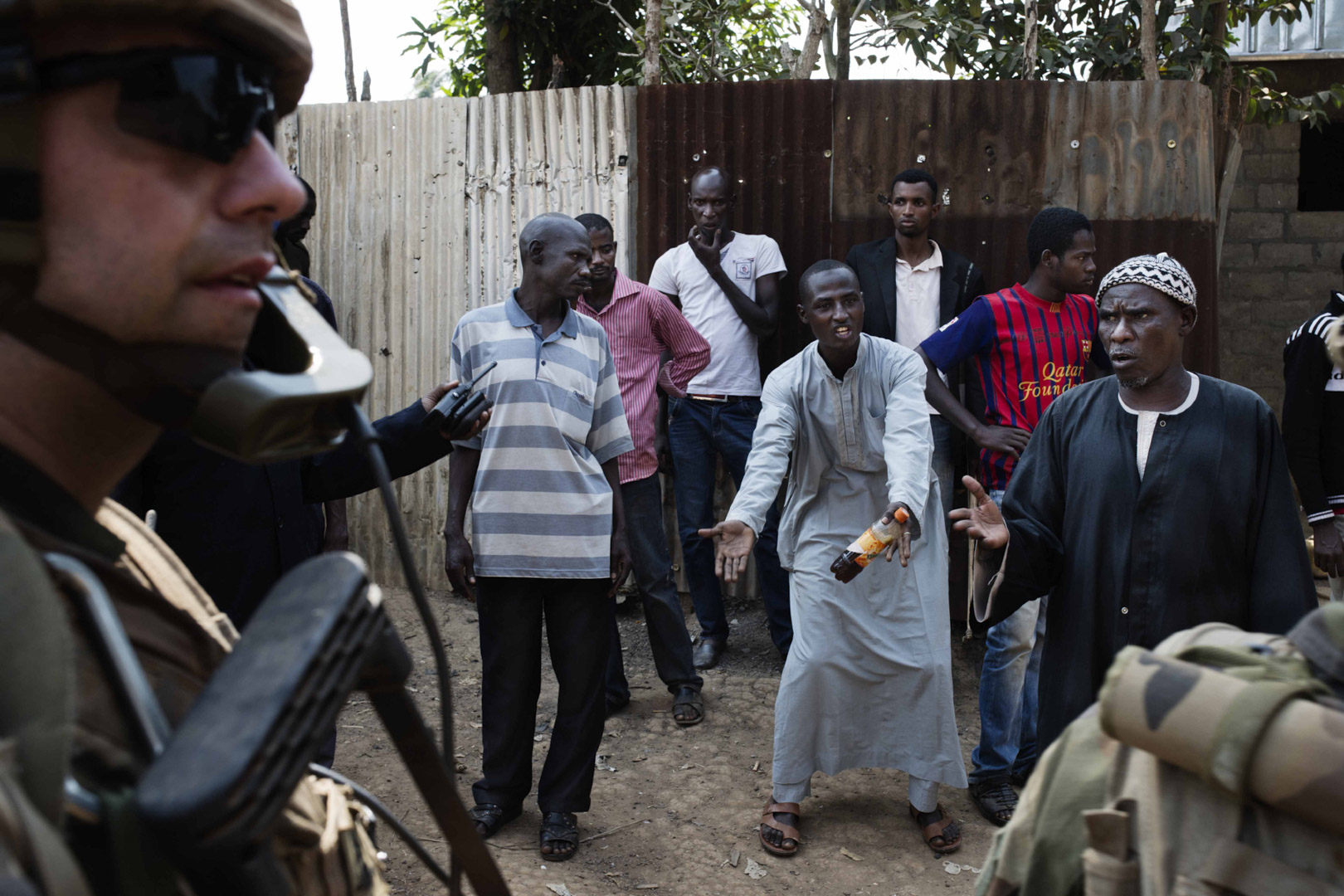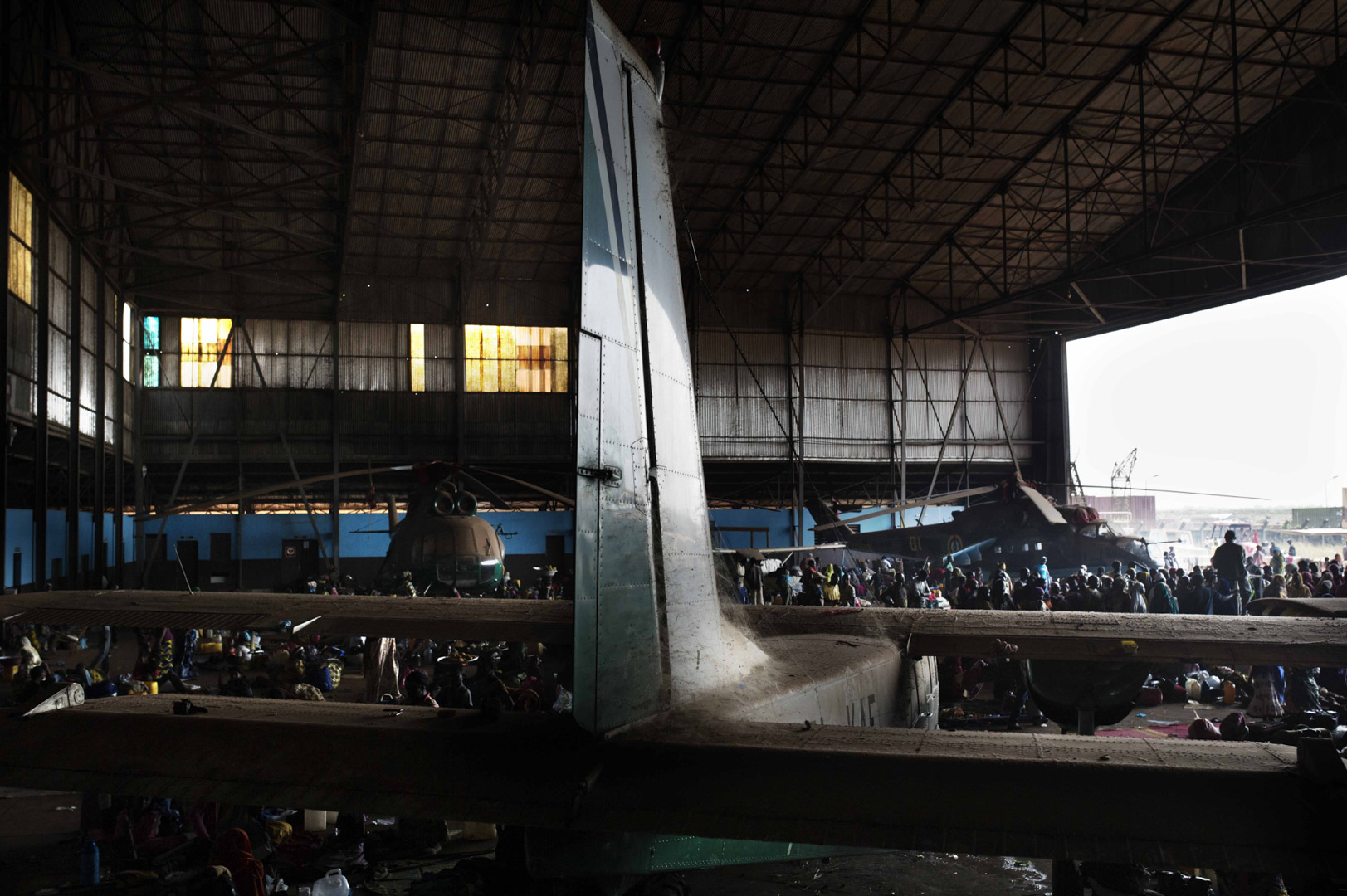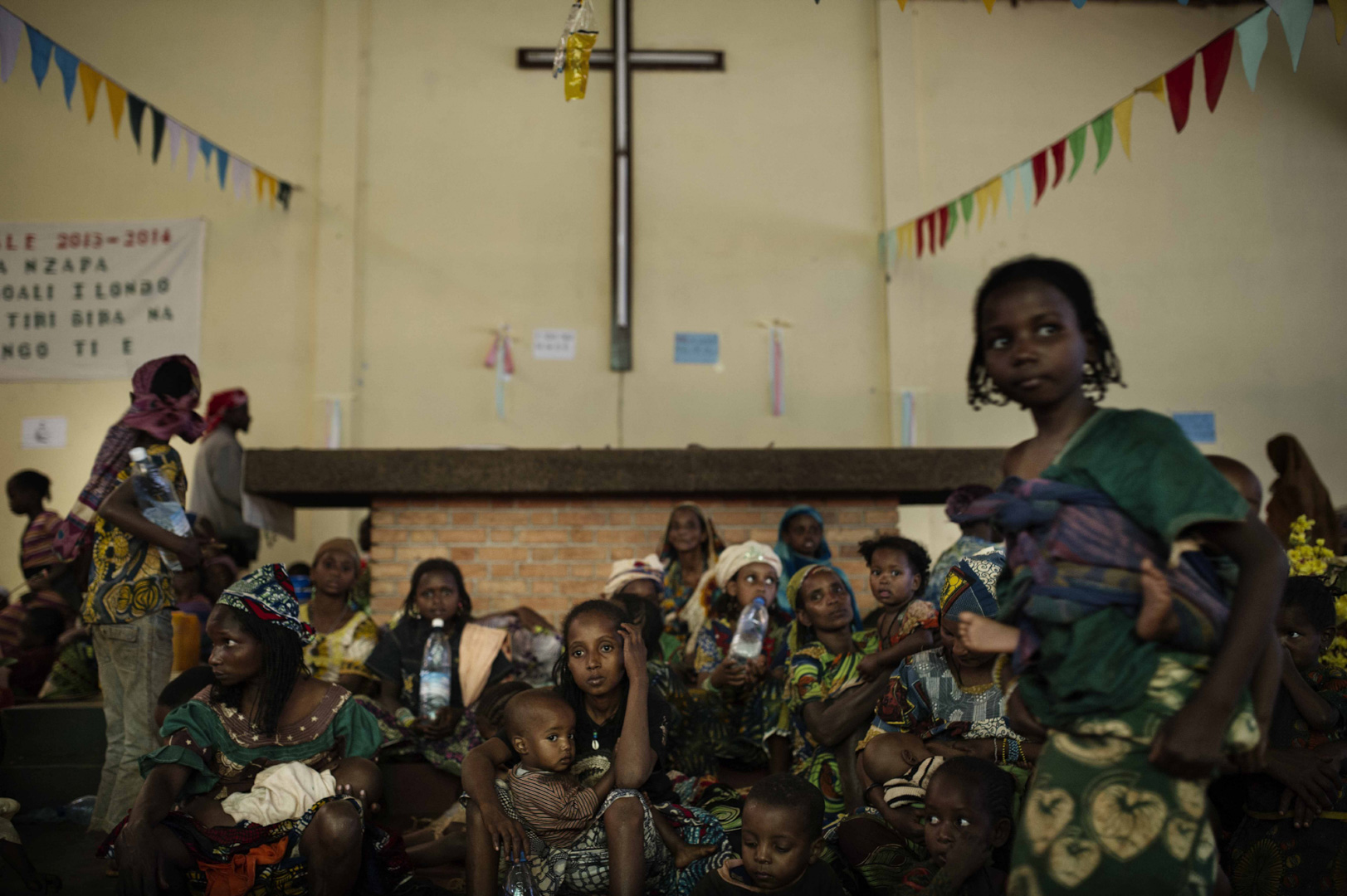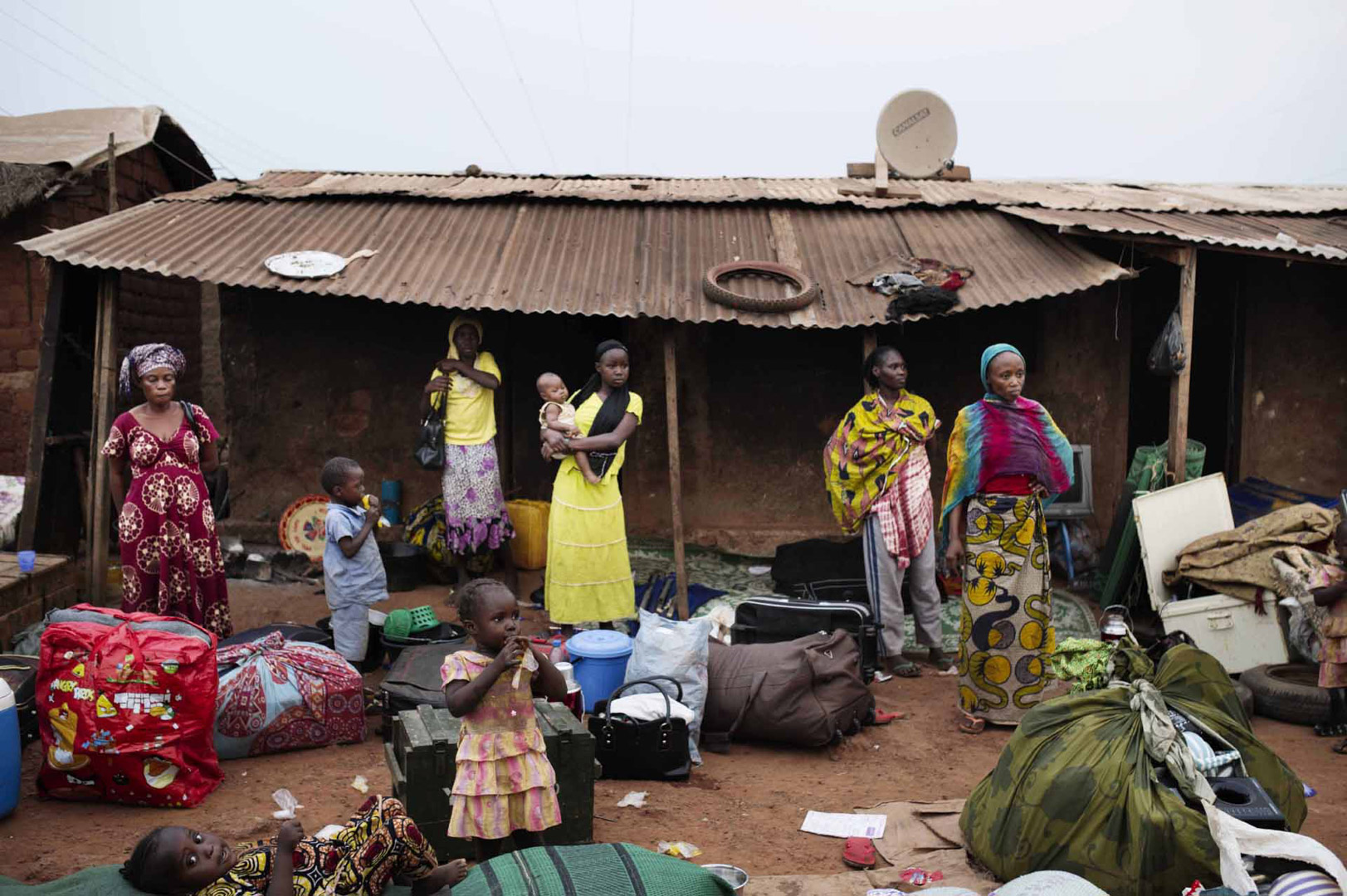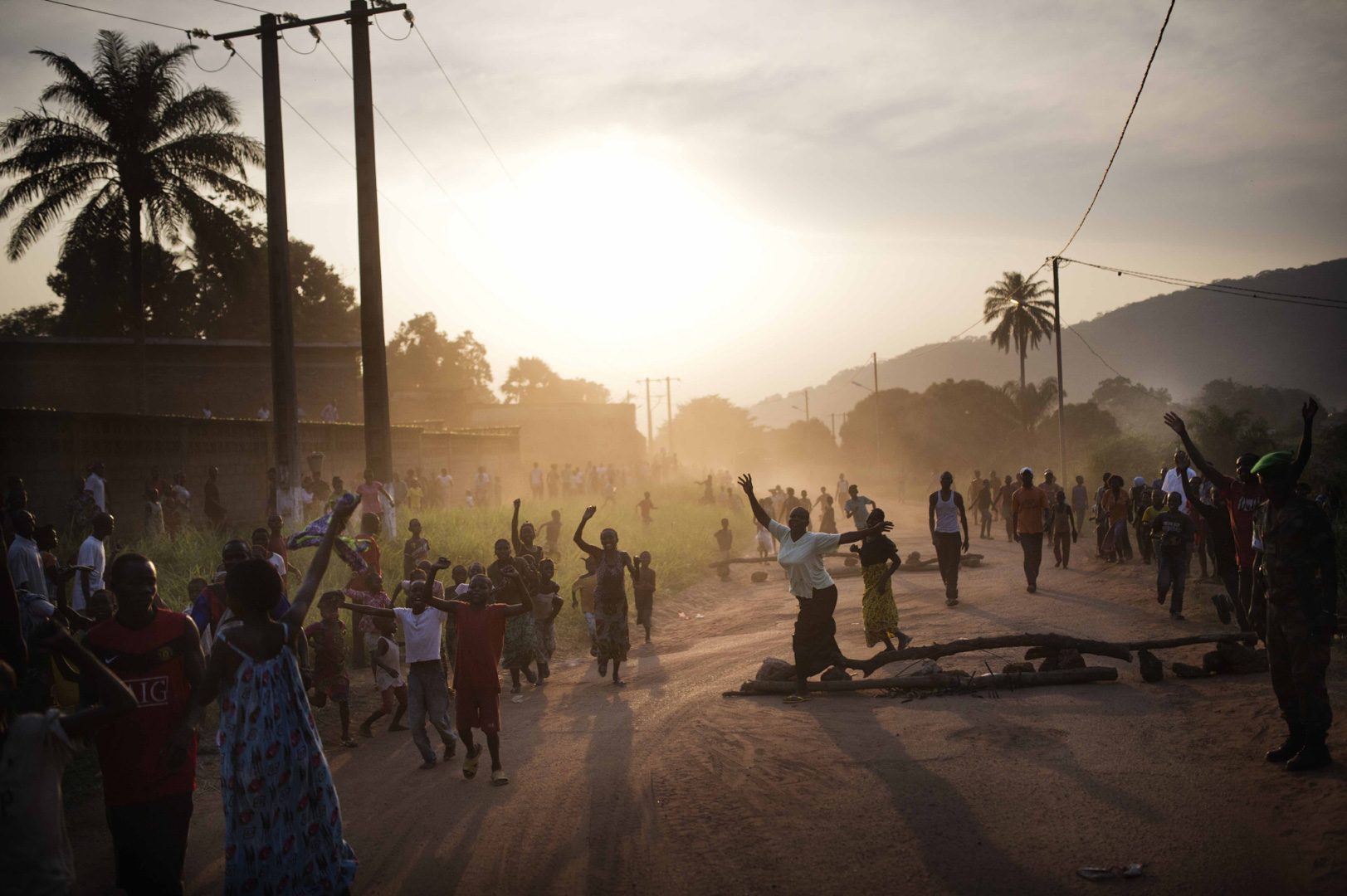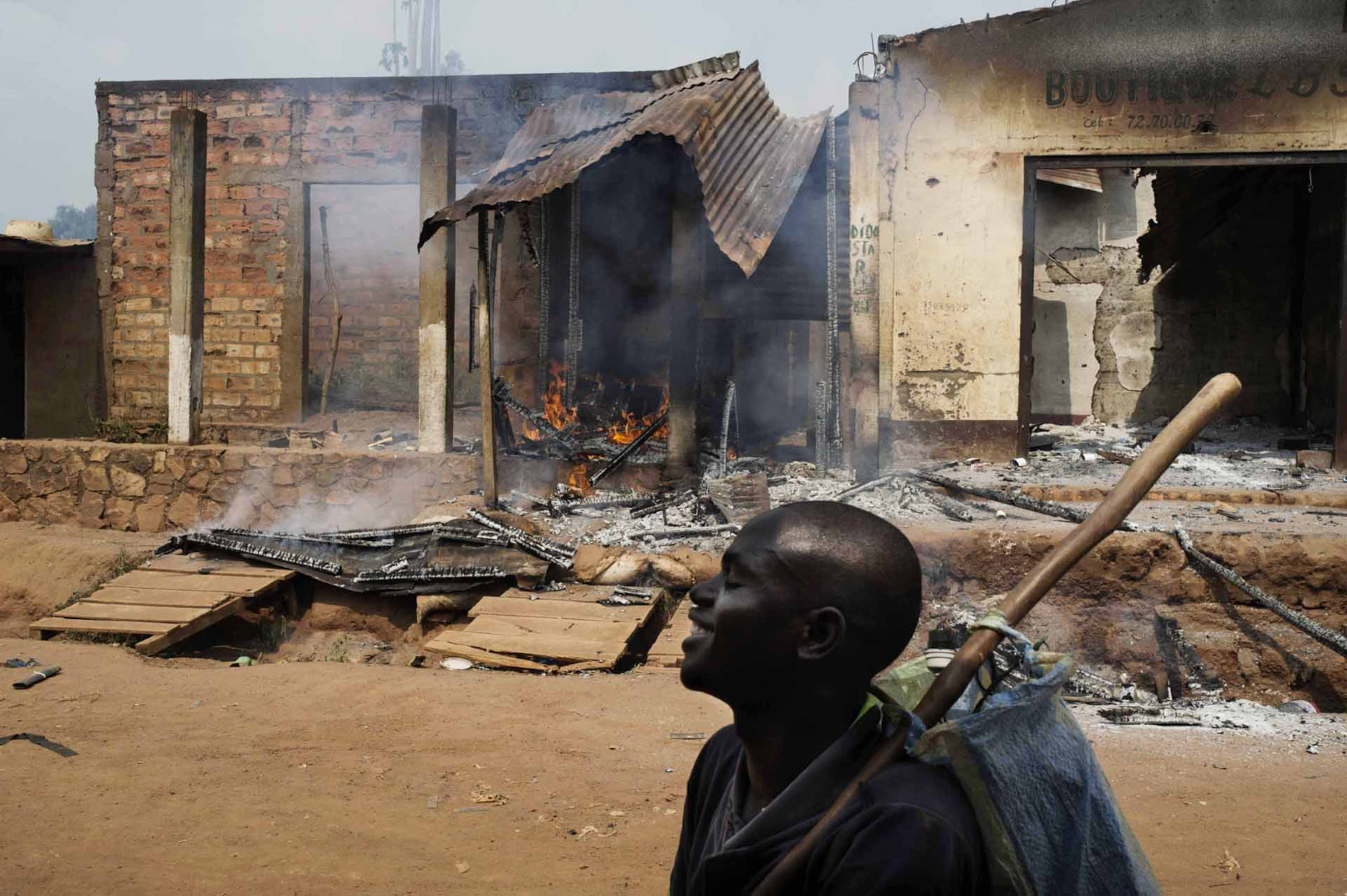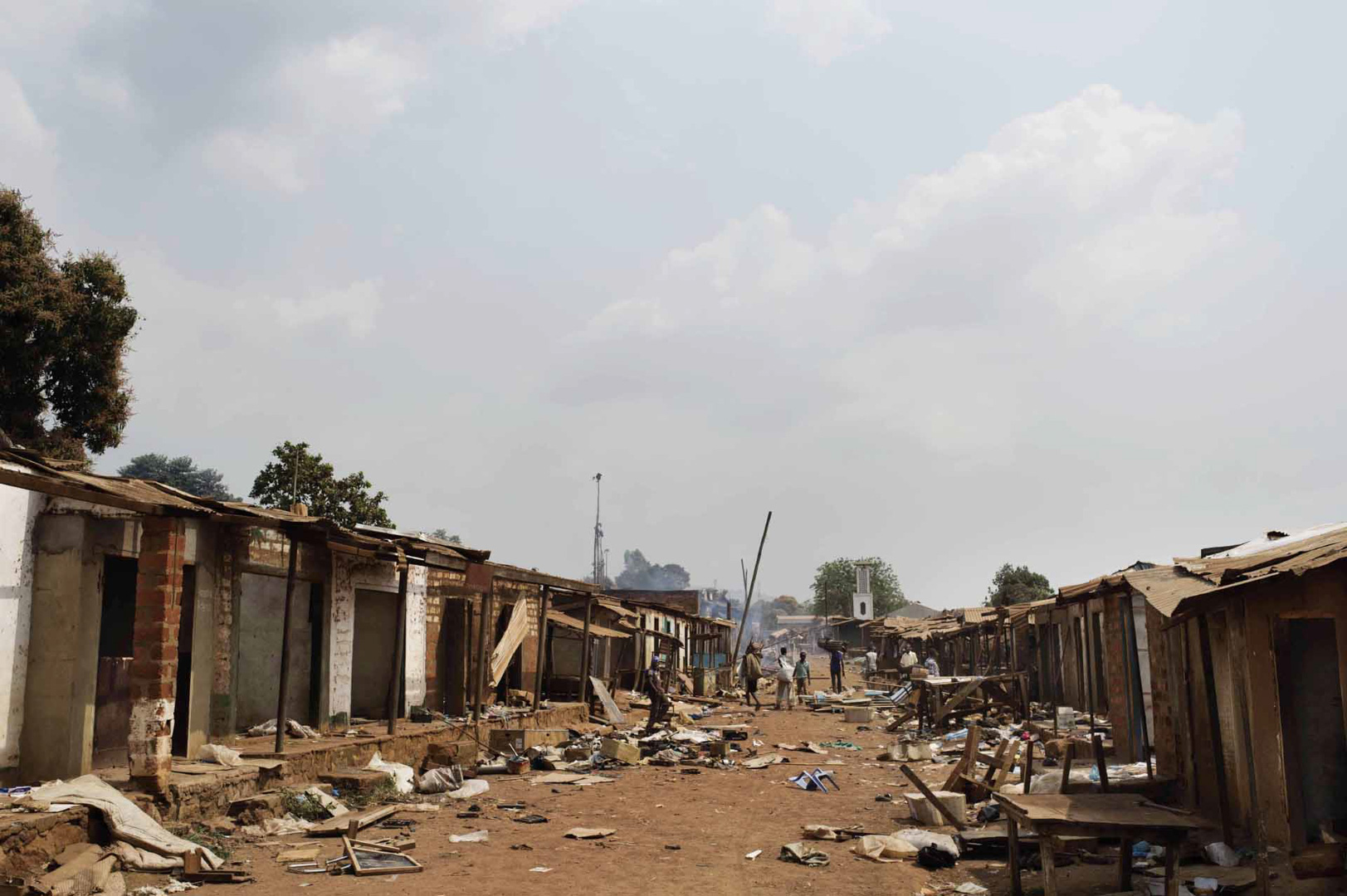March 2013
The political crisis in Central African Republic, which occurred further to the overthrow of François Bozizé’s regime by the Seleka rebels in March 2013, has turned into a civil war as tensions between Christians and Muslim communities have thrown the country into chaos.
Michael Zumstein travelled to the Bossangoa region, where almost 25 000 people have gathered in the catholic mission of the town, fleeing the fights between former Seleka soldiers – who joined the Central African Armed Forces (FACA) – and the self-defence groups of the region.
On the other hand, the Muslim community has gathered in the Liberty School in fear of possible exactions by the Anti-Balaka forces.
As the capital Bangui is having to deal with more and more lootings, the situation in Bossangoa region, 180 miles North, is particularly critical. Inhabitants are fleeing their villages because of the fights between the different armed groups, and build make-shift camps in the near-by bush.. The humanitarian situation should soon become worst, because of the desertion of the fields and crops.
December 2013
On the 5th of December 2013, Christian anti-Balaka militiamen came to Bangui to take control over the capital and overthrow transitional President Michel Djotodia, who had come to power in March 2013, after the Seleka’s military coup. This attack, and the harsh repression of the Seleka soldiers, predominantly Muslim, against civilians, plunged the country into fear, starting a vicious circle of inter-community violence.
During the month of December, the gap grew wider between those who claim to “have been living well together, before”.
Day after day, rumours exaggerate the exactions from both camps, urging both Christian and Muslim extremists to looting, revenge and reprisals. Then, public beatings started to occur. Every day. In front of French soldiers of the Sangaris Operation.
Every morning of December, terrorized Bangui inhabitants looked at the Red Cross employees removing the corps of those who had been killed during the night.
Today, almost one million of Central African have left their homes to take a refuge in schools, churches or on the tarmac of the Bangui airport, which is under the protection of the French Army. A very deep humanitarian crisis adds to a political and security one.
The International Community hesitates to get involved, afraid by a country where political life is governed by coups and politicians are not well known.
France, that intervened too late and with not enough soldiers, can’t rely on the African forces of the MISCA (International Support Mission to the Central African Republic) which is too disorganized. The former colonial country is now stuck in the middle of the Central African quagmire, in spite of itself.
Central African Republic is going through the most important crisis of its history. Everyday, hate, resentment and despair guide its inhabitants towards a dark future.
January 2014
Central African Republic is currently going through the most acute security and humanitarian crisis of its history since its independence in 1960. The country is facing a wave of murders, forced exodus and unprecedented lootings. War crimes are everywhere. And the ethnic cleansing against the Muslim community is radical.
Three months after the beginning of the French military operation “Sangaris”, wished and welcomed by a huge majority of Central Africans and with a strong legitimacy on the international scene, the picture is grim.
If, in the end, foreign troops – from Sangaris, the African Union, the European Union and soon the UN – succeed to restore security in the country, the operation couldn’t prevent the storm hitting the CAR already weakened by one year of crimes committed by the Seleka, the Muslim rebel movement which came from the North.
Foreign forces witnessed revenge killings on both sides, which will be described as “crimes against humanity” if, one day, the World Court takes up the issue.
Today, the country seems at peace only because there are no more enemies or targets, in places where the ethnic cleansing occurred. And the war is far from being over […].
Extract from a paper by Remy Ourdan for Le Monde
